UGA SCRIPT | ANNUAL REPORT 1
Dean
Kelly M. Smith
Associate Dean, Science Education, Research and Technology

Michael Bartlett
Assistant Dean for Student Affairs
Duc Do
Assistant Dean for Experience Programs
Lori Duke
Assistant Dean, Institutional Effectiveness & Strategic Initiatives, Director of Faculty Affairs, Contributing Editor
Mike Fulford
Assistant Dean for Extended Campuses
Rusty May
Pharmaceutical and Biomedical Sciences Department Head
Yaguang Xi
Clinical and Administrative Pharmacy Department Head
Henry N. Young
Director of Professional Education
Andrew Darley
Director of Finance and Administration
John Varghese
Senior Director of Development
Kate O’Reilly
Other administrative leaders listed at https://rx.uga.edu/about/administration/
Marketing and Communications
Annual Report Production
Editor
Mickey Yongue, Senior Director
Design and Production
Catherine Lazenby, Digital Media Specialist
Story Production
Bryan Gomez, Student Research Writer
Writer
Ellie Shafer, Student Assistant
Cover Design
Kaptiv8, Athens, Ga.
Photos
Jason Thrasher Photo
CoP Marketing & Communications Staff
About the Cover – Prescriptions for Success
This year’s success is attributable to the collaborative spirit that exists among all entities of the UGA College of Pharmacy. The icons reflect the contributing disciplines that comprise the College, while the tablets formulated in an arrow pattern symbolize the upward trajectory the College is experiencing. Find UGA Script online at https://rx.uga.edu/news-events/ publications/.
Submit story ideas to Mickey Yongue at mickeyy@uga.edu or 706-542-5303.
Submit Alumni Accolades to Kim Hamby at kihamby@uga.edu or 706-542-4536.
Change or update mailing address(es) by contacting Mickey Yongue at mickeyy@uga.edu or 706-542-5303.
POSTMASTER: Send address changes to: UGA College of Pharmacy, 250 S. Green Street, Athens, Ga. 30606.
The UGA College of Pharmacy is committed to creating a dynamic, diverse, and welcoming learning environment for all students, staff, and faculty, and UGA’s Non-Discrimination and Anti-Harassment Policies reflects this philosophy. The College respects all students, staff, and faculty regardless of race, color, sex, pregnancy status, sexual orientation, gender identity, ethnicity or national origin, religion, age, genetic information, disability, or veteran status.

From Farms to Pharmacies: Pharmacy Students Deliver Healthcare to Georgia’s Migrant Workers

Faculty Highlights
UGA Pharmacy Welcomes New Faculty to College

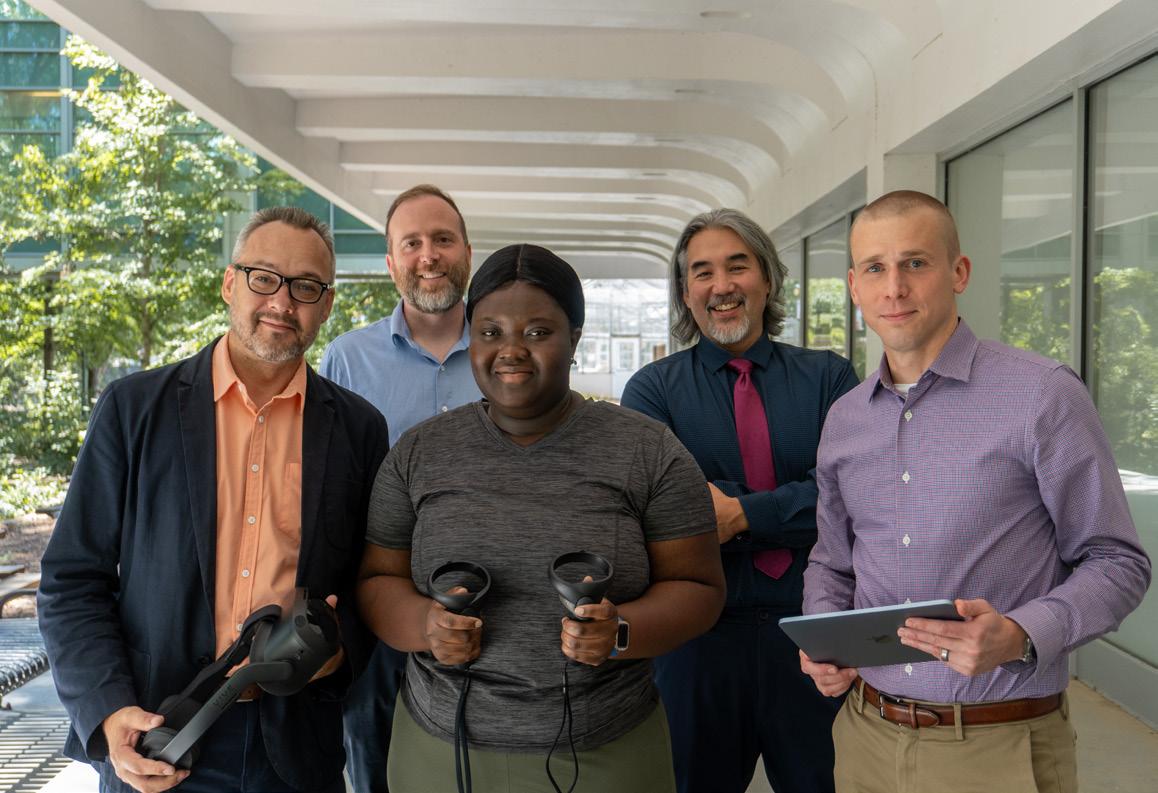
Pills to Policy: PharmDawgs Take on Washington, D.C. Leading with Purpose: DSAC’s Vision for Inclusive Excellence
Dr. Philip Almeter is ‘Relentless’ in Pursuit of Excellence
From Struggles to Success: Joe Ed Holt Gives Forward Alumni Accolades
Pease Gift Is Legacy of Hope for Future Pharmacists
UGA SCRIPT | ANNUAL REPORT 3 11 Teaching & Learning 21 Research 25 Community & Collaboration CONTENTS 28 People 37 Development & Alumni Relations 12 22 26 From Pixels to Prescriptions: COP’s Vision for Immersive Tech in the Classroom BSPS Celebrates ‘Strength,’ ‘Resilience,’ ‘Durability’ 147 White Coats, 8 Recitation Leaders, and 1 Ceremony Later, the Class of 2027 Begins Their Journey UGA College of Pharmacy, Fort Valley State University Partner to Support Future Pharmacists New Molecule Could Treat Shingles, Herpes Viruses
FEATURE STORY Traveling the Winding Road on an Upward Trajectory Prescriptions for Success 5
UGA Pharmacy Receives National Award for Interprofessional Education Collaboration
Fall 2023
Dear Colleagues, Alumni, and Friends:
With pride, I present the University of Georgia College of Pharmacy Fiscal Year 2023 Annual Report. Titled “Prescriptions for Success,” this publication reflects the overarching theme of upward trajectory that we are experiencing at our College.

First and foremost, we are pleased to share that the enrollment number for our Doctor of Pharmacy program is the highest in the history of our College (see pg. 15). While most schools of pharmacy are below capacity, we have exceeded our enrollment goal. Today, 147 first year PharmD students are thriving in their new academic environment.
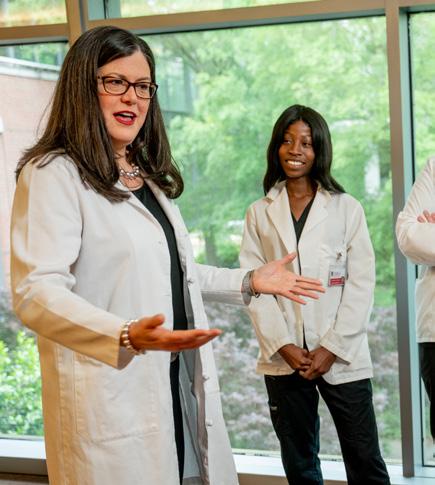
We have other achievements to tout. The College has five new faculty members, including Dr. Yaguang Xi (see pg. 30) who is the Head of the Pharmaceutical and Biomedical Sciences Department. Our Bachelor of Science in Pharmaceutical Sciences will celebrate its 10th anniversary this year. Research expenditures have increased by a remarkable 26% (see pg. 23), and our alumni, donors, and friends exemplified their support this year by increasing scholarship donations by 43% since 2022 (see pg. 46).
These are just a few of our accomplishments; you will read about more in the following pages. However, what is the “prescription” for this success? Who have penned these “scripts” that have allowed us to spiral in an “upward trajectory?”
The answer is obvious. It is our people. Whether students, faculty, staff, preceptors, alumni, donors, or friends, the College of Pharmacy family is committed to successful outcomes. As the Dean, I humbly commend our people for this spirit of collegiality and collaboration.
Success at our College helps to assure success in the disciplines of pharmacy and pharmaceutical sciences. I commit to you – the University of Georgia College of Pharmacy will continue in this upward trajectory to assure that these fields of study have a bright and promising future.
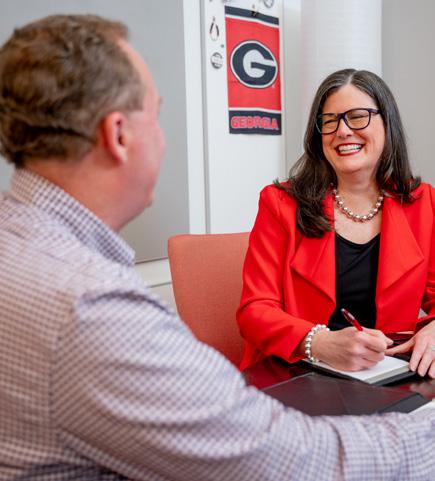
Happy reading – and best wishes for success,
 Kelly M. Smith, PharmD, FASHP, FCCP, ‘92, ‘93 Dean UGA College of Pharmacy
Kelly M. Smith, PharmD, FASHP, FCCP, ‘92, ‘93 Dean UGA College of Pharmacy
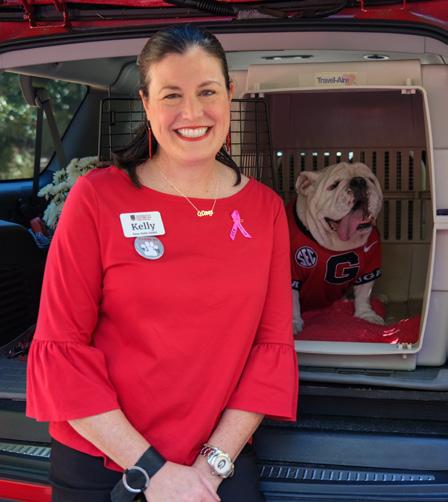






UGA SCRIPT | ANNUAL REPORT 4
A LETTER FROM THE DEAN
Traveling the Winding Road on an Upward Trajectory Prescriptions for Success
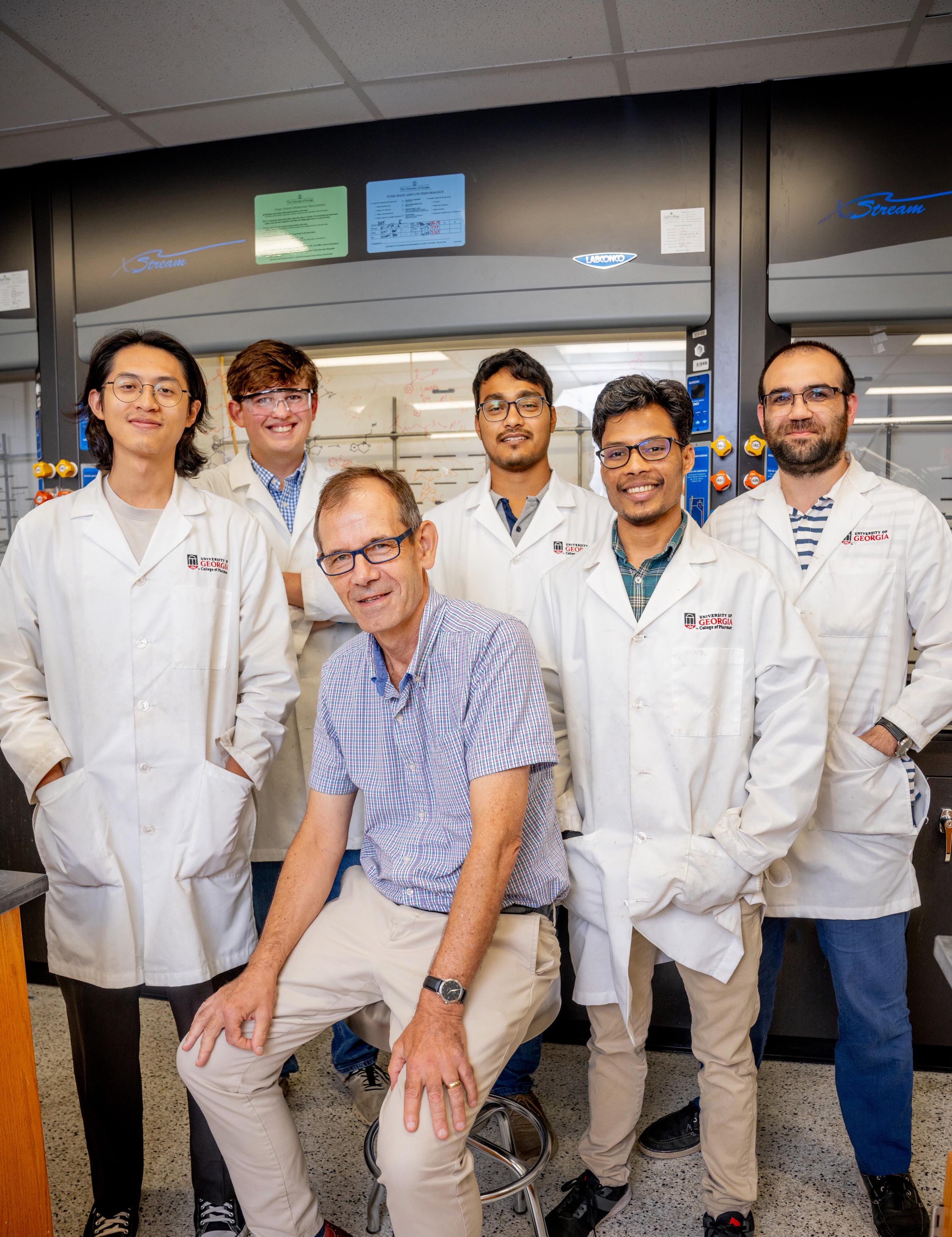 Left to right: Wei-Chih Lo, Michael Spieker, Dr. David Crich, Dr. Santanu Jana, Dr. Niteshlal Kasdekar, and Dr. Shuay Abdullayev.
Left to right: Wei-Chih Lo, Michael Spieker, Dr. David Crich, Dr. Santanu Jana, Dr. Niteshlal Kasdekar, and Dr. Shuay Abdullayev.
Traveling the Winding Road on an Upward Trajectory
With more than 110 faculty and staff members, over 1,000 students, and nearly 8,000 living alumni, the ever-growing size of the largest College of Pharmacy in the state of Georgia guarantees that every day—no matter how seemingly bland or routine—brings new accomplishments and successes. For Dr. David Crich, who is jointly appointed in the College of Pharmacy and Franklin College of Arts & Sciences’ Department of Chemistry, August 25, 2023, was evidence of this truth: the Georgia Research Alliance and David Chu Eminent Scholar in Drug Design was awarded a $2,000,000 National Institute of Health (NIH) R01 grant, his 4th since arriving at UGA. These funds will continue his research developing more effective and safer next-generation aminoglycoside antibiotics (AGAs) to treat multi-drug resistant diseases and one of the five total NIH grants supporting he and his team’s research. Dr. Crich is tied with a handful of researchers for having the most active grants at the University of Georgia.
Dr. Crich’s success is just one of many examples of what Dean Kelly Smith, ’92, ’93 calls “prescriptions for success.” “Our outstanding staff and faculty members assure that the work done across our five campuses is impactful and meaningful,” said Dean Smith. “Indeed, it is ultimately our students—who learn, care, and conduct research guided by these impressive individuals—along with patients—who experience improved health, well-being, and a better way of life because of their teaching—that will benefit from these ‘prescriptions’.”
One Prescription for Success – Strategic Plan is a roadmap – and much more
As the College continues to experience unprecedented growth, we follow our prescription for success in the classrooms, the labs, and beyond. How do we define success at the College of Pharmacy? Is it enrollment numbers? Research expenditures? NAPLEX and residency match statistics? Faculty and staff recruitment and retention?
The obvious answer is “all of the above.” However, while achieving goals is important, what we learn from our path to achievement can also define our success. “Our statistics and numbers have been on an upward trajectory for a while,” said the Dean, “but, it hasn’t always been an easy trek. The road upward has been, at times, winding and rocky, with a few bumps along the way.”
According to Smith, what has the 120+ yearold college on an upward trajectory is staying the course set by the College’s Strategic Plan 2025. “Our Prescription for the Future,” has five strategic
directions that connect the College and define our vision for success:
• Teaching & Learning: Preparing students for futures in pharmacy and science
• Innovative Research
• Collaboration: Strengthening partnerships in Georgia and around the world
• Investing in People: Maximizing the innovations and excellence of the PharmDawg Nation
• Diversity, Equity, and Inclusion: Enhancing institutional effectiveness through Inclusive Excellence
These strategic directions guide us daily as we work to meet the diverse and complex challenges in health care, education, science, and society. We are in the midst of remarkable growth and development at our College. As we travel along this trajectory, our Strategic Plan 2025 has evolved to become more than just a road map or a document—it is the lens through which we view our successes and our future.
Dr. Mike Fulford, Assistant Dean for Institutional Effectiveness and Strategic Initiatives, who leads the strategic plan, offered the following summary, “Our Prescription for the Future challenges us to have bold aspirations while also highlighting and recognizing the diversity and impact of our unique programs, our innovative research, our service and outreach, and our stellar people who serve and represent our College.”
Teaching & Learning – Preparing students for futures in pharmacy and science
According to Dr. Duc Do, Assistant Dean for Student Affairs, the College of Pharmacy is experiencing something unparalleled—an increase in enrollment in the Doctor of Pharmacy Program.
“Collectively, colleges of pharmacy across the country have been facing downward trends in enrollment for years,” said Dr. Do. “However, our
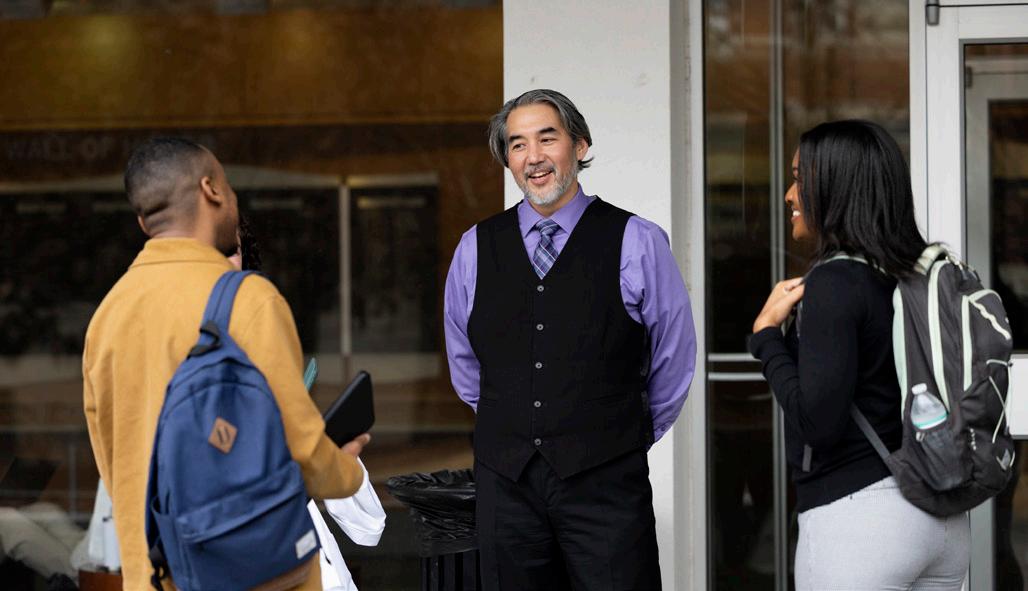
UGA SCRIPT | ANNUAL REPORT 6
Michael Fulford, Assistant Dean, overseess the College’s Strategic Planning efforts.
PharmD Class of 2027 is beyond capacity at approximately 103%, the largest enrollment in the history of the College. The primary attributing factor to this success is the holistic vision outlined in the Strategic Plan that connects the College’s various programs and entities in recruiting, not just PharmD students, but undergraduate and graduate students as well.”
Other exemplary statistics and achievements for the College include this year’s North American Pharmacist Licensure Examination® (NAPLEX) pass rate of 84%, 5% above the national average; a 91% residency match rate for the PharmD Class of 2023, again, surpassing the national average of 82%; 29 unique and varying degree and certificate programs that continue to thrive; a 10-year milestone of teaching and learning for the Bachelor of Science in Pharmaceutical Sciences; and the continued prospering of robust graduate degrees and certificate programs, just to name a few.
Innovative Research – Growing Research, Innovation, and Entrepreneurship

“With the caliber of individuals at our college, along with the technology housed within our facilities, we have the ability to discover, develop, and enhance treatment for a myriad of disease states, illnesses, and injuries that will change lives for the better,” said Dr. Michael Bartlett, Associate Dean for Science Education, Research and Technology and University Professor at the College.
Research expenditures are growing at UGA Pharmacy, and new faculty colleagues are bringing their own set of research packages to enhance an already robust research acumen. A stellar example is Dr. Yaguang Xi, UGA Athletic Association Distinguished Professor in Pharmacy and Pharmaceutical Sciences who became the new department head for Pharmaceutical and Biomedical Sciences on August 1. According to Dr. Bartlett,
UGA SCRIPT | ANNUAL REPORT 7
NAPLEX 2022
The National Association of Boards of Pharmacy made significant changes to the NAPLEX in 2022. These changes resulted in a significant drop in NAPLEX pass rates across the country. Despite these changes, UGA's Class of 2022 performed well in comparison to its peers across the country.
84% 79%
NAPLEX pass rate for the UGA PharmD Class of 2022
National Pass Rate
#4 Highest pass rate among SEC peers
#2 Highest pass rate among SEC peers with >100 graduates
FINANCIALS $ (in millions) FY23 FY22 FY21 Expenses $ (in millions) FY23 FY22 FY21 Revenue $ (in millions) FY23 FY22 FY21 Instruction Research Academic Support Operations Student Services Public Service Administration Expenses $ (in millions) FY23 FY22 FY21 State Allocations/Tuition Return Research Income (based on spending) Endowment Income/Foundation Gifts Startup/Indirect Cost Returns Other Business Income Revenue
#1 Among State of Georgia PharmD programs
“Dr. Xi’s research accomplishments, extensive teaching and mentoring experiences, and leadership in building research collaborations made him immensely qualified for this role.” Dr. Xi was a practicing physician prior to earning his PhD in cell biology. His areas of expertise are in cancer therapeutics, cancer chemoprevention, tumor metastasis, cancer drug discovery and development, health disparities, and immunotherapy. Dr. Xi’s research programs have been continuously funded by the National Institutes of Health/National Cancer Institute, the Veterans Health Administration, and the American Cancer Society, among others. His active grants represent more than $12 million in R01 funding from the NIH. An additional $7 million in grants are currently under review, with anticipated approval and launch this month. Along with his professional affiliations, Dr. Xi has served extensively in leadership roles and study sections for the National Institutes for Health, along with numerous other professional organizations and affiliations.
Along with new faculty members and researchers, there are many research successes at the College of Pharmacy. Among them are Dr. Crich’s recent NIH Award to treat multi-drug resistant diseases, and Drs. David Chu and Uma Singh’s discovery of a molecule to serve as a potential treatment for the varicella zoster virus, the type of herpes that causes both chickenpox and shingles.
Collaboration – Strengthening partnerships in Georgia and around the world
Examples of collaboration are sprinkled throughout this issue of UGA Script. As an example, the College’s Division of Experience Programs provides oversight and support for a variety of training in various settings, including community practice, health system practice, ambulatory care, immunization delivery, indigent care, disaster preparedness, and advocacy, which provides more than 30% of the training for patient care skills and knowledge. In fact, the College continues to keep UGA at the forefront of public health and preventive healthcare across the state through patient care partnerships with health systems and faculty-supervised, experiential learning. This past year, PharmD students delivered 4,586 immunizations. Other collaborative efforts include the Converge and Medical Device Regulation Conferences being held this fall; the Chu Lectureship, which is a part of the Fall 2023 UGA Signature Series; the Interprofessional Education national recognition this past spring, along with all the collaborative nature of efforts to increase endowments, including more than $430,000 in scholarship support. It is apparent that “collaboration” is the mantra of the College of Pharmacy.
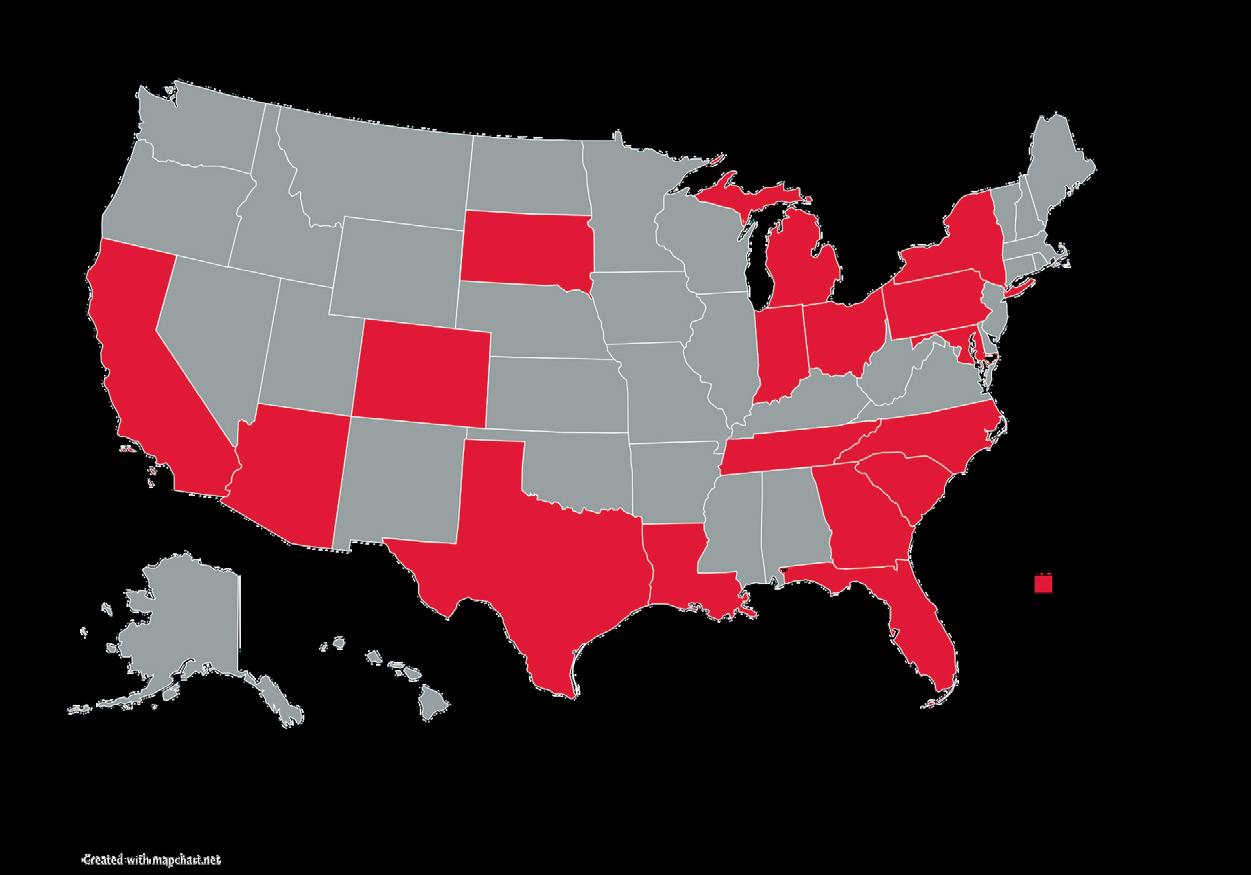
Investing in People – Maximizing the innovations and excellence of the PharmDawg Nation
While “Our Prescription for the Future” emphasizes programs and processes, our people are the very heart and soul of the College. Whether students, faculty, staff, preceptors, alumni, donors, or friends, people are the pivotal force for UGA Pharmacy.
For example, consider Chris Duran, Client Services Manager in our Information and Instructional Technology (IIT) unit and recent winner of the College’s Employee of the Year Award. Associate Dean, Michael Bartlett, shared
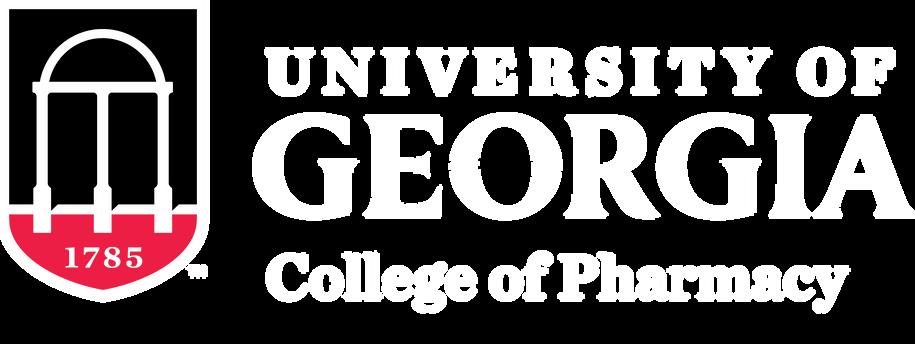
UGA SCRIPT | ANNUAL REPORT 8
S e e k i n g / d e l a y e d p u r s u i t o f e m p l o y m e n t 21% Residency 45% CAREER PLACEMENT Not Reported 1% Not Seeking 1% Pharmacist-Related Job 29% Fellowship 3% 60 PGY-1 Matches 20 PGY-2 Matches 91% Class of 2023 Match Rate RESIDENCY MATCH 2023 PharmD graduates At the time of graduation
the following, “Chris has been involved in almost every aspect of our instruction technology including classroom design, training students and faculty, and general support, maintenance, and installation of all of the hardware and software that are critical to our ability to teach. It is safe to say that without Chris’s tireless help; our students would not be as well trained as they are today.” It is the behindthe-scenes efforts of staff like Chris that allow us to innovate and excel.
In the classroom, we see the work of faculty members like Dr. Anthony Hawkins who was recently awarded the Instructional Innovation and Scholarship of Teaching and Learning Award in the College. As a faculty member on our Albany campus, Dr. Hawkins has risen to the challenge of innovating in the classroom across our multiple campus locations. Dr. Andrew Darley, Director of Professional Education shared the following, “Dr. Hawkins’ educational theory to practice philosophy serves as a model of excellence for other faculty members. His instructional contributions are significant, with his impact being seen across the PharmD and Residency programs at UGA and the medical students at Augusta University. Faculty members like Dr. Hawkins epitomize the use of continuous quality improvement in teaching.
Diversity, Equity, & Inclusion – Enhancing institutional effectiveness through Inclusive Excellence
According to Dr. Vivia Hill-Silcott, Director of Diversity Programs and Academic Support, “Our culture of inclusivity, acceptance, and respect is what allows us to move in an onward and upward trajectory in pursuit of excellence. DEI is intermixed in every strategic direction of our plan.” Inclusive excellence starts with leadership. The College’s organizational structure is intended to engage academic leaders at every level of the organization.
Dr. Trisha Branan, Clinical Associate Professor and Assistant Department Head in the Clinical and Administrative Pharmacy (CAP) department provides a model for inclusive excellence. Dr. Branan leads students in the classroom, on rotations, and as an advisor for the Asian Pharmacy Student Organization (APSO). She leads her fellow faculty members in the CAP department through a lens of inclusion, and her service and scholarship have centered around building successful and diverse teams. She currently chairs the inclusion task force for the Women’s Faculty SIG in the American Association of Colleges of Pharmacy and is a co-founder of the UGA Critical Care Collaborative (UGA C3) which has produced a number of publications and scholarship that forwards critical care training and working in successful teams.
Examples of programs that solidify this underlying foundation include the seven articulation agreements with various University System of Georgia’s colleges and universities that provide a more streamlined approach for students who are from underserved communities. In addition, the number of student organizations in the College that represent varying cultures and demographics is unprecedented. The Farm Worker Family Health Program (FWFHP) has made a profound impact in rural southwest Georgia and allowed UGA College of Pharmacy students to work in interdisciplinary healthcare teams to provide essential healthcare services to migrant farmworkers.
To grasp the College of Pharmacy’s dedication to diversity, equity, and inclusion, read the entire contents of UGA Script. Said Dean Smith, “DEI is a focus in all that we do.”
She concluded, “Our vision is simple, focused, and straightforward – ‘…to be a global leader and catalyst for innovation in pharmacy practice, education, and scientific inquiry that improves health outcomes.’ We will always strive to meet the diverse and complex challenges we see today in health care, education, science, and society. This is our destiny; this is what we are called to do.”
DIVERSE ENROLLMENT
UGA SCRIPT | ANNUAL REPORT 9
UNDERGRADUATE PROGRAM American Indian or Alaskan Native 1% Asian 24% Black or African American 6% White 69% Multiple 3 3% American Indian 0 7% Asian 22 7% Black or African American 8 7% Hispanic 6 7% White 57 9% PROFESSIONAL PROGRAM GRADUATE PROGRAMS Not Reported 4% Asian 12% White 49% Black or African American 4% Hispanic 2% International 27% American Indian 2%
New Students, Fall 2023 (projected) 49 students 147 students (projected) 87 students
DEGREE AND CERTIFICATE PATHWAYS IN PHARMACEUTICAL AND BIOMEDICAL SCIENCES 11
DEGREE AND CERTIFICATE PATHWAYS IN PROFESSIONAL PHARMACY PROGRAMS 8
DEGREE AND CERTIFICATE PATHWAYS IN CLINICAL AND ADMINISTRATIVE PHARMACY 4
6
DEGREE AND CERTIFICATE PATHWAYS IN REGULATORY SCIENCES
CHEMICAL, MANUFACTURING AND CONTROLS CERTIFICATE, CLINICAL TRIALS DESIGN AND MANAGEMENT CERTIFICATE, REGULATORY SCIENCES CERTIFICATE, DRUG SAFETY AND PHARMACOVIGILANCE CERTIFICATE, MS IN REGULATORY SCIENCE, PHARMD / MS IN REGULATORY SCIENCE, PHARMD, PHARMD / BS IN PHARMACEUTICAL SCIENCES, PHARMD / MBA, PHARMD / MPH, PHARMD / MS IN REGULATORY SCIENCES, PGY-1 RESIDENCY PROGRAMS, PGY-2 RESIDENCY PROGRAMS, MS IN CLINICAL AND EXPERIMENTAL THERAPEUTICS, MS IN PHARMACEUTICAL HEALTH SERVICES, OUTCOMES AND POLICY, PHD IN CLINICAL AND EXPERIMENTAL THERAPEUTICS, PHD IN PHARMACEUTICAL HEALTH SERVICES, OUTCOMES, AND POLICY, MINOR IN PHARMACEUTICAL SCIENCES, BS IN PHARMACEUTICAL SCIENCES, MS IN PHARMACEUTICAL SCIENCES, PHD IN PHARMACEUTICAL AND BIOMEDICAL SCIENCES, BS AND PHARMD IN PHARMACEUTICAL SCIENCES, BS AND MS IN PHARMACEUTICAL SCIENCES, BS IN PHARMACEUTICAL SCIENCES AND MS IN REGULATORY SCIENCES, MS IN PHARMACEUTICAL SCIENCES AND REGULATORY SCIENCES CERTIFICATE, BS IN BIOCHEMICAL ENGINEERING AND MS IN PHARMACEUTICAL SCIENCES, BS IN BIOLOGICAL ENGINEERING AND MS IN PHARMACEUTICAL SCIENCES, PHD IN PHARMACEUTICAL AND BIOMEDICAL SCIENCES AND REGULATORY SCIENCES CERTIFICATE, CHEMICAL, MANUFACTURING AND CONTROLS CERTIFICATE, CLINICAL TRIALS DESIGN AND MANAGEMENT CERTIFICATE, REGULATORY SCIENCES CERTIFICATE, DRUG SAFETY AND PHARMACOVIGILANCE CERTIFICATE, MS IN REGULATORY SCIENCE, PHARMD / MS IN REGULATORY SCIENCE, PHARMD, PHARMD / BS IN PHARMACEUTICAL SCIENCES, PHARMD / MBA, PHARMD / MPH, PHARMD / MS IN REGULATORY SCIENCES, PGY-1 RESIDENCY PROGRAMS, PGY-2 RESIDENCY PROGRAMS, MS IN CLINICAL AND EXPERIMENTAL THERAPEUTICS, MS IN PHARMACEUTICAL HEALTH SERVICES, OUTCOMES AND POLICY, PHD IN CLINICAL AND EXPERIMENTAL THERAPEUTICS, PHD IN PHARMACEUTICAL HEALTH SERVICES, OUTCOMES, AND POLICY, MINOR IN PHARMACEUTICAL SCIENCES, BS IN PHARMACEUTICAL SCIENCES, MS IN PHARMACEUTICAL SCIENCES, PHD IN PHARMACEUTICAL AND BIOMEDICAL SCIENCES, BS AND PHARMD IN PHARMACEUTICAL SCIENCES, BS AND MS IN PHARMACEUTICAL SCIENCES, BS IN PHARMACEUTICAL SCIENCES AND MS IN REGULATORY SCIENCES, MS IN PHARMACEUTICAL SCIENCES AND REGULATORY SCIENCES CERTIFICATE, BS IN BIOCHEMICAL ENGINEERING AND MS IN PHARMACEUTICAL SCIENCES, BS IN BIOLOGICAL ENGINEERING AND MS IN PHARMACEUTICAL SCIENCES, PHD IN PHARMACEUTICAL AND BIOMEDICAL SCIENCES AND REGULATORY SCIENCES CERTIFICATE, CHEMICAL, MANUFACTURING AND CONTROLS CERTIFICATE, CLINICAL TRIALS DESIGN AND MANAGEMENT CERTIFICATE, REGULATORY SCIENCES CERTIFICATE, DRUG SAFETY AND PHARMACOVIGILANCE CERTIFICATE, MS IN REGULATORY SCIENCE, PHARMD / MS IN REGULATORY SCIENCE, PHARMD, PHARMD / BS IN PHARMACEUTICAL SCIENCES, PHARMD / MBA, PHARMD / MPH, PHARMD / MS IN REGULATORY SCIENCES, PGY-1 RESIDENCY PROGRAMS, PGY-2 RESIDENCY PROGRAMS, MS IN CLINICAL AND EXPERIMENTAL THERAPEUTICS, MS IN PHARMACEUTICAL HEALTH SERVICES, OUTCOMES AND POLICY, PHD IN CLINICAL AND EXPERIMENTAL THERAPEUTICS, PHD IN PHARMACEUTICAL HEALTH SERVICES, OUTCOMES, AND POLICY, MINOR IN PHARMACEUTICAL SCIENCES, BS IN PHARMACEUTICAL SCIENCES, MS IN PHARMACEUTICAL SCIENCES, PHD IN PHARMACEUTICAL AND BIOMEDICAL SCIENCES, BS AND PHARMD IN PHARMACEUTICAL SCIENCES, BS AND MS IN PHARMACEUTICAL SCIENCES, BS IN PHARMACEUTICAL SCIENCES AND MS IN REGULATORY SCIENCES, MS IN PHARMACEUTICAL SCIENCES AND REGULATORY SCIENCES CERTIFICATE, BS IN BIOCHEMICAL ENGINEERING AND MS IN PHARMACEUTICAL SCIENCES, BS IN BIOLOGICAL ENGINEERING AND MS IN PHARMACEUTICAL SCIENCES, PHD IN PHARMACEUTICAL AND BIOMEDICAL SCIENCES AND
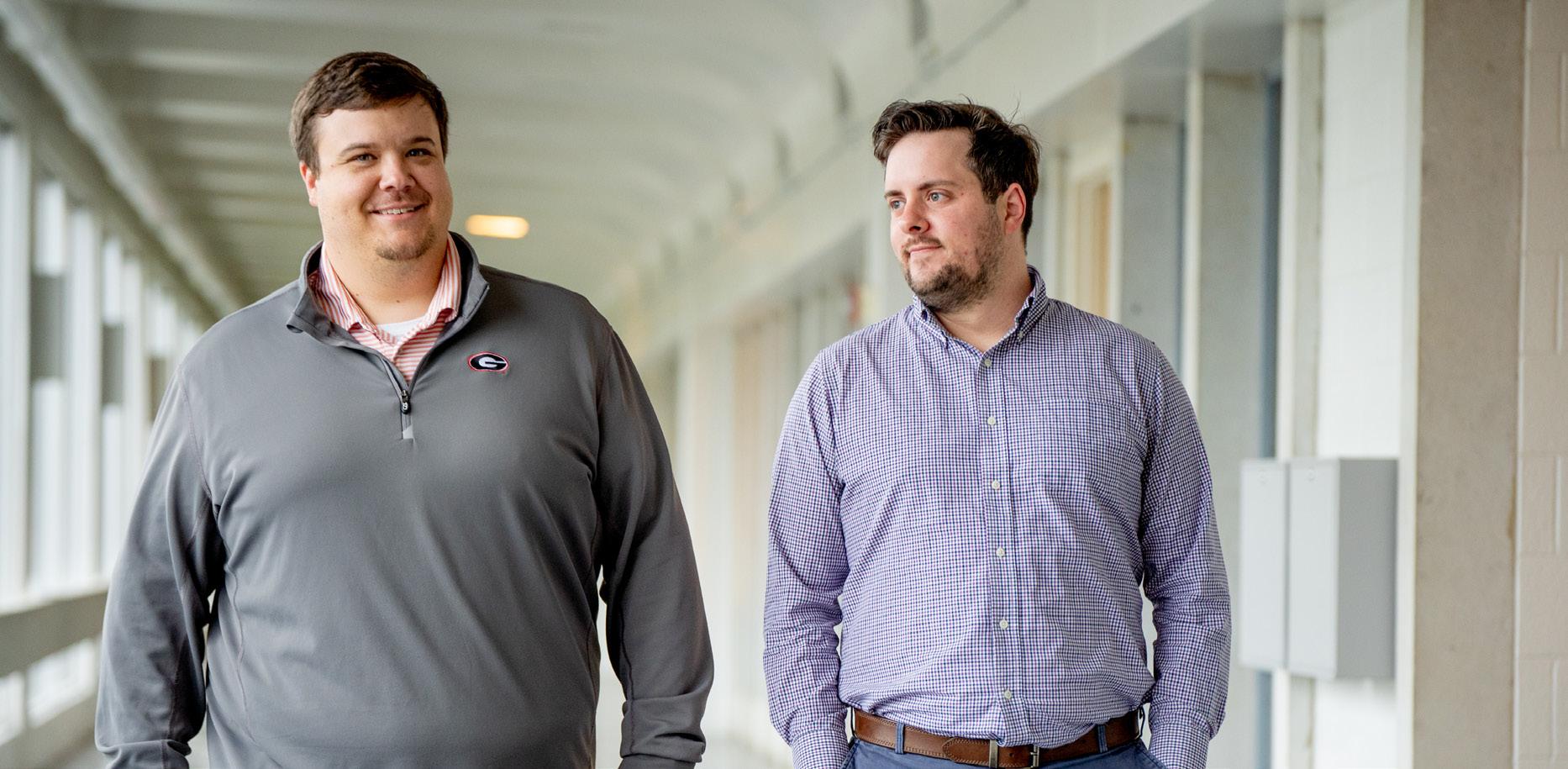
UGA SCRIPT | ANNUAL REPORT 10
Dr. Devin Lavender, Clinical Assistant Professor and Residency Program Coordinator, and Dr. Blake Johnson, Clinical Assistant Professor
Teaching & Learning
The College fosters an inclusive community offering distinctive, highly recognized academic programs and services that prepare students to be practitioners, researchers, life-long learners, and leaders in pharmacy and science.

From Pixels to Prescriptions: COP’s Vision for Immersive Tech in the Classroom
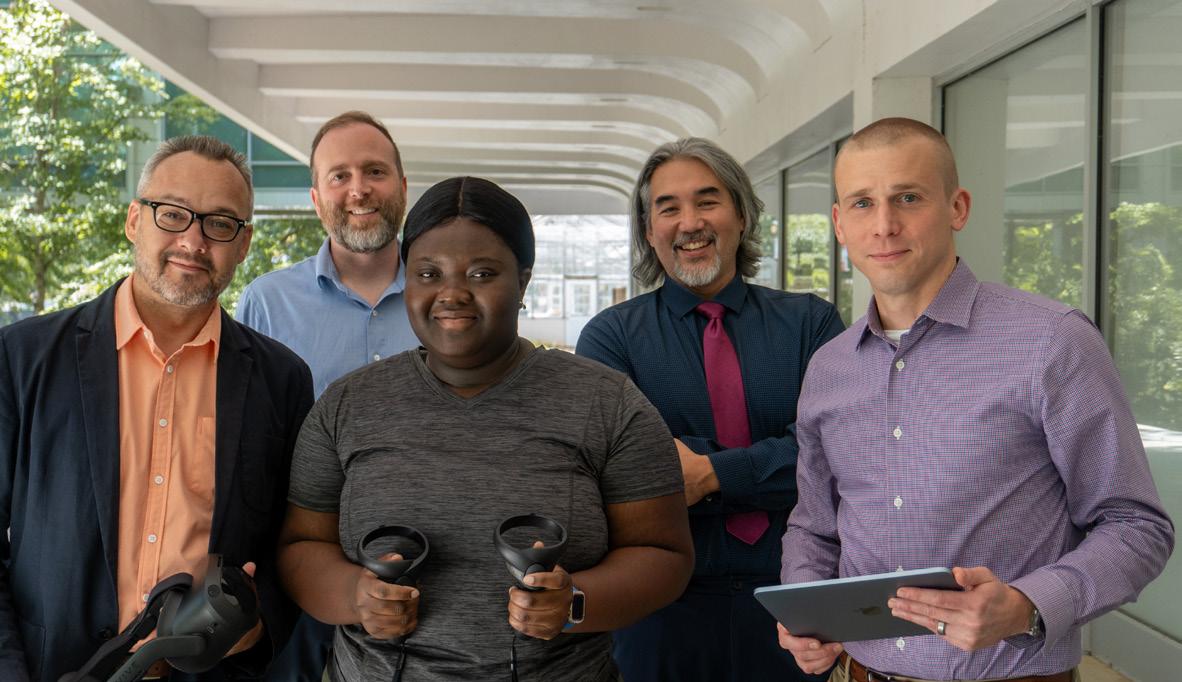
Artificial intelligence (AI) can diagnose some diseases with better accuracy than specialized practitioners, flag significant drug-drug interactions for pharmacists, and—as of just a few months ago—pass the United States Medical Licensing Exam. But, where others might get frightened by rapid growth in the field of AI, Dr. Michael Fulford, CoP’s Assistant Dean for Institutional Effectiveness and Strategic Initiatives, gets excited. “When you pair AI with immersive technology, it represents an evolution in the tools we use to educate and an opportunity to ground what we teach in an enormous amount of applied practice opportunities that would otherwise not be possible,” explained Fulford.
Immersive tech—which encompasses virtual reality, augmented reality, and mixed reality technologies, such as Apple’s recently announced Vision Pro and Meta’s Quest technology—is just one way UGA’s College of Pharmacy is rising to the bold aspirations of its 2025 Strategic Plan, which calls for transformational educational scholarship alongside new, innovative programs that better prepare students to be leaders of the future. “Imagine an immersive classroom lab experience in which you’re working in a simulated ICU alongside a full healthcare team to run a code blue. That’s the sort of rare, high-risk practice experience that we can emulate regularly with immersive tech and AI,” Fulford said.
Similarly, instead of flipping through flashcards nightly to study, students can put on a VR headset and counsel simulated patients to actively practice and assess their drug knowledge whenever they wish. “Right now, it’s just not easy to schedule multiple five-minute practice counseling sessions for over 500 students. With immersive tech, though, that limit disappears, and students can simulate an infinite amount of practice on their own while still getting instantaneous feedback,” added Fulford.
Additionally, the technology can be used by undergraduate and graduate students alike to practice and refine complex laboratory techniques with a wider range of simulated equipment and instrumentation that might not otherwise be available in every on-campus teaching lab. For Dr. Russ Palmer, inaugural Director of the newly formed Office of Instructional Innovation and Research, the ability to seamlessly transport students and researchers to unique laboratory environments is just one of many “...new teaching strategies and methods that will improve academic outcomes and address real problems to promote equitable learning.”
While the technology still needs further development before it makes its way into the classroom on a routine basis, Fulford and his colleagues are already inviting immersive medical tech demonstrations to the college. This past year, for example, P2s used immersive tech to simulate some of the challenges of living with dementia, helping them better understand the unique needs of patients with neurocognitive decline. The College, in addition to establishing strategic partnerships with technology enterprises and participating in UGA’s larger Precision One Health data science and AI efforts, also is engaged in a cluster hiring initiative with the College of Veterinary Medicine and College of Education to bring on four translational education research experts to lead immersive tech scholarship, content development, and curriculum design.
Dr. Matthew Schmidt is the first of these hires, with primary
appointment in the Mary Frances College of Education and secondary appointment in the College of Pharmacy. A leading expert in the field and co-editor of the textbook Educational Technology Beyond Content, Dr. Schmidt previously helped lead a $3 million grant at the University of Florida to explore the effectiveness of a self-managed mobile health intervention for adolescents with type 1 diabetes. With extensive research in eHealth solutions and experience bringing human-centered and equitable immersive tech to patients and students alike, he’ll help accelerate the college’s integration of novel technology into the classroom.
“Our vision for immersive tech in pharmacy education is certainly bold, but it’s one that places us at the forefront of innovative teaching and one that the College is making real progress on,” Fulford added, hinting at a project Dr. Eugene Douglass, Assistant Professor in Pharmaceutical and Biomedical Sciences, is leading to enhance students’ visualization of pharmacokinetics by placing them inside the human body. “To utilize complex pharmacokinetic equations, you first must develop an intuition for the physiological systems at play—you need to know what the equations actually represent. 2D representations of physiology can be misleading, but an immersive tech system provides a much more accurate picture of the human body at work,” explained Douglass. “Plus, humans are better able to retain spatial information than complex text-based equations. The tech is great for not just comprehension but also long-term memory consolidation.”
Within the coming semesters, Dr. Douglass hopes that students will be able to see firsthand how drugs are absorbed, distributed, metabolized, and eliminated in the body. His simulations, which are rooted in real, curated clinical datasets of patient-specific pharmacokinetic parameters, will offer students a unique opportunity to build an unparalleled intuition of how drugs exert their effects over time. And when dosing- and calculation-based pharmacokinetic medication errors still occur frequently and put patient well-being at risk, helping students develop a more natural intuition of pharmacokinetics with immersive tech may not just be valuable for long-term knowledge retention—it might just be a life-saving innovation.
UGA SCRIPT | ANNUAL REPORT 12 TEACHING AND LEARNING
Drs. Schmidt, Palmer, Fulford, and Douglass are helping P2 students like Lady Sarfo better understand complex pharmacokinetics with a VR headset, innovative simulations, and forward thinking, UGA-driven ingenuity.
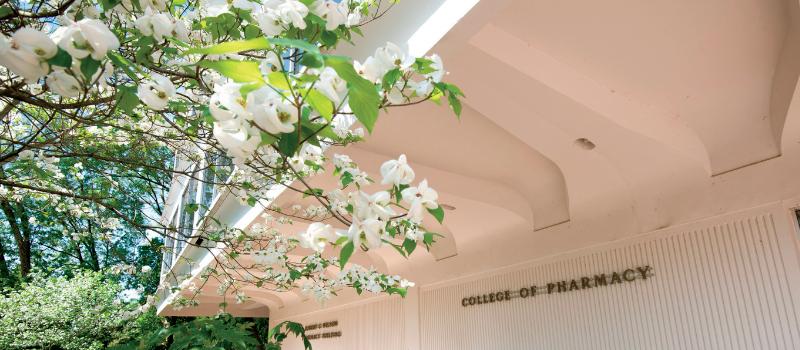
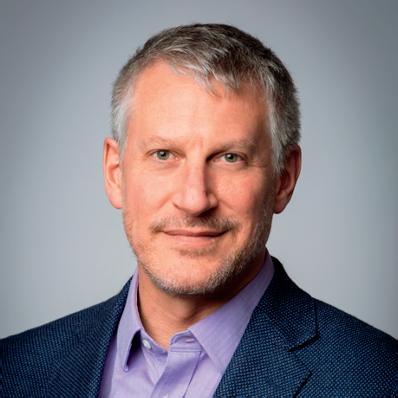



UGA SCRIPT | ANNUAL REPORT 13
by Co-founder, President and CEO Interdict Bio LAWRENCE G. HAMANN, PhD REGISTER TODAY October 4, 2023 11:00 am The October 2023 Chu Lectureship The Arc of Innovation in Small Molecule Drug Discovery: Past, Present & Future The David and Jane Chu Auditorium | 101 Pharmacy South Hybrid format offered. | Virtual link will be emailed to registrants by October 3. Accessibility Statement 10:30 – 11:00 am: Drop-in Brunch Reception (Pharmacy South Lobby) 11:00 am – 12:15 pm: Speaker Presentation/Lecture Contact: Dawn Burden | dawnburden@uga.edu Register at: https://bit.ly/Chu-Lectureship-Oct-2023 This lecture is part of the University’s Signature Lectures series .
Presented
1147 47 Matriculants
3.52 Average Overall Undergraduate GPA
TOP 3
PRE-PHARMACY MAJORS
TOP 4
INSTITUTIONS
3.46


21% Pharmaceutical Sciences
19% Biology
13% Chemistry
47% UGA
6% Georgia Southern
5% Georgia State
4% North Georgia
99 Average Earned Credit Hours (Undergrad Coursework)
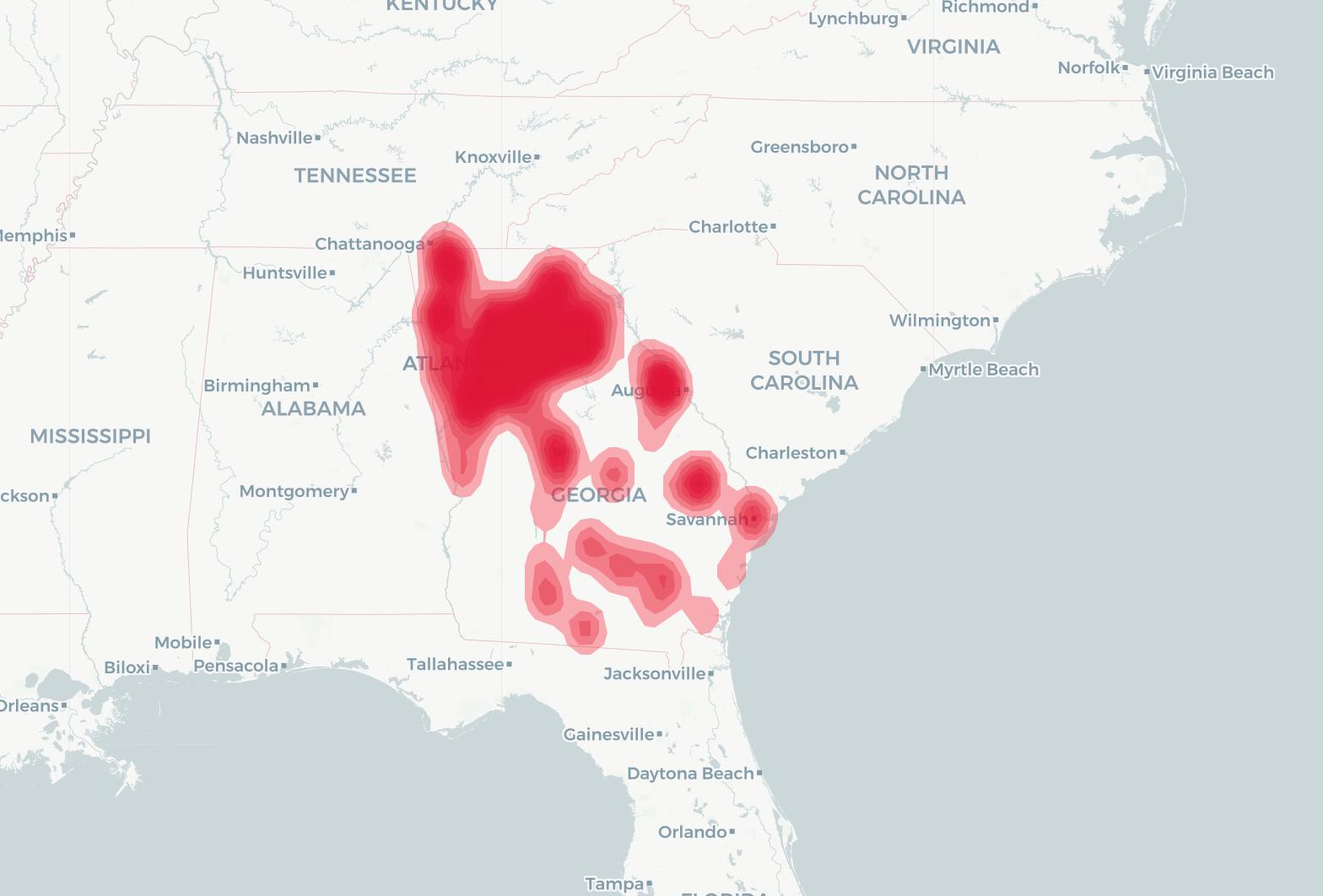
UGA SCRIPT | ANNUAL REPORT 14 Average
Prerequisite GPA
*Georgia residents by population
147 White Coats, 8 Recitation Leaders, and 1 Ceremony Later, the Class of 2027 Begins Their Journey

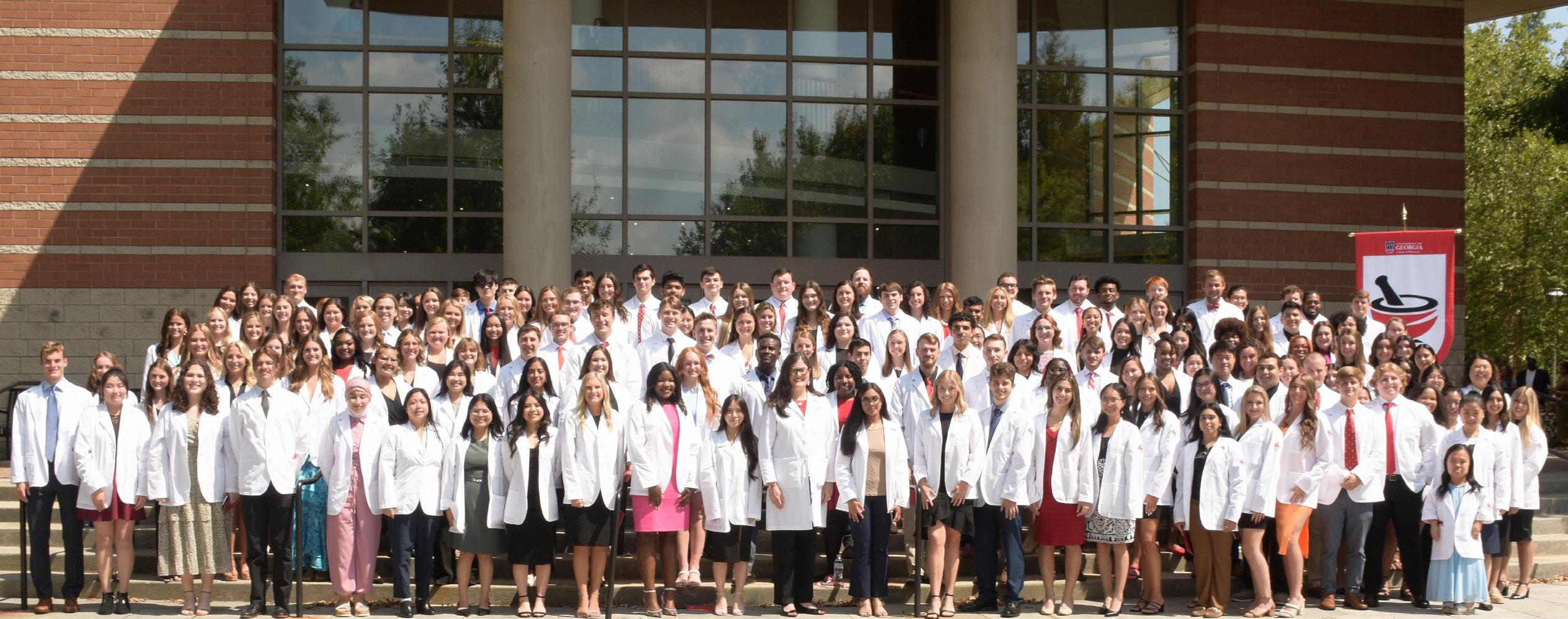
he new Doctor of Pharmacy Class of 2027 knows better than most that this year is going to be a big one— literally. With 147 first-year students, it’s the largest class the college has ever welcomed through the doors of the 120-year-old institution. August 12, the students officially joined the PharmDawg family during the college’s 24th annual White Coat Ceremony, when Dean Kelly Smith spoke about the transformative nature of pharmacy at UGA. “Over the next four years,” she said, “you will evolve, not just as a pharmacist, but as a leader and provider for those you serve.”
Dean Smith offered a warm welcome to keynote speaker Dr. Leslie Jaggers ’85, ’87, Field Medical Director for the Cardiovascular-Metabolic Program for Pfizer in Atlanta. Dr. Jaggers inspired the incoming pharmacy students with her message of wisdom and genuineness, two tenants in the RxDawgs Pledge the honorees recited during the ceremony. Dr. Jaggers advised the new P1s, “Pharmacy continues to be one of the most trusted professions. People may not know you personally, but they will trust in you to do what is best for them. You should always strive to be sincere and honest in your communications.”
A past President of the Georgia Society of Health-System Pharmacists, Dr. Jaggers has been recognized as both an Atlanta Academy of Institutional Pharmacy (AAIP) and Georgia Society of Health-System Pharmacists (GSHP) Pharmacist of the Year. Nationally, she served three terms on the American Society of Health-System Pharmacists Council on Therapeutics, and she achieved fellow status with ASHP in 2018. A devoted preceptor for UGA students and pharmacy residents, Dr. Jaggers also served the college on the Dean’s Advisory Board from 2001 – 2018, observing firsthand the transformative nature of the college’s PharmD program.
It’s that transformative process and leadership acumen of becoming a pharmacist that has P1 students, such as Jacob Rojas, of Goochland, Va., excited for what’s to come. “For years as an undergrad, I was involved in pre-health organizations and always told myself and others that I’d become a healthcare provider one day,” he said. “Now, I’m finally getting to make that dream a reality. I’m finally doing the thing I always wanted.”
Mina Amirkhani, a P1 student from Cumming, Ga., who completed her pre-pharmacy studies at UGA and has previous work experience with Walgreens, is similarly thrilled to begin her professional

journey. “I’m most excited to learn drug information that is directly applicable to my future career, and it’s rewarding to know that everything we study from here on out has its roots in helping patients,” she shared.
The opportunity to help patients is what drew incoming student Karsin Bass, Forsyth, Ga., to pharmacy school, and she’s particularly excited about using her career to help children. “I love kids and am currently thinking about a career in pediatrics. But I also want to spend time learning about other fields and seeing all that pharmacy has to offer,” she explained, adding, “It’s exciting to have the freedom to explore for a few more years!” For Paige Miller, who grew up in Charleston, S.C., and graduated from Clemson with a degree in chemistry, exploring a new program in a new city is what the next few years are all about. “I’m most excited about diving into all the student organizations, getting involved, and meeting more people. I’ve worked in non-sterile compounding at an independent pharmacy, and I can’t wait to learn more and try out even more new skills.”
It’s not just Jacob, Mina, Karsin, and Paige who are excited about the start of the new year, though. The fervent enthusiasm they embody is palpable throughout the entire class, and it’s shared by the entire PharmDawg community at large as well. Mr. Mahlon Davidson, Class of 1982 alumnus and newly appointed Interim CEO of the Georgia Pharmacy Association, was one of the speakers at the White Coat Ceremony. Representing his employer, Kroger Pharmacy, the sponsor of the event, Mr. Davidson commented that the future of pharmacy looks brighter because of the promising future PharmDs sitting in front of him. “I look forward to four years from now when you graduate, and I can tell you that pharmacy just got better,” he said. “Today, the International Pharmacy Federation defines more than 100 career pathways a pharmacist can pursue. Tomorrow, as a Doctor of Pharmacy from the University of Georgia, you will be positioned to define even more pathways in the future practice of our profession.”
The next four years will certainly transform the largest PharmD class the college has ever seen into practicing pharmacists, but so too will they transform the profession itself. With 147 unique stories converging onto one common path, the Class of 2027 enters the world of pharmacy, carrying with it a torch of progress that promises to illuminate a brighter future.
UGA SCRIPT | ANNUAL REPORT 15
UGA College of Pharmacy, Fort Valley State University Partner to Support Future Pharmacists
In a formal ceremony held August 23, officials from Fort Valley State University and the University of Georgia College of Pharmacy signed an agreement that will allow FVSU undergraduate chemistry students to have a streamlined approach for admission into UGA’s Doctor of Pharmacy program.
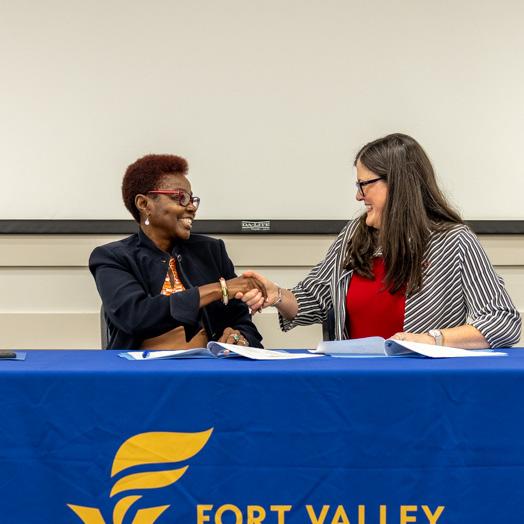
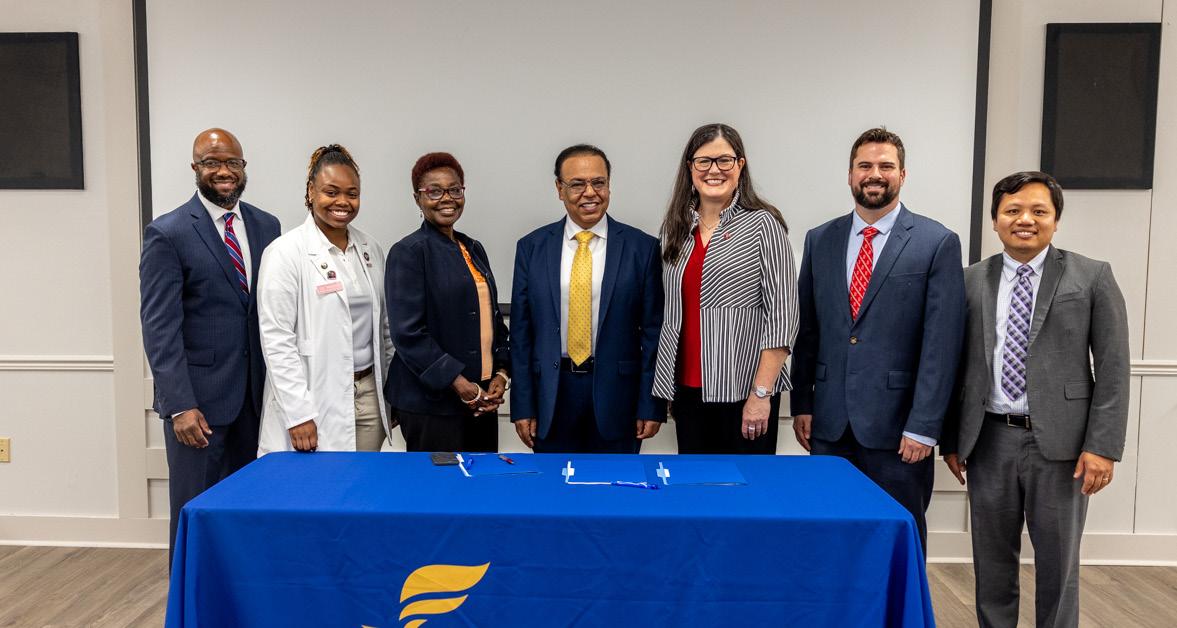
Kelly Smith, dean of UGA’s College of Pharmacy; Olufunke Fontenot, FVSU’s provost; and Fares Howari, dean of FVSU’s College of Arts & Sciences, signed the articulation that provides students with a guided pathway into UGA’s four-year curriculum. The initiative, coined the “3 + 4” program, allows students to gain an earlier start in this critical healthcare field, which will compute to an overall cost-savings.
Specifically, FVSU students in their junior year who maintain certain academic criteria and successfully fulfill all admissions requirements into UGA will receive a guaranteed interview at the College of Pharmacy. Those admitted will then complete the articulated PharmD courses. In turn, the course credits will be transferred back to FVSU to fulfill requirements for a BS degree.
The signing ceremony included faculty, staff, and students from the two University System of Georgia colleges, along with remarks from Dean Smith, Dean Howari, Provost Fontenot, and Halle Tukes, a FVSU alumnus and current UGA pharmacy student.
“As an alumnus from Fort Valley State and a thirdyear PharmD student, I recognize the value of this important initiative between FVSU and the College of Pharmacy,” said Tukes, who is a P3 student at the extended campus in Savannah. “The support, guidance, and opportunity to jump-start pharmacy school will allow future students to excel in the program.” Within the UGA College of Pharmacy, Tukes
is the Student National Pharmacy Association’s Powerto-End Stroke Chair & Savannah Liaison, the Georgia Society of Health System Pharmacists’ Vice President of Membership and Finance, and a member of both the American Pharmacy Association and the Black Student Pharmacist Organization.
“There is no better time to forge this unique relationship,” said Dean Smith in her remarks. “Georgia communities are projected to need more pharmacists now and in the future. The value of pharmacists in helping people address their healthcare concerns is becoming extraordinarily apparent, especially since the pandemic. Pharmacists are being recognized for their leadership and the value they bring to an integrated healthcare team.”
“Today, we stand at the precipice of an extraordinary journey, as Fort Valley State University and the esteemed University of Georgia College of Pharmacy join hands in an unwavering commitment to support the Pre-eHealth and Pre-Pharmacy tracks at FVSU,” said Dean Howari during the ceremony.
Careers in pharmacy are among the best in the nation, with pharmacists ranked third among the highest paid jobs in the U.S. according to Glassdoor. In addition, the UGA College of Pharmacy is ranked 24th in the nation by U.S. News and World Report. Further, the North American Pharmacist Licensure Examination (NAPLEX) pass rate for the UGA PharmD Class of 2022 was 5% above the national average, the fourth highest among its Southeastern Conference peers, and the highest among the four State of Georgia PharmD programs.
This articulation agreement is the seventh the UGA College of Pharmacy has signed with other University System of Georgia colleges and universities, including Augusta University, Dalton State College, Georgia College
UGA SCRIPT | ANNUAL REPORT 16
TEACHING AND LEARNING
From left to right: Dr. Henry Young, Halle Tukes, Provost Olufunke Fontenot, Dean Fares Howari, Dean Kelly Smith, Dr. Andrew Darley, and Dr. Duc Do
and State University, Georgia Gwinnett College, Georgia Southern University, and Valdosta State University.
“This momentous signing of the Memorandum of Understanding represents the convergence of visionary minds and the promise of transforming lives,” continued Dean Howari. “Together, we will script a new chapter in healthcare and empower the next generation of healthcare leaders. Let this agreement be a beacon of hope, illuminating the path to a healthier and brighter future for the people of Georgia and beyond.”
Fort Valley State University students interested in attending UGA’s PharmD program may contact Dr. Duc Do, assistant dean for Student Affairs at UGA’s College of Pharmacy.
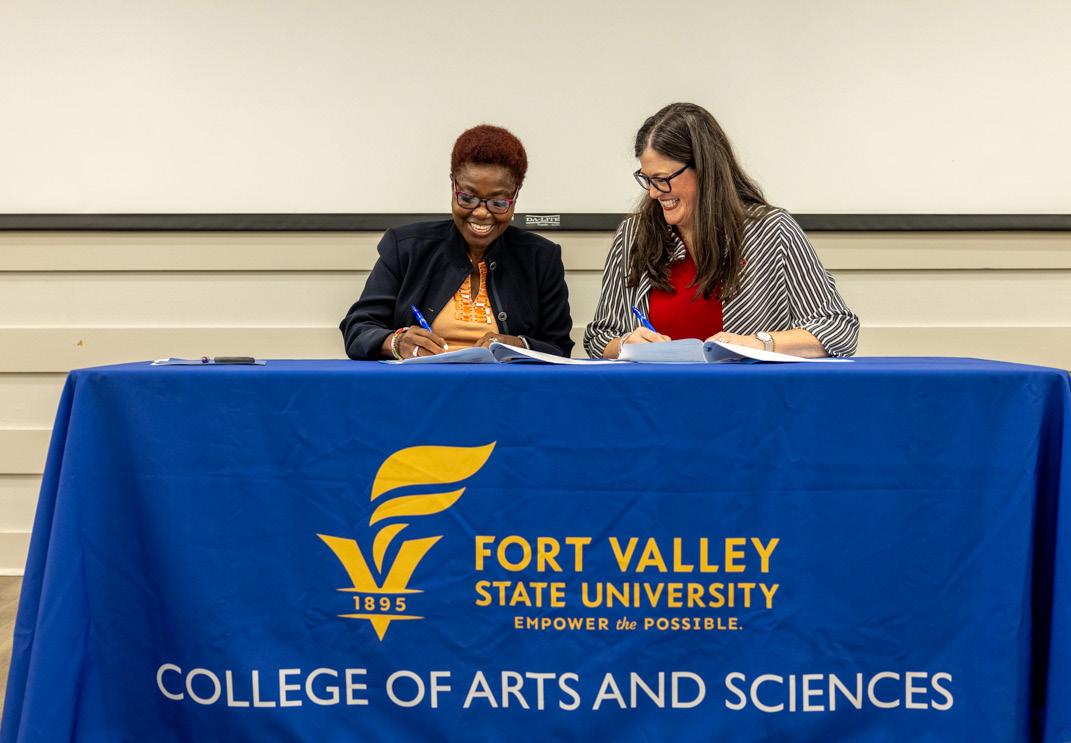
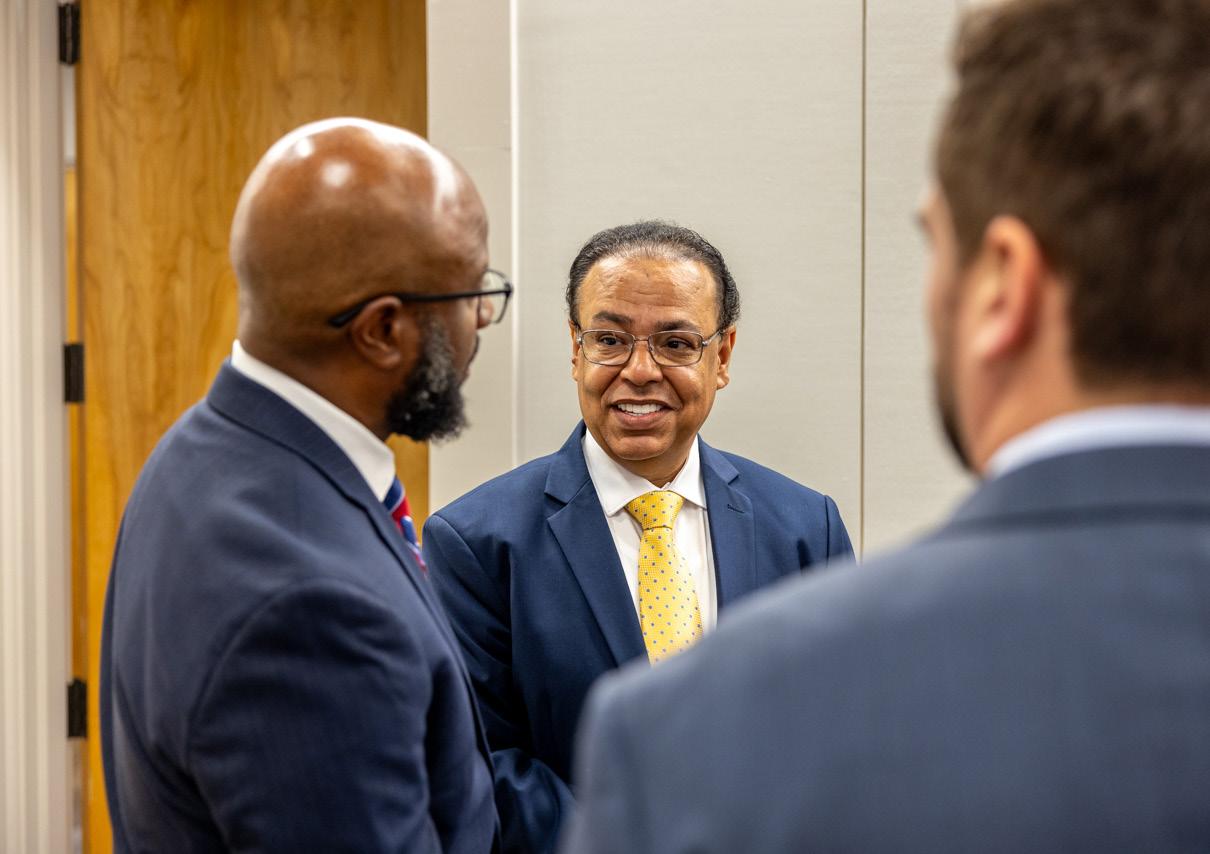
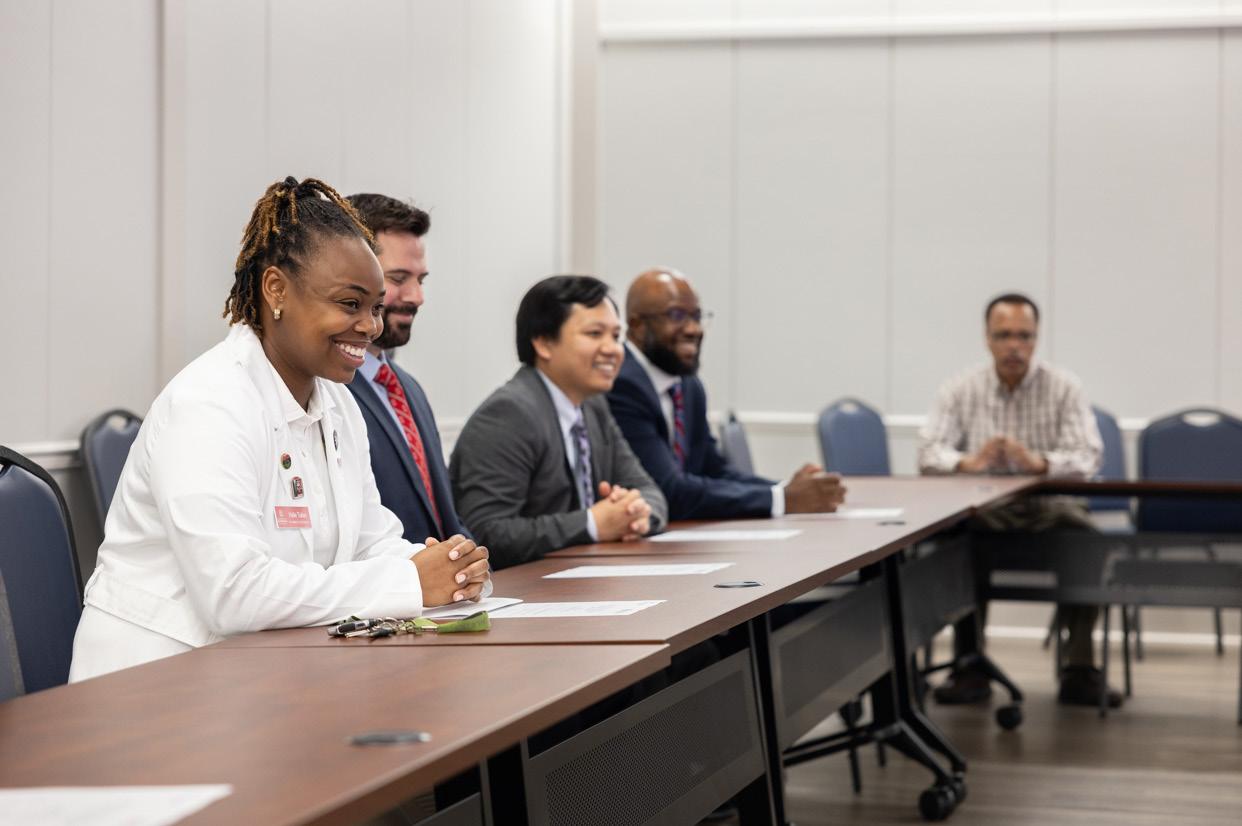
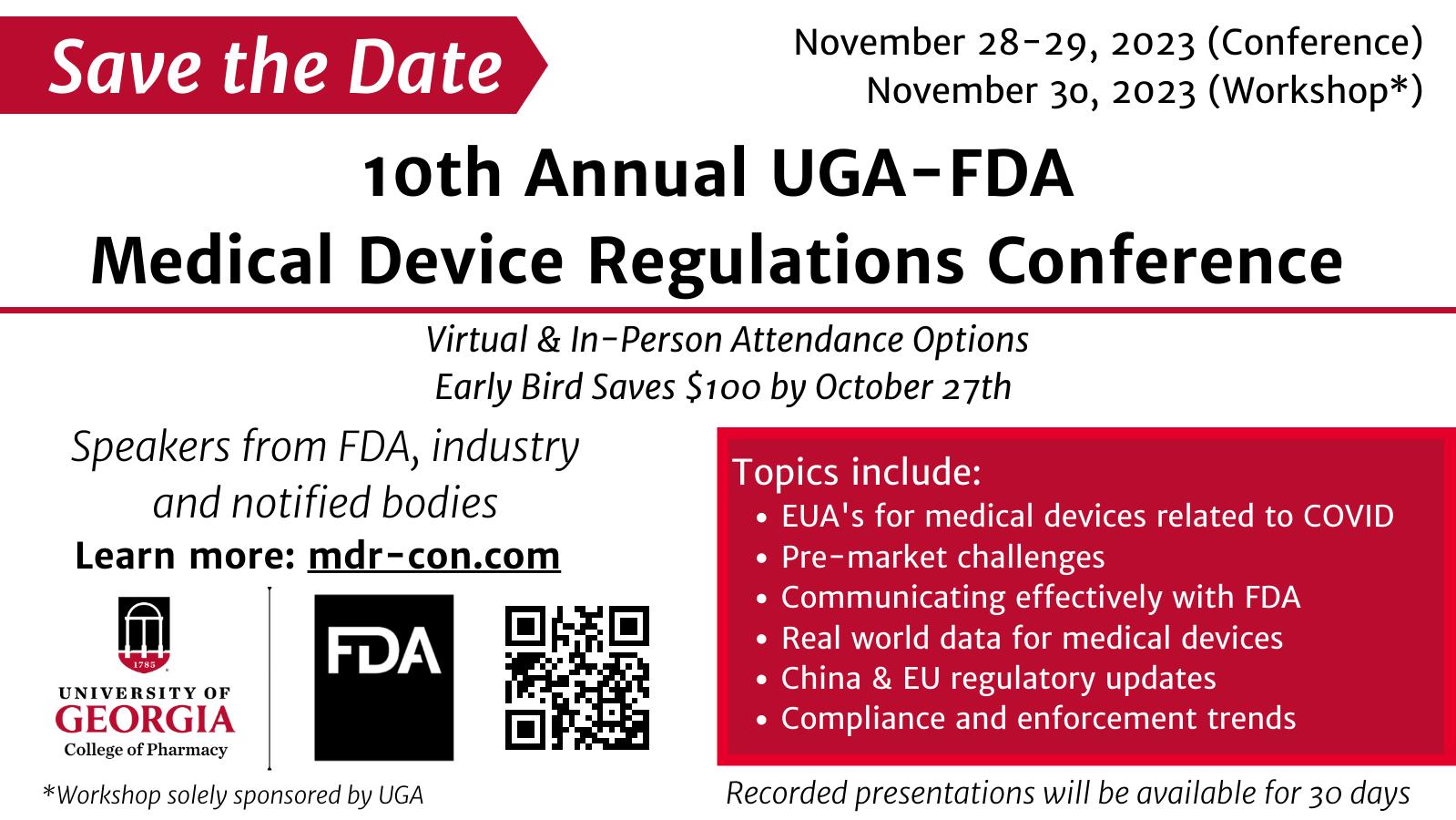
UGA SCRIPT | ANNUAL REPORT 17
Photos courtesy of DJ Pearson, University photographer/videographer, FVSU
BSPS Celebrates
Traditionally, 10-year anniversaries are recognized with gifts made from aluminum or tin, which symbolize strength and resilience. A more modern approach is a gift of diamonds, which represents durability.
While the 10-year celebration of the College of Pharmacy’s Bachelor of Science in Pharmaceutical Sciences (BSPS) does not require gifts, the descriptors are aptly representative of the program that has evolved. This evolution can be directly attributed to the commitment and perseverance of college leaders and faculty who value the importance of an undergraduate education in pharmaceutical sciences.
Dr. Svein Øie, the brainchild behind establishing the CoP BSPS program and the College of Pharmacy Dean from 2000-2018, began discussions with Dr. Michael Bartlett, University Professor and Associate Dean for Science Education, Research and Technology, in the fall of 2010. Dr. Bartlett worked diligently and collaboratively to develop the curriculum and assemble faculty, and the first class was held in the fall of 2013. Dr. Øie intended that the B.S. degree would recapture that part of pharmacy that dealt with the discovery, development, preparation, and quality assurance of medications which was de-emphasized when pharmacy transitioned to the all PharmD prgram. The BS program, therefore, allows the College to offer the full range of pharmacy education whether at the undergraduate, professional or graduate levels. Students who earn the BSPS degree, which is housed in the Department of Pharmaceutical and Biomedical Sciences at the
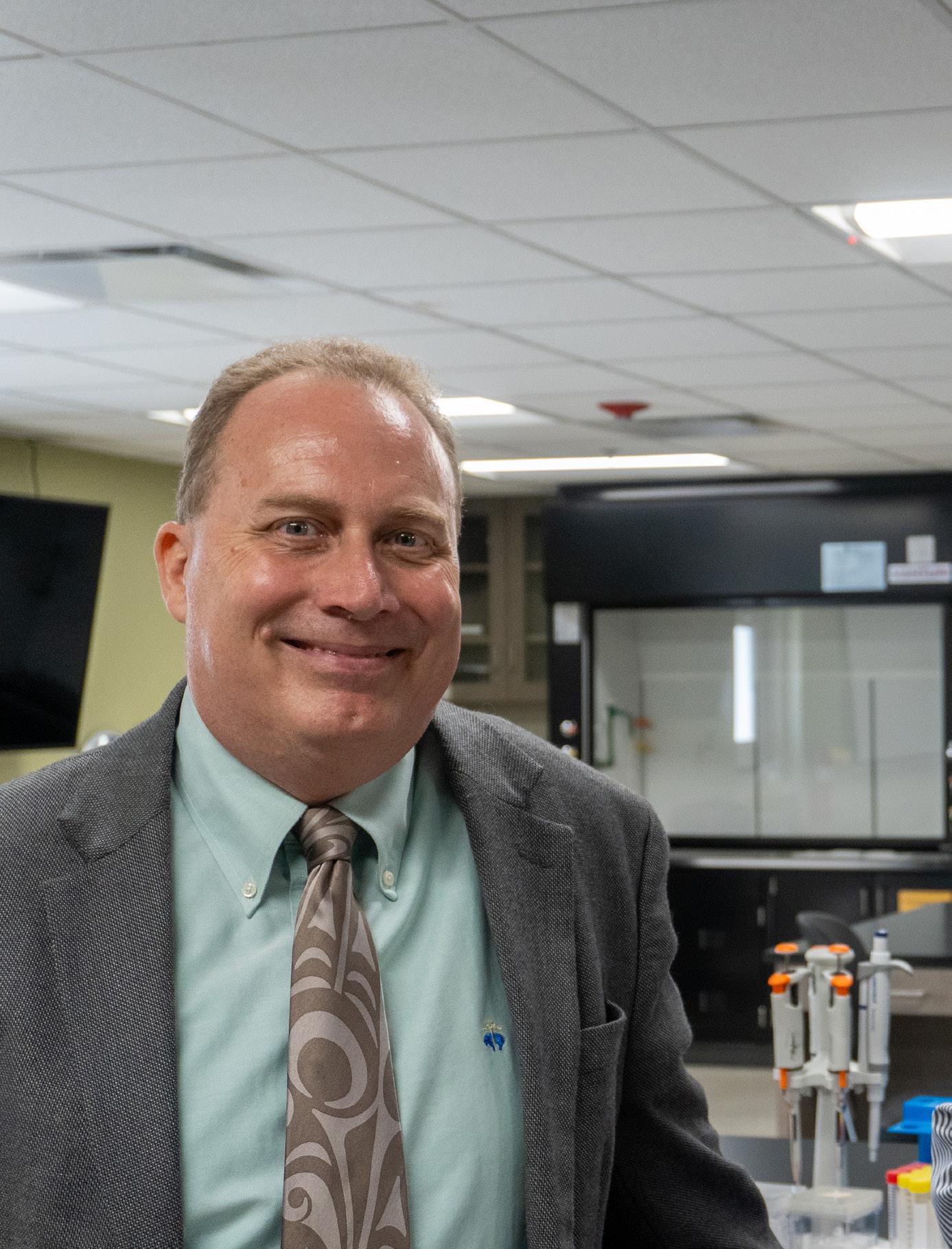
College, gain an understanding of how drugs are researched and developed; how pharmaceuticals interact with the human body; how dosages are formulated, manufactured, and tested; and how the basic sciences play a role in the development of modern therapeutics. Since the program’s inception, 180 UGA students have graduated with the degree. Post-graduate options include careers in industry or pursuits of advanced degrees. According to ExploreHealthCareers.org, the job outlook in Pharmaceutical Science is “very good” with salaries averaging $104-120,000.
Currently, Dr. Gurvinder Singh Rekhi is the director of the BSPS. Though many CoP faculty members teach in the program, lead instructors include Dr. Deborah Elder, Professor and Interim Assistant Department Head for Undergraduate and Professional Education, Dr. Wided Missaoui, Assistant Professor, and Dr. Rekhi. Leslie Standridge is the program’s advisor.
UGA SCRIPT | ANNUAL REPORT 18
TEACHING AND LEARNING
‘Strength,’ ‘Resilience,’ ‘Durability’
According to Dr. Bartlett, “Our graduates have been able to use this undergraduate education to pursue many different opportunities, so it has demonstrated itself to be a versatile degree. About 60% of our graduates go on to graduate or professional schools. We have had students pursue almost every biomedical program possible with our strong pedagogy in pharmaceutical sciences.” He continued, “The other 40% have gone directly into industry. There is a robust and growing pharmaceutical and biotechnology presence in Georgia, and our program has become a key supplier of employees to these companies. Our students are much better prepared to support drug discovery and development as compared to any other degree. The teaching lab that we have is organized to provide our students with hands on experience in drug development that is simply not found anywhere else.”
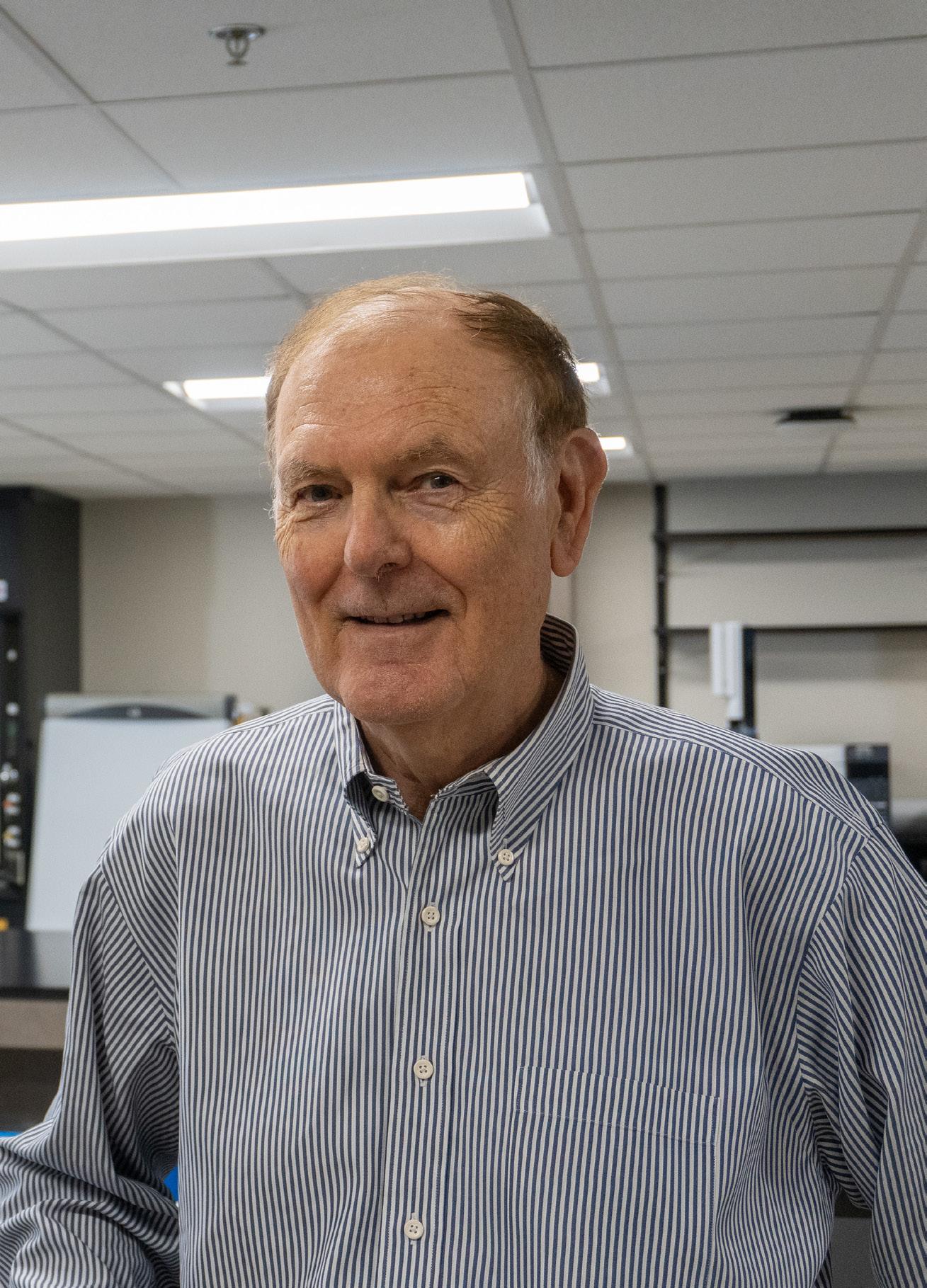
8
3 Double Majors
28 Total BS/MS Double Major Graduates Started in Fall 2015 Students minoring in Pharmaceutical Sciences
48
180 Total Graduates July 2023 Attend Graduate & Professional Programs
60% Obtain Government or Industry Jobs
40%
UGA SCRIPT | ANNUAL REPORT 19 Students in the
first Graduating Class 2015
Post-Graduation
BS PHARMACEUTICAL 10-YEARS OF
PROGRAM
SUCCESS SCIENCES
Dr. Michael Bartlett (left) and Dr. Svein Øie (right)
UGA Pharmacy Receives National Award for Interprofessional Education Collaboration
The University of Georgia’s College of Pharmacy received an Honorable Mention in Public Health Infrastructure from the Interprofessional Education Collaborative and the Commissioned Officers Foundation for the Advancement of Public Health in Washington, D.C. during the summer. At the ceremony, awards were presented to one overall winner and five honorable mention recipients, all of which were recognized for innovative and transformative solutions to improving the health of communities by demonstrating a clear connection between interprofessional practice, outcomes, and impact.
The title of the award-winning UGA entry was “Modeling Collaborative Interprofessional Care through a Mass Outbreak.” The College of Pharmacy worked with the Augusta University/UGA Medical Partnership, the UGA College of Public Health, and Augusta University School of Nursing on the simulated event. Leaders representing each of the participating entities included Dr. Tim Brown, the college’s director of Interprofessional Education and professor at Augusta University/UGA Medical Partnership; Beth McLear, Adult-Gerontology Acute Care Nurse Practitioner at Augusta University College of Nursing; Dr. José F. Cordero, head of the Department of Epidemiology and Biostatistics at the College of Public Health; and Kay Brooks, academic professional in Experience Programs at the College of Pharmacy.
This program was initiated in 2017 by Brooks, Dr. Cathy White, Associate Professor in Pharmaceutical and Biomedical Sciences, and Dr. Trina von Waldner, retired Director of Continuing Professional Development and Outreach through a collaborative planning process with faculty from pharmacy, nursing and epidemiology. It has evolved since its inception to respond to the growing needs of each profession so that learning outcomes can be achieved. More than 200 students from the participating campuses engage in the simulations each year, which allows them to gain experience in providing team-based care to a diverse patient population and gain a greater appreciation for the various roles of each profession during a public health crisis.

“Ultimately, students not only gain an understanding for managing a mass outbreak in their community, they learn teamwork, patient management skills, problem solving, and how the healthcare team members must interact to find the source of the outbreak while providing care to the patients being served,” remarked Brown. “To date, more than 1,250 students have been introduced to the tenets of interprofessional team work in public health emergencies and how patient care is best managed for successful outcomes.”
In addition to being named one of the country’s top six IPE programs of the year, the CoP’s interprofessional simulated experience has been showcased in three national poster presentations and at a national podium presentation.
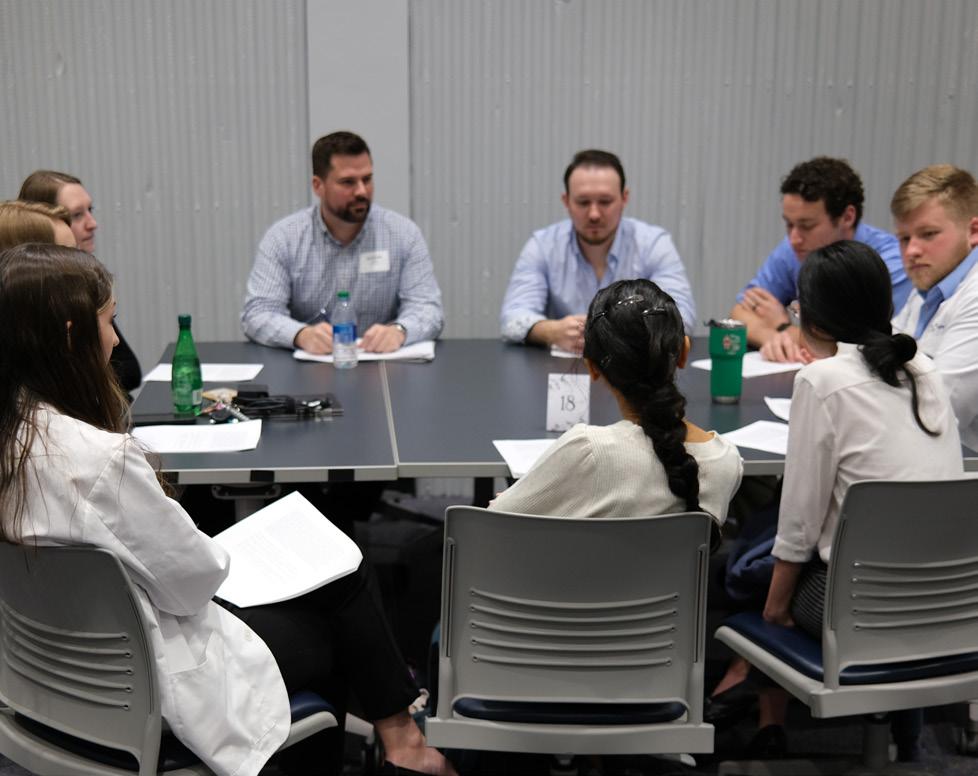
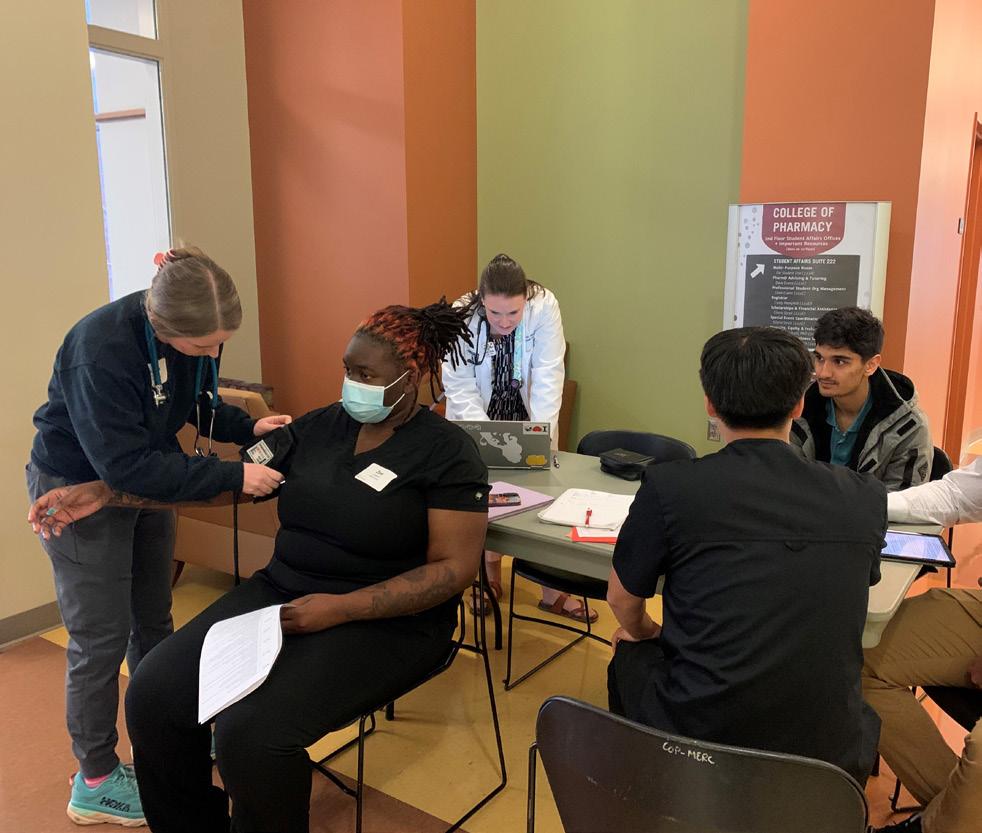
UGA SCRIPT | ANNUAL REPORT 20
TEACHING
AND LEARNING
Research
The College of Pharmacy fosters an interdisciplinary research culture that values innovation and entrepreneurship, yielding international recognition within distinctive areas of emphasis.
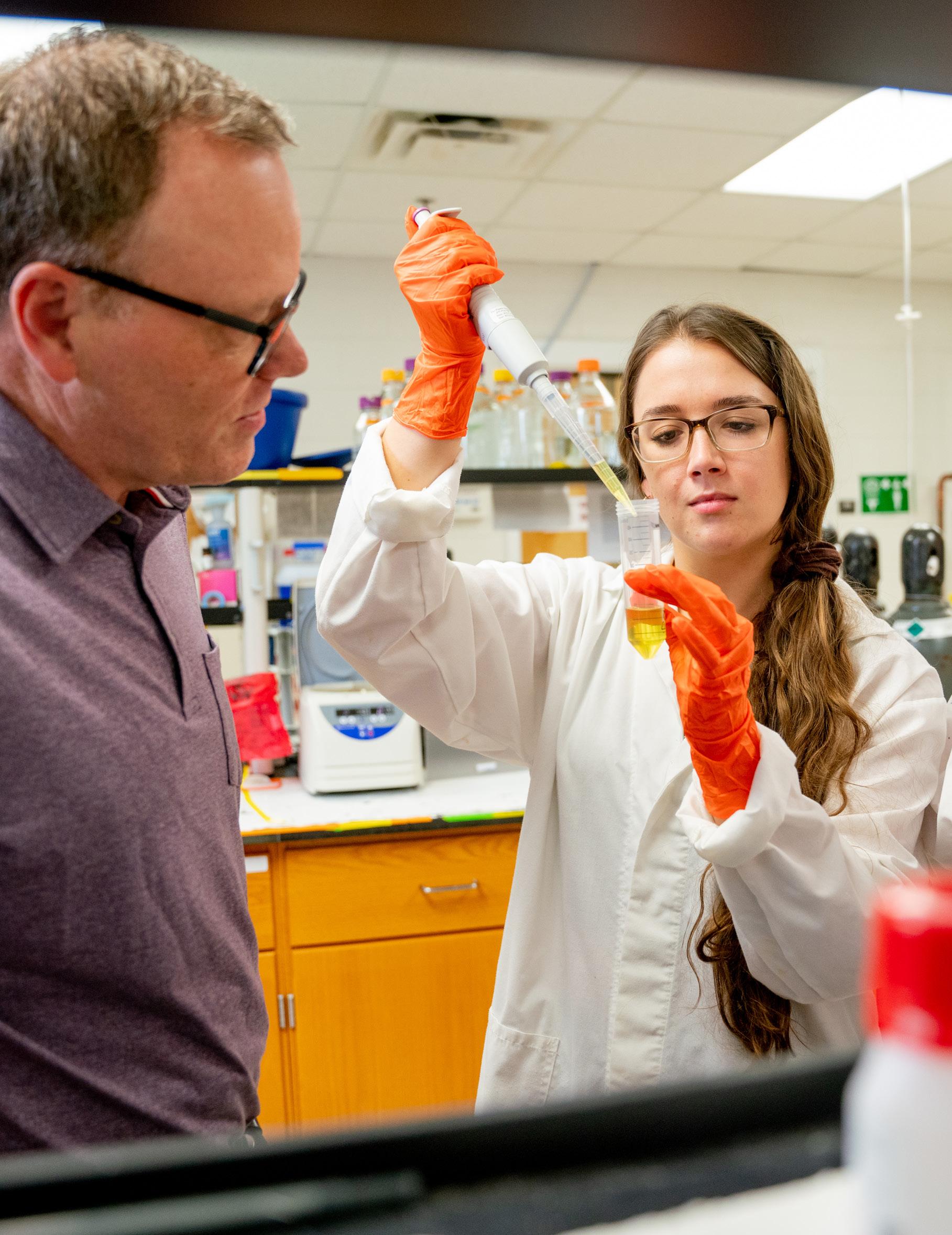
New Molecule Could Treat Shingles, Herpes Viruses
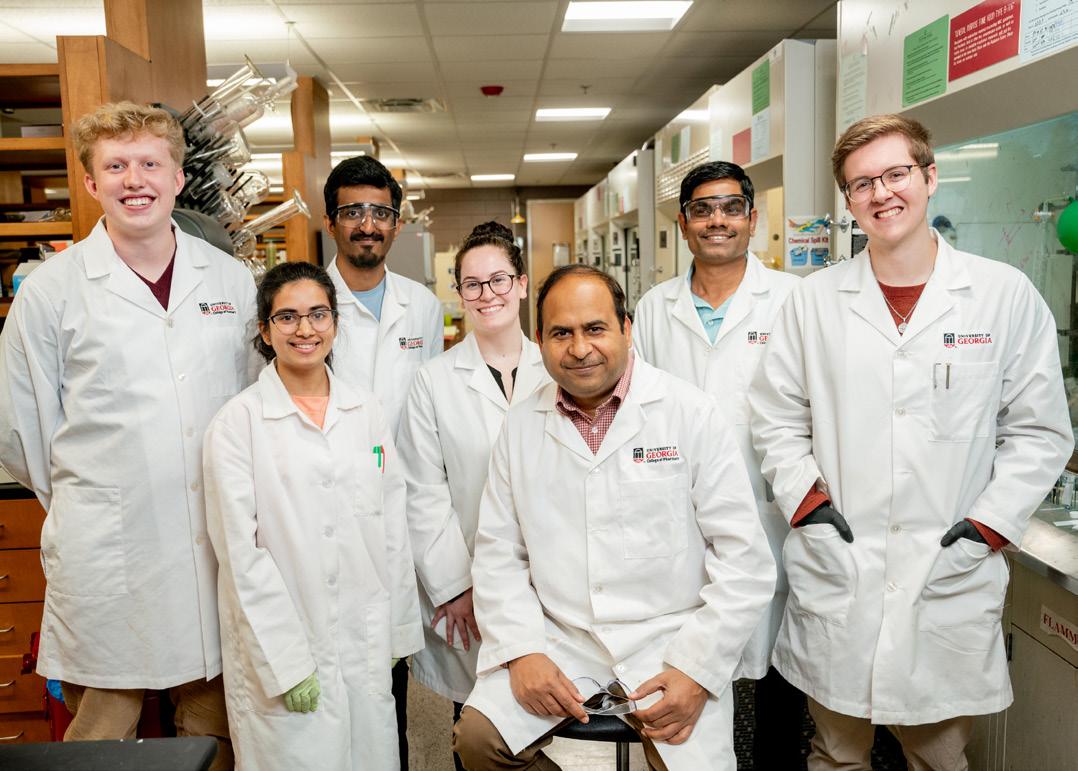
Current medications are ineffective, carry dangerous side effects; new molecule could fill treatment gap.
by Leigh Beeson, Senior Science Research Writer, UGA Division of Marketing and Communications
You’ve seen the commercial. The one that ominously tells you if you had chickenpox as a child, the virus that causes shingles is already inside you. It’s “creepy” but a good way to prompt people to get the shingles vaccine. Unfortunately, the shot doesn’t always keep you from getting shingles. It just mitigates the symptoms. That’s why University of Georgia researchers Dr. David Chu and Dr. Uma Singh have developed and patented a molecule to serve as a potential treatment for the varicella zoster virus, the type of herpes that causes both chickenpox and shingles. A new study found the molecule can effectively treat the uncomfortable lesions that accompany shingles and suggests the molecule may also work against the viruses that cause oral and genital herpes.“Many viruses are becoming drug-resistant to the current medications on the market,” said Dr. Uma Singh, lead author of the study and a lecturer in UGA’s College of Pharmacy. “There is a continuous need for new molecules, and the one we developed, called POM-L-BHDU, shows much more potency against the virus than current ones.” The researchers also found that the molecule is safe for treating varicella zoster virus in cancer patients. Additionally, the molecule can be applied topically besides being taken orally or intravenously, making it a great option for a future cream-based medication for
both shingles and other herpes outbreaks. No effective treatments exist for herpes and shingles viruses. While several drugs are on the market to treat the viruses caused by the varicella zoster virus, they aren’t particularly effective or can have potentially life-threatening side effects. For example, cidofovir is an antiviral commonly used for viral eye infections and used offlabel to treat warts and herpes. But it can accumulate in the kidneys and potentially cause them to fail in severe cases. A topical medication using the patented molecule can better target localized outbreaks, preventing the virus from spreading to other areas of the body. Topical medications also limit the amount of a drug that is absorbed into the bloodstream and cut down significantly on side effects.
UGA SCRIPT | ANNUAL REPORT 22
RESEARCH
Dr. Uma Singh (front) alongside students in the Chu laboratory.
But the new molecule isn’t just for topical treatments.“We want to develop this as a broadspectrum molecule,” Singh said. “It acts against both the varicella zoster virus and herpes simplex 1 and 2 viruses. For patients who want to take it in capsules, they could. Those who want to take it intravenously, they could. And those who want to use it topically, they can easily apply it at home.” The researchers hope the topical formula will be sold over the counter, enabling patients to easily access treatment in the privacy of their own homes without needing a prescription.
Molecule shows success against viruses in multiple models. The molecule has already proven effective in vitro and in vivo mouse models.
Topical studies on adult human skin indicate that POM-L-BHDU, 0.2% formulated in cocoa butter is highly effective against both herpes simplex 1 and the varicella zoster viruses. (These results are currently unpublished.) The next step is to get the molecule into phase 1 clinical trials, something Singh hopes will happen in the next couple of years. “We want to push this project as soon as possible into large-scale synthesis,” Singh said. “It has the potential to benefit society on a large scale.” Recently, the UGA Research Foundation has licensed this molecule to a company called Anterogen Co. A part of this invention has been published in J. Med. Chem. The study was coauthored by the College of Pharmacy’s Chung K. Chu, Ananda K. Konreddy, Yugandhar Kothapalli, Vidya Annavarapu, Catherine A. White and Michael G. Bartlett. Additional co-authors include Dongmei Liu, Megan G. Lloyd and Jennifer F. Moffat, from the State University of New York.
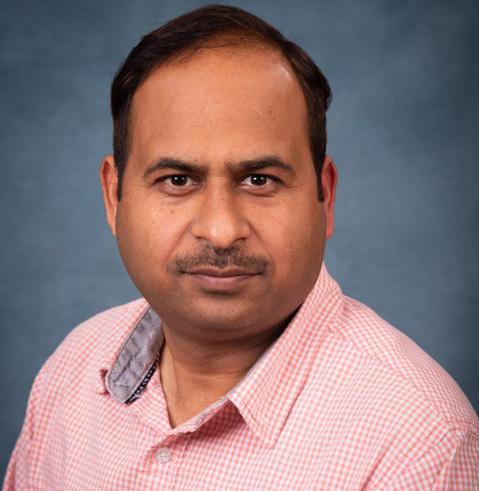
UGA SCRIPT | ANNUAL REPORT 23
“We want to push this project as soon as possible … it has the potential to benefit society on a large scale.”
—Dr. Uma Singh, College of Pharmacy
0 2,500,000 5,000,000 7,500,000 FY23 FY22 FY21
FUNDING
FY22
EXTERNAL
$6M+
20 FY 23: 20 GRANTS TOTALING $6,081,169 FY 22: 19 GRANTS TOTALING $4,826,157 FY 21: 21 GRANTS TOTALING $5,687,419 RESEARCH INCREASE
IN
OVER
IN
GRANT FUNDING IN FY23 Research Dollars Awarded 26%
GRANTS IN FY23
Save the dates for
Converge 2023
Rural Health Symposium
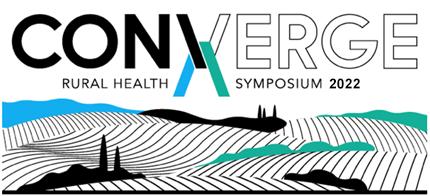
Hosted by the University of Georgia College of Pharmacy in partnership with Augusta University, Robert Gordon University, University of Aberdeen, and NHS Education for Scotland
Part 1
November 8th, 2023
9:00-12:00 EST & 14:00-17:00 GMT
Part 2
November 9th, 2023
9:00-13:00 EST & 14:00-17:00 GMT
Join us on both days for a virtual and interactive rural health symposium focused on the understanding of rural health challenges and seeking opportunities to foster collaboration. The symposium will feature rural health experts from partnering universities and from the NHS. Catalyst talks, panels, and round table discussions will be focused on access to care, experiential learning, and the emerging topic of culture through an education and learning perspective.

UGA SCRIPT | ANNUAL REPORT 24
2023
Community & Collaboration
The College of Pharmacy advances local, national, and global partnerships and collaborations that support the expansion and growth of our teaching, research and outreach endeavors.
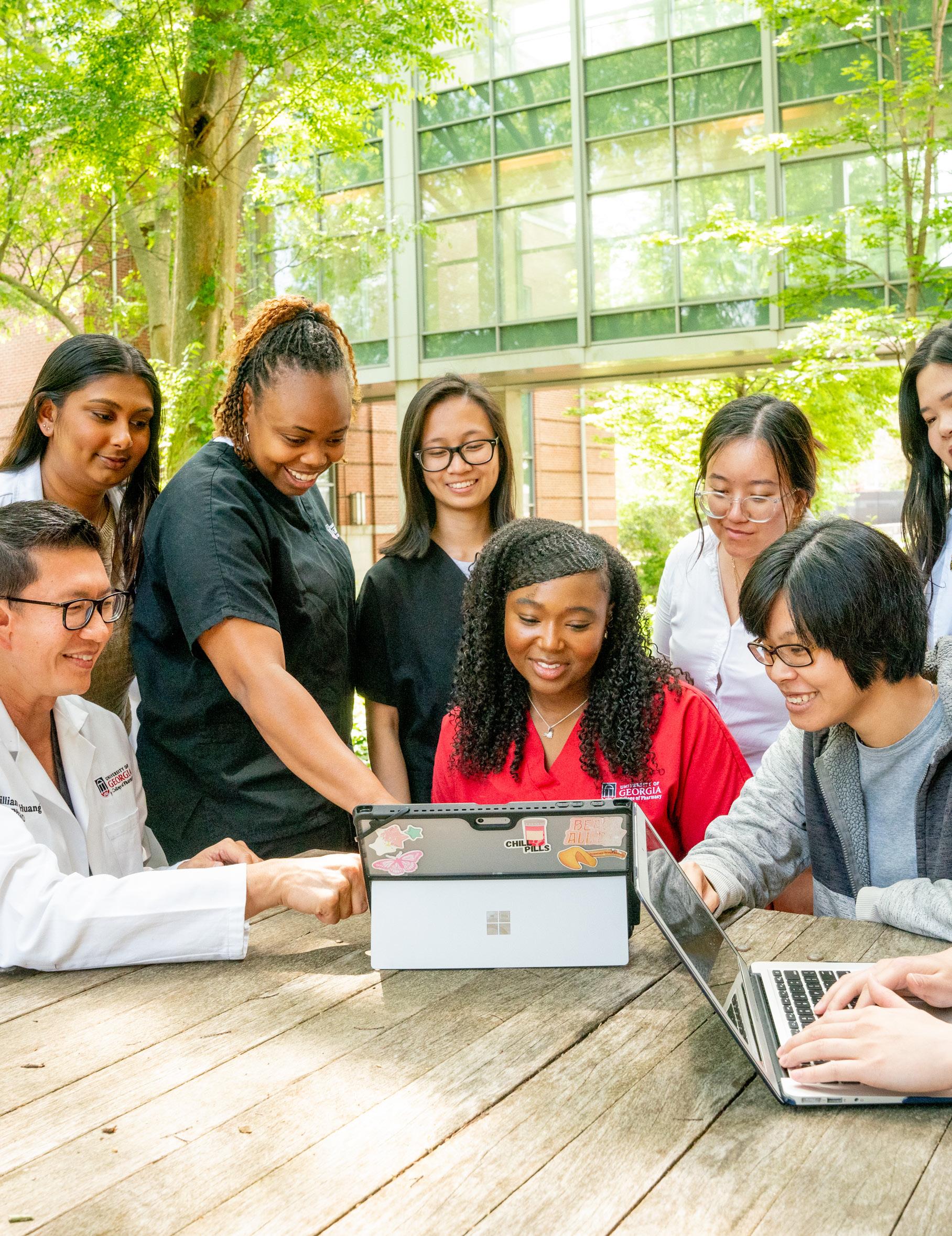
From Farms to Pharmacies
Students Deliver Healthcare to Georgia’s Migrant Workers
For three decades, the Farm Worker Family Health Program (FWFHP) has made a profound impact in rural southwest Georgia. The two-week volunteer service experience, held annually in June, brings together undergraduate and graduate students from interdisciplinary healthcare programs across the state to provide essential healthcare services to migrant farmworkers.
In the peak of summer growing season, farmers across Georgia employ hundreds of temporary workers to pick crops and package them for shipping. Migrant farmworkers make up an estimated 73% of agriculture workers in the United States today. Most of these men and women, along with their children, lack health insurance and are among the poorest workers in the nation. To bridge this healthcare gap, volunteer healthcare workers deliver community-based aid where it is most needed and where the population is most accessible: in the fields, camps, and school settings.
Students enrolled in pharmacy, nursing, physical therapy, dental hygiene, and psychology programs at colleges and universities across the state, including the UGA College of Pharmacy, collaborate interprofessionally to address primary healthcare concerns of the migrant families. The southwest Georgia area is extremely underserved by healthcare providers, and for some of the participants in the program, this is the only time they are able to receive free healthcare.
In turn, the FWFHP provides an invaluable opportunity for students to gain clinical experience while fostering cultural understanding and empathy. “The Farm Worker Family Health Program is a wonderful professional development opportunity for PharmD students. Participants gain experience working as part of an interdisciplinary healthcare team, which is vital to their success as a future healthcare provider. But participants also gain necessary competence in cultural sensitivity and leadership by serving as advocates for a typically underserved population,” added Danielle Vitale, Director of Admissions and Career Development. Dr. Trina von Waldner, retired CoP Director of Continuing Professional Development and Outreach, initiated the College of Pharmacy’s participation in the FWFHP program several years ago, and continues to participate, even in retirement.
A typical day for a UGA pharmacy student begins in the morning at a local elementary school serving the children of migrant families. Pharmacy students operate in a “chart room,” managing medical charts and records and escorting the children to screening
stations. A variety of stations are set up around the elementary school, including physical therapy, vitalsigns, hearing and vision, and dental hygiene. After volunteering at the school, students travel to local churches, where they are provided with lunches prepared by the community. During their free time in the afternoon, they relax or explore the local area.
In the evenings, CoP PharmDawgs, along with fellow healthcare students from other universities, head back to work, providing on-site medical services to migrant workers at the local farms. All donated medications are utilized by the pharmacy students to create a drug formulary. These medications are organized each evening and loaded for transportation to the scheduled farms, via caravan. Upon arrival at the farm, the students set up the pharmacy in a mobile unit.
Inside this pharmacy on wheels, some of the students type prescription directions in Spanish, the primary language of most of the migrant workers. At the production queue, students log, fill, and label each prescription received. Along with the pharmacy, the mobile unit includes an examination room where pharmacy students shadow nurse practitioner students on special cases, such as UTIs and basic wound care. Outside the mobile unit, students receive prescription order forms and act as drug information resources for nurse practitioner students and their faculty. Overthe-counter products are signed out, and patients are educated about their use. Volunteers work throughout the night until every patient receives their prescription and is counseled on the appropriate use of their medication.
“Each year, students come away with a greater respect for the food on their tables, because they are able to experience and see the amount of labor these migrant workers provide,” said Ann Manley, President of UGA’s National Hispanic Pharmacist Association (NHPA), the CoP organization that has been a leading force in the continuance of this program. “Usually,
UGA SCRIPT | ANNUAL REPORT 26 COMMUNITY AND COLLABORATION
“It is a privilege that we as volunteers and healthcare professionals are allowed to give back to a community that is the backbone of our daily lives.”
two pharmacy students participate in shadowing a migrant worker through the entire healthcare process each night. Having students go through the system allows them to speak to the patients and see how each station works. It is a privilege that we as volunteers and healthcare professionals are allowed to give back to a community that is the backbone of our daily lives.”
Dr. Joshua Caballero, a CoP faculty member who served as a volunteer preceptor for the students, stated, “This is an opportunity to give back to the Georgia community and engage with other health practitioners in an interprofessional setting.”
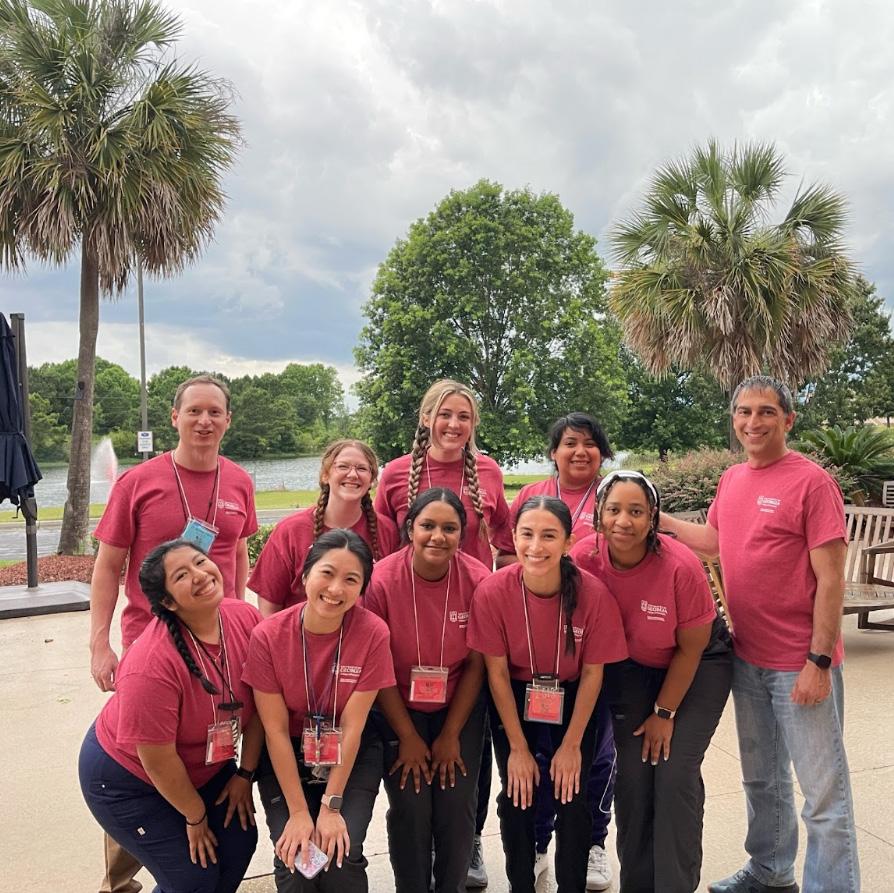
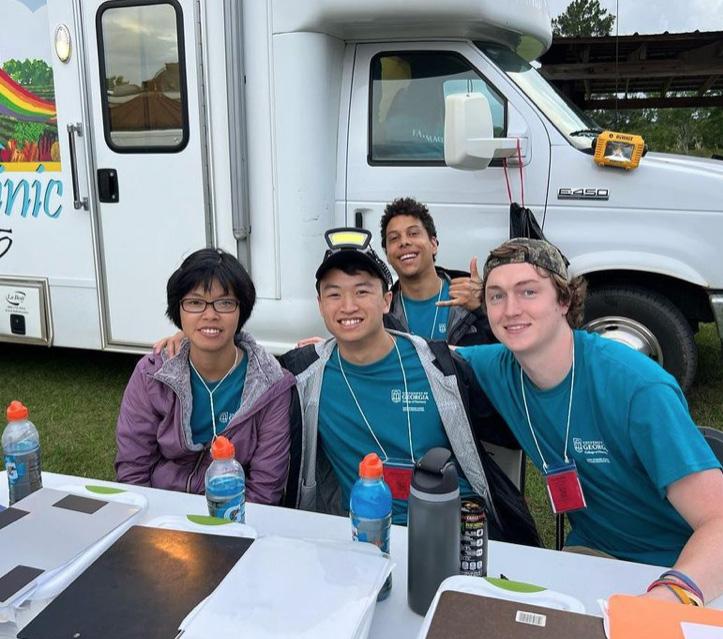
The FWFHP is a federally funded outreach that originated in 1993 to provide primary health care to farm workers and their families. Operating through the Ellenton Rural Health Clinic in Colquitt County, Ga., the FWFHP services Colquitt, Cook, Tift, and
Brooks counties. The program also serves as part of the clinical training programs of participating universities. In its three-decade history, the FWFHP has served more than 15,000 individuals.
This summer, the following National Hispanic Pharmacists Association (NHPA)-UGA members and other CoP students participated in the Farm Worker Family Health Program: Ananda Anderson, Mark Arthen, Kelly Bazel, Chris Cassara, Mathew Chin, Derrick Duarte, Linh La, Ann Manley, Sanika Mathew, James May, Stephanie Millan, Uyen Nguyen, Isis Salmon, Austin Seawright, Eboni Thomas, and Hannah Yonts. The UGA College of Pharmacy students were precepted by Dr. Caballero and Dr. William T. Huang, CoP faculty, as well as Emory’s pharmacology professor, Dr. Kenny Mueller, who also serves as a preceptor for UGA students’ advanced pharmacy practice experiences.
UGA SCRIPT | ANNUAL REPORT 27
Pictured left to right: Linh La, Matthew Chin, Mark Arthen, James May
People
The College of Pharmacy maximizes the abilities of our faculty and staff to transform the identity and culture of the College.
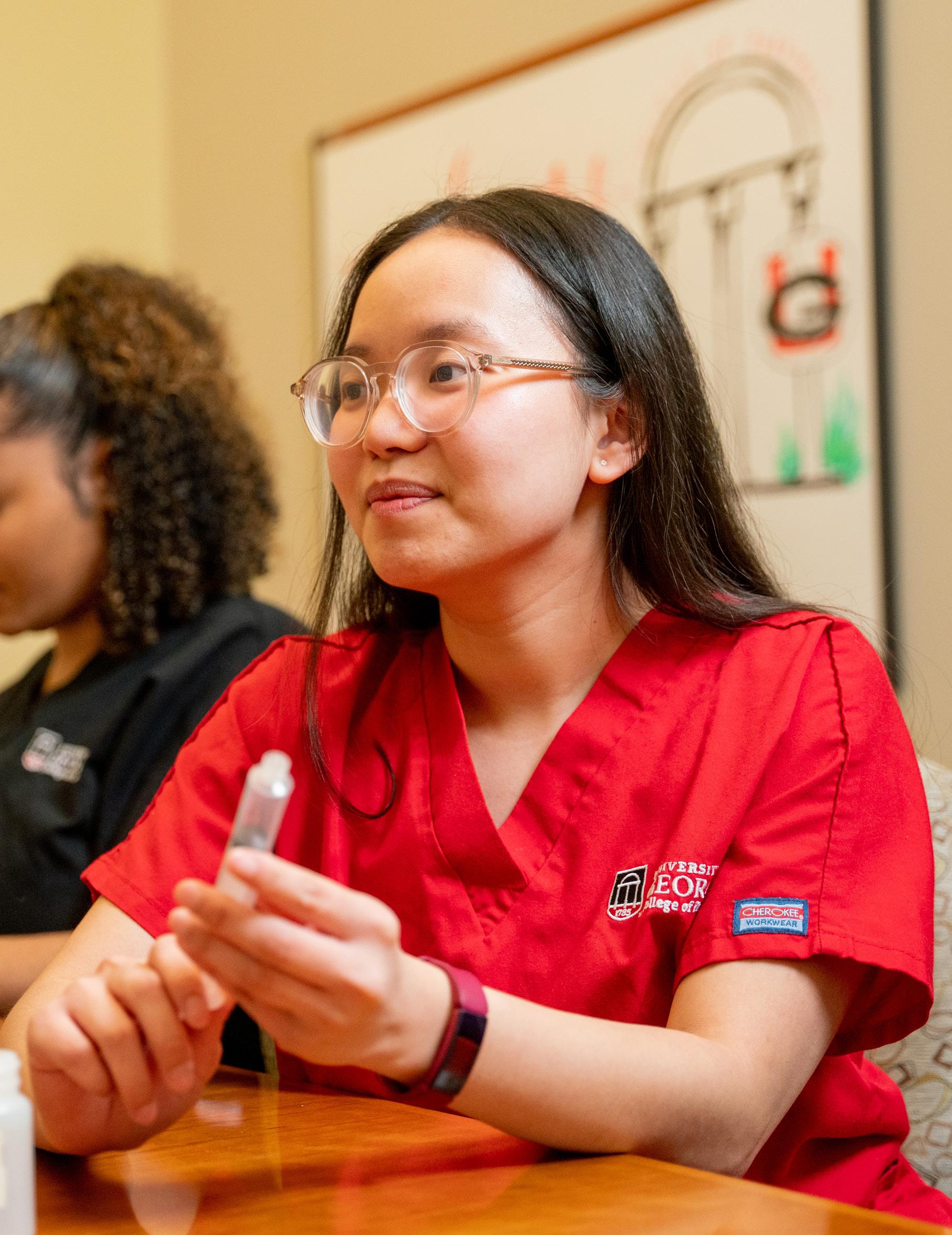
Dr. Andrew Darley, Director of Professional Education and Associate IPPE Director for Health Systems, graduated from the 19th cohort of the American Association of Colleges of Pharmacy Academic Leadership Fellowship Program after spending a year of immersion in leadership education and training. The program curriculum addressed valuable topics such as: how to lead change; conflict management; diversity, equity, and inclusion in leadership development; and advocacy.
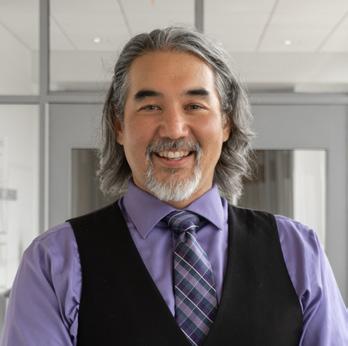
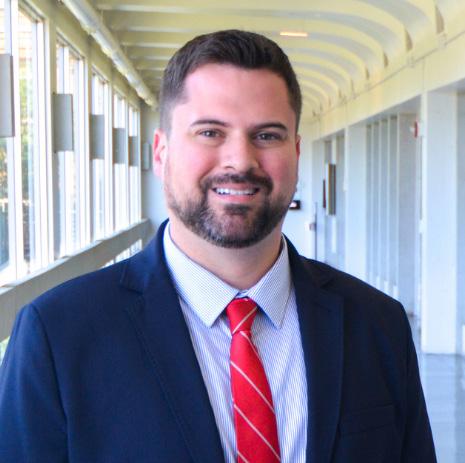
Dr. Mike Fulford, Assistant Dean for Institutional Effectiveness and Strategic Initiatives and Director of Faculty Affairs, is currently serving as Chair of the Special Interest Group (SIG) Leadership Cabinet for the American Association of Colleges of Pharmacy (AACP). He leads the 20 SIG Cabinet Leaders as they create meaningful professional development for pharmacy educators. He will also be a member of the leadership team that will plan AACP’s Artificial Intelligence Institute in Spring 2024.
Dr. Andrea Sikora, Clinical Associate Professor at the College’s extended campus in Augusta, has been elected as a fellow of the American College of Clinical Pharmacy and will be recognized during a special ceremony at the 2023 ACCP annual meeting in Dallas, Tx. later this fall. Fellow recognition is awarded to ACCP members who have demonstrated a sustained level of excellence in clinical pharmacy practice and/or research. After induction, fellows can be recognized by the initials “FCCP” as part of their title if they remain ACCP members. Dr. Sikora underwent a comprehensive and rigorous evaluation of her practice and research accomplishments.
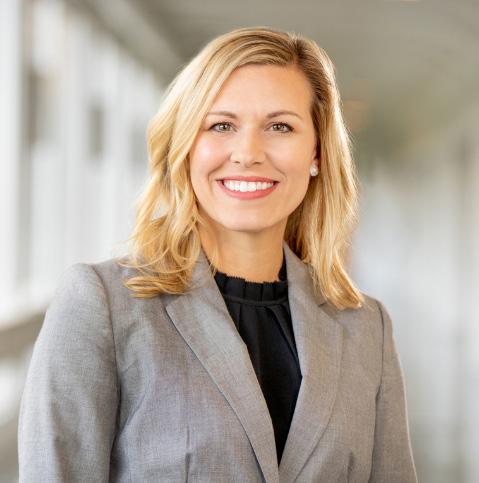
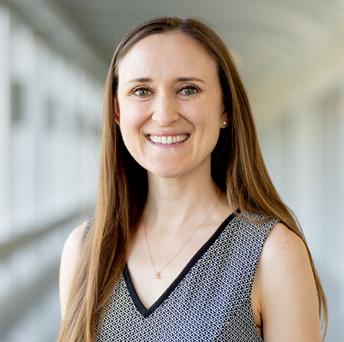
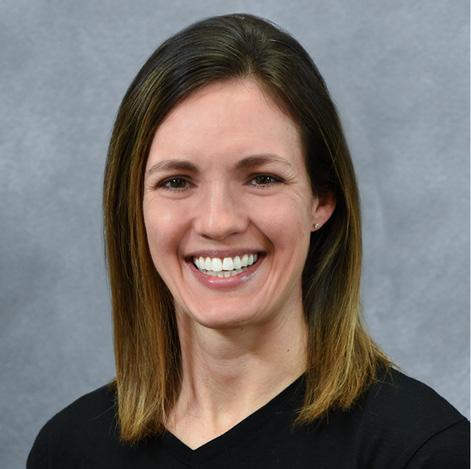
Dr. Susan Smith, Clinical Associate Professor, has collected quite a few accolades during the last several months. She is the incoming chair of the Critical Care Practice and Research Network for the American College of Clinical Pharmacy. In addition, she was selected for the 20th cohort of the American Association of Colleges of Pharmacy Academic Leadership Fellowship Program to spend a year in leadership education and training. Tailored for individuals who contribute to the advancement of pharmacy education, higher education, and the pharmacy profession, the program will provide Dr. Smith with an opportunity to expand networking relationships with peers and colleagues at other institutions.
Dr. Lindsey Welch, Senior Public Service Associate and Director of Advanced Pharmacy Practice Experiences in CoP’s Experience Programs, has been selected to participate in UGA’s Women’s Leadership Fellows Program for the 2023-2024 academic year. Fellows meet throughout the year with key university administrators to discuss the organization and functions of higher education as well as current issues and challenges. Specifically, fellows will have a chance to interact with one another and discuss approaches to problem solving in higher education administration. Dr. Welch has received numerous recognitions in the last year, including UGA Advisor of the Year.




Dr. Henry Young, head of the Clinical and Administrative Pharmacy Department and the Kroger Professor, has been accepted into the University System of Georgia (USG) Executive Leadership Institute (ELI). “The Board of Regents and Chancellor Sonny (Perdue) offer ELI as an investment in leadership development for recognized leadership performance and potential. Our hope is that your participation will yield many benefits to you, to your home institution, and to the USG,” said Dr. Wendy Jenkins, Associate Vice Chancellor for Leadership and Institutional Development, in her notification letter to Dr. Young. Along with this recognition, Dr. Young also was the recipient of this year’s UGA Public Service and Outreach Engaged Scholar Award, and in 2022, he received the prestigious 2022 President’s Fulfilling the Dream Award. Dr. Young is the first recipient of the President’s Fulfilling the Dream Award from the College. His work about health care disparities for men in rural Georgia was published in Georgia Magazine this summer.
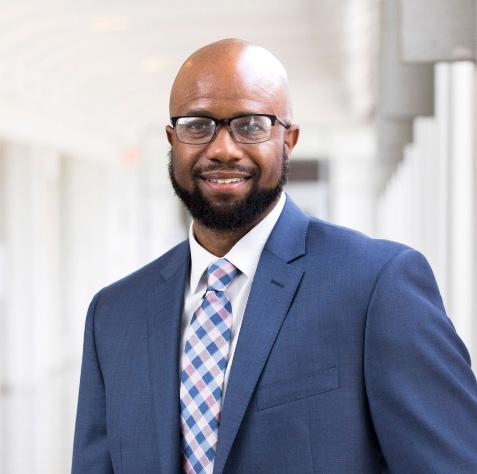
UGA SCRIPT | ANNUAL REPORT 29
PEOPLE FACULTY HIGHLIGHTS
PHARMACY WELCOMES NEW FACULTY TO COLLEGE
PHARMACEUTICAL AND BIOMEDICAL SCIENCES
















Yaguang Xi, MD, PhD, MBA, UGA Athletic Association Distinguished Professor in Pharmacy and Pharmaceutical Sciences, is the new Department Head for Pharmaceutical and Biomedical Sciences.
Remarked Dean Smith, “DR. XI’S RESEARCH ACCOMPLISHMENTS, EXTENSIVE TEACHING AND MENTORING EXPERIENCES, AND LEADERSHIP IN BUILDING RESEARCH COLLABORATIONS MAKE HIM IMMENSELY QUALIFIED FOR THIS ROLE. HIS VISION ALIGNS DIRECTLY WITH THE TEACHING FOCI OF PBS, AND I AM CERTAIN HE WILL GUIDE THE DEPARTMENT IN AN UPWARD TRAJECTORY.”
Originally from China, Dr. Xi previously served as the Amgen Professor of Oncology, Vice Chair for Research in the Department of Genetics, and Associate Director for Translational Research in the LSU-LCMC Cancer Center, at Louisiana State University Health Sciences Center in New Orleans, La.
Read the full story here
Blake Billmyre, PhD is a new assistant professor in Pharmaceutical and Biomedical Sciences, with joint appointment in the College of Veterinary Medicine’s Department of Infectious Diseases as part of the UGA Presidential Interdisciplinary Faculty Initiative in Data Science and Artificial Intelligence in the Precision One Health cluster.
Originally from Baltimore, Maryland, Dr. Billmyre completed his undergraduate degree at the University of Maryland in cell biology and molecular genetics. After completing a fellowship with the National Institute of Health, he moved to North Carolina to earn his PhD in genetics and genomics from Duke University, and afterward, he moved to Kansas City to complete a postdoc from the Stowers Institute for Medical Research. He is a member of the Genetics Society of America.

Bin Yi, PhD is a new associate research scientist in Pharmaceutical and Biomedical Sciences.

Dr. Yi served at LSU Health Sciences Center as an Assistant Professor in the Department of Genetics and a program member of Stanley S. Scott Cancer Center and Core Director of IVIS system in Louisiana Cancer Research Consortium.
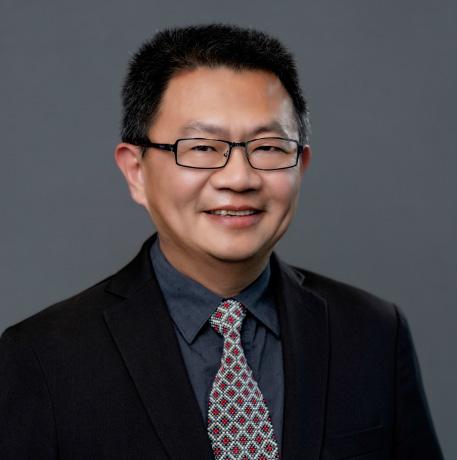
UGA SCRIPT | ANNUAL REPORT 30
UGA
Niying Li, PhD joins the Clinical and Administrative Pharmacy department as an Assistant Professor as part of the UGA Presidential Interdisciplinary Faculty Initiative in Data Science and Artificial Intelligence in the Precision One Health cluster.
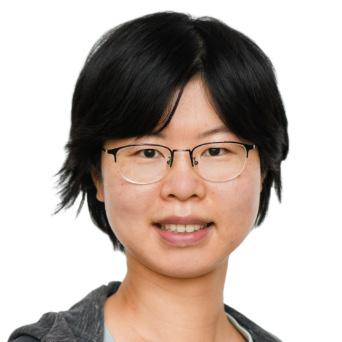
Dr. Li recently completed her postdoctoral fellowship at the University of Utah’s College of Pharmacy. She earned her PhD in Health Services Research in Pharmacy at the University of WisconsinMadison, a MSc in Health Systems and Public Policy from the University of Edinburgh in Scotland, and a BS in Pharmacy from Guangdong Pharmaceutical University in China.
CLINICAL AND ADMINISTRATIVE PHARMACY
Lorenzo Villa-Zapata, PhD is a new Assistant Professor in the Clinical and Administrative Pharmacy department as part of the UGA Presidential Interdisciplinary Faculty Initiative in Data Science and Artificial Intelligence in the Precision One Health cluster.
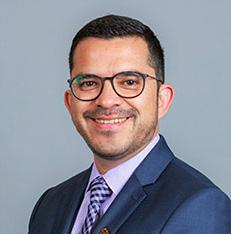
Joining us from Mercer University, Lorenzo has lived in multiple places throughout the United States but is originally from Concepción, Chile. Lorenzo earned his professional pharmacy degree from the Universidad de Concepción and his PhD in Pharmaceutical Economics, Policy and Outcomes from the University of Arizona, where he was recognized as a Fulbright fellow. He then completed a postdoctoral fellowship at the University of Colorado in Denver’s College of Pharmacy at the Center for Pharmaceutical Outcomes Research.
Matthew Schmidt, PhD joins us with a primary appointment in the College of Education as an Associate Professor of Learning, Design, and Technology as part of the UGA Presidential Interdisciplinary Faculty Initiative in Data Science and Artificial Intelligence in the Teaching and Learning cluster.
Dr. Schmidt’s work focuses on creating virtual reality interventions for individuals with autism and developing mHealth and eHealth solutions for individuals with disabilities and lifelong medical conditions, their families, and their providers. Before joining the University of Georgia, Dr. Schmidt held tenured positions at the University of Florida and the University of Cincinnati.

UGA SCRIPT | ANNUAL REPORT 31
PEOPLE
Pills to Policy
PharmDawgs Take on Washington, D.C.
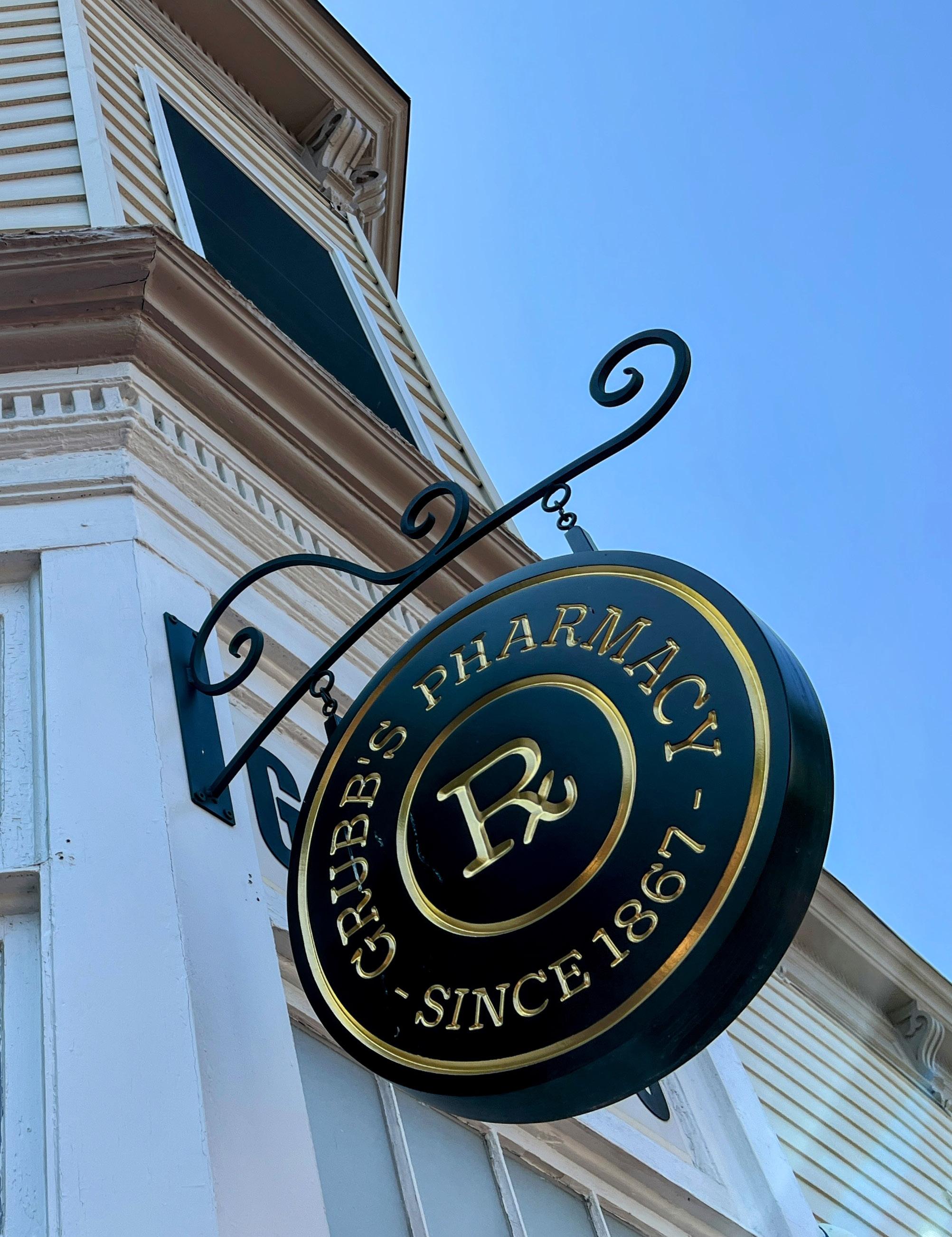
Justthree blocks away from the U.S. Capitol, Library of Congress, and the Supreme Court, a humble two-story building sits at the end of a long row of Victorian townhomes, quietly keeping the nation’s heart beating and healthy. Situated behind a quaint garden and fountain, Grubb’s Pharmacy is the sort of ordinary building most people visiting D.C. might walk past and not think twice about. That is, unless you’re Dr. Sarah Adam Bignault recent graduate, Class of 2023 President, and one of a handful of PharmDawgs who called Washington, D.C. home this summer. Sarah quickly learned to appreciate that Grubb’s is anything but ordinary as she began a year-long joint fellowship between the pharmacy and the National Community Pharmacists Association (NCPA).
Founded in 1867, Grubb’s Pharmacy is the oldest apothecary in the nation’s capital. Often filling hundreds of prescriptions daily, the pharmacy has dispensed millions of tablets and capsules to some of the country’s most important political figures and their staffs during its 150+ year history. It’s an exciting and fast-paced environment that Sarah, who currently works at Grubb’s full-time but will soon shift to part-time to allow for her responsibilities with NCPA, now gets to be a part of through her fellowship. “It’s an amazing chance to learn more about pharmacy management, leadership, and service integration and implementation. Grubb’s is constantly looking at how they can grow the services they offer while brainstorming new ways to do things —and I think that dynamic atmosphere is one of the most rewarding aspects of the fellowship,” said Sarah, reflecting on her first few weeks at Grubb’s.
“I’ve witnessed the ingenuity and forward-thinking care that independent pharmacies embody all around here. You see it in the non-sterile compounding lab upstairs; you see it in the sterile compounding room we’re developing to help patients better access the hormone treatments they need; you see it in the wooden shack outside our pharmacy’s back door,” Sarah said with a laugh, referring to the structure Grubb’s erected during the height of the pandemic to safely perform COVID-19 tests and other respiratory-illness-related services. In addition to vaccinating patients and delivering medications directly to patients’ front doors, the pharmacy also offers pre- and post-natal, travel medicine, and nutrition counseling services as part of their evergrowing portfolio. “The nutrition counseling that we’re making more robust here has been especially valuable to me and our patients. Nutrition was an intentional part of UGA’s curriculum, but I didn’t always get to practice what I learned in other pharmacy settings. It’s great that, in an independent pharmacy, we have the flexibility to be able to bring that value-added part of our education directly to
our patients,” notes Sarah, adding, “It’s another opportunity to demonstrate just how valuable pharmacists really are to their communities.”
That value is precisely what students such as Roswell Cole, P3, and Bryan Gomez, P2, are helping Congress to recognize. Self-described policy nerds, both recently completed summer internships on Capitol Hill, just steps away from Grubb’s. Focused on drug policy to address the flow of illegal substances across the country’s southern border, Cole spent the summer in Senator Marsha Blackburn’s (R-TN) office, where he saw the versatility of his PharmD knowledge.
“Our pharmacy education prepares us to responsibly dispense opioids—including fentanyl—and it’s rewarding to use this knowledge to communicate the dangers of opioids to lawmakers and their staff. As our nation addresses the various crises at the southern border, pharmacy professionals have an opportunity to serve in a unique way. I was proud to research these issues and assist the Senator in serving the people of Tennessee, and even more so to continue in this role through the coming year,” shared Cole, who also is pursuing a Master’s in Public Health (MPH) degree alongside his PharmD. “I couldn’t agree more— my pharmacy knowledge was foundational this summer and highlights the value pharmacists can bring to any environment,” concurred Gomez, who followed in Cole’s footsteps by working as Representative Buddy Carter’s (R-GA) Pharmacy Fellow this summer, an opportunity afforded to one rising P2 every year through a unique partnership between the UGA College of Pharmacy and Carter’s office. “I got to work on everything from drafting legislation for improvements to naloxone accessibility in public settings to writing comments to FDA on their recently proposed rule to standardize patient medication information,” explained Gomez. For him, the fellowship was an opportunity to have a real impact on the profession while doing good by his RxDAWGS commitment and pledge to “...being an agent of change.” “We talk about issues such as PBM regulation and provider status all the time in classes and org meetings, but I never thought I’d get the chance to work directly with an office advocating so strongly for pharmacists and patients on those issues. There’s a real sense that we’re going to make significant progress on PBM accountability and affordable drug pricing this session, and I’m glad that I was able to play a role in that, no matter how small.”
Gomez and Cole weren’t alone on the Hill this summer, though. “I have to say, it was surprising to run into PharmDawgs everywhere up here,” says Tonisha Gaitor, P3 and MBA degree candidate, who bumped into Gomez and Dr. Parth Patel, ‘23, during a congressional briefing on the Equitable Community

UGA SCRIPT | ANNUAL REPORT 33
PEOPLE
Access to Pharmacist Services Act. Gaitor recently concluded an internship with the Pharmacy Quality Alliance (PQA), which unites more than 250 member organizations in their mission to improve medication safety, adherence, and appropriate use.
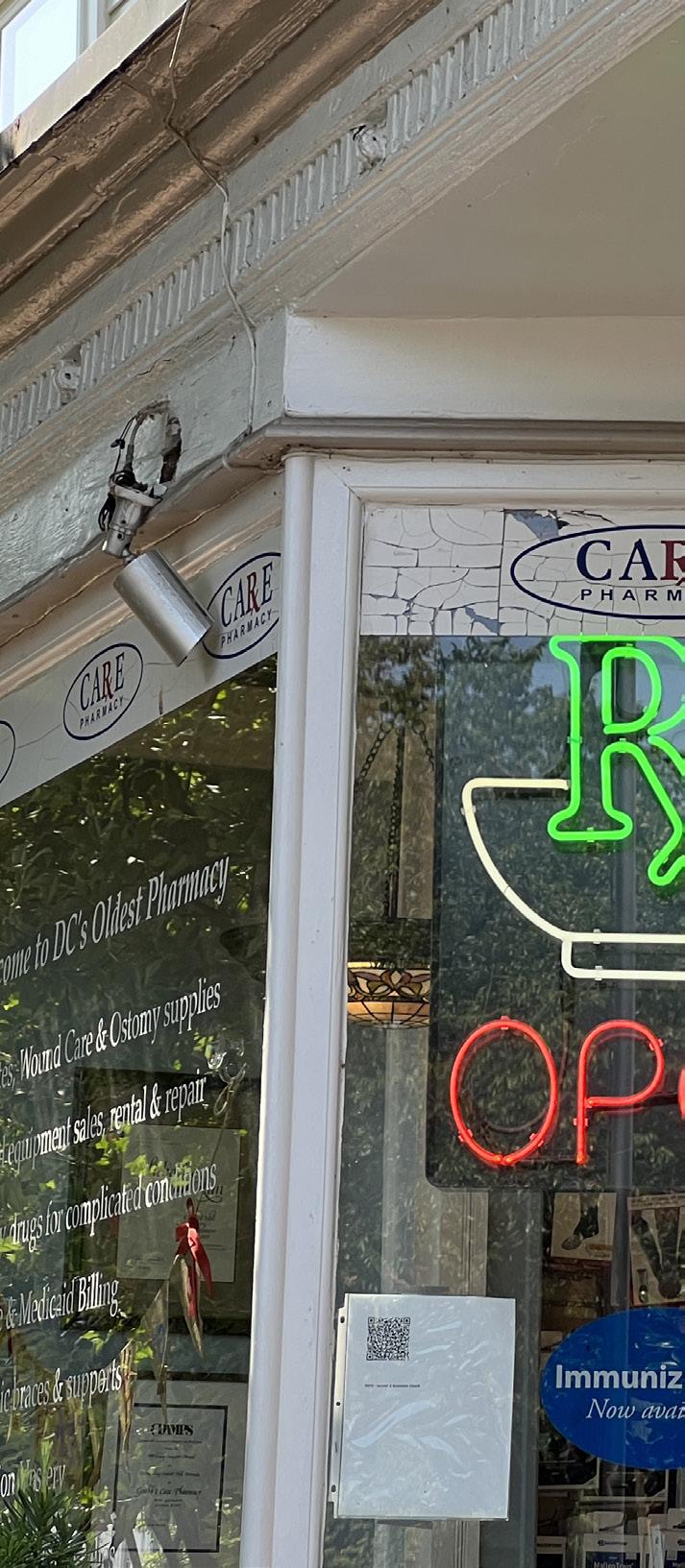
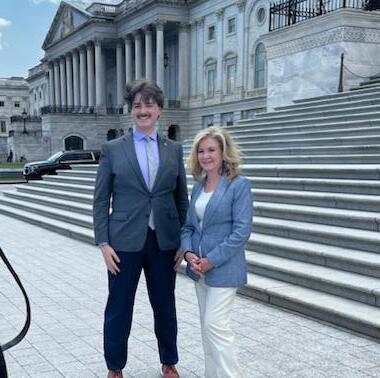
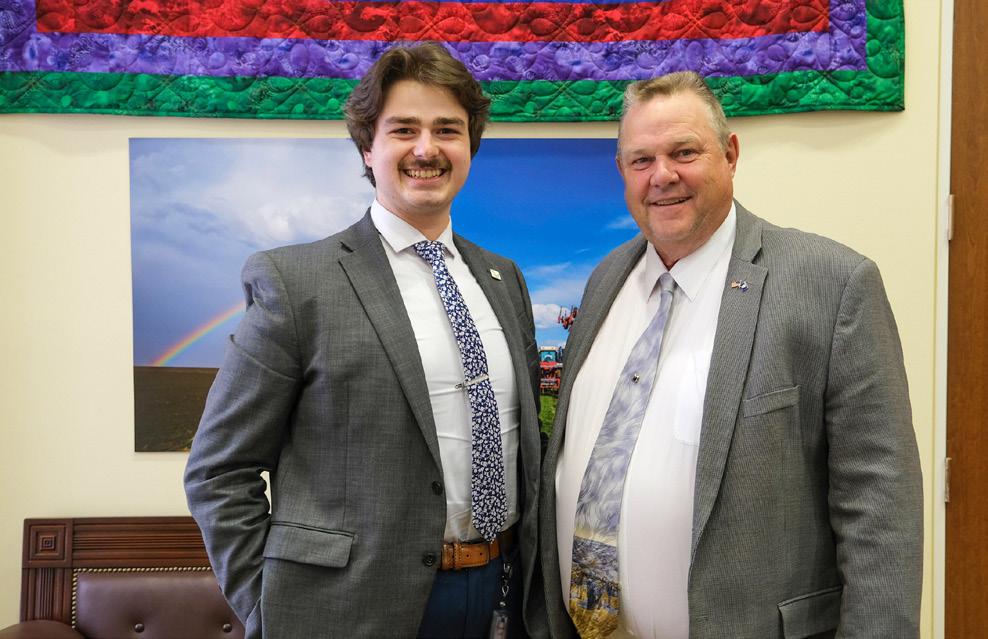
Passionate about the unique role pharmacists have in leading quality-related initiatives at a systems level, Gaitor was particularly excited to contribute to the PQA’s upcoming third edition of their publicaccess Social Determinants of Health (SDOH) Resource Guide, which provides organizations concrete and actionable intervention, screening, and referral tools to help address SDOH barriers that limit patient access to healthcare. “I personally focused on food and nutrition insecurity and engaged in outreach with member organizations to research new pharmacy-driven solutions to the issue,” she explained, adding, “I also got to propose new benefits for members, write blog posts for the non-profit, and expand member engagement efforts. The internship has definitely reinforced my interest in non-traditional pharmacy careers.”
Gaitor’s transformative experience with the alliance almost perfectly mirrors that of Dr. Kyra Leonard, ‘23, who rotated with PQA in her final year of pharmacy school during a virtual APPE experience. Now, she works as the organization’s Executive Fellow and similarly contributes to their SDOH guide, among many other responsibilities. “I’m most excited to start precepting pharmacy students this September and share with them the importance of quality stewards like PQA and why addressing SDOHs is so vitally important to elevating healthcare quality,” said Leonard. “This is the sort of experience that changes your perspective as a healthcare provider, and I can’t wait to help precept and transform the next generation of pharmacists, opening their eyes to the possibilities that exist in non-traditional career pathways.”
Across the city, Dr. Patel—who spends his Tuesdays and Thursdays at the headquarters of the American Pharmacists Association (APhA), just steps away from the Lincoln Memorial—shared that “...non-traditional
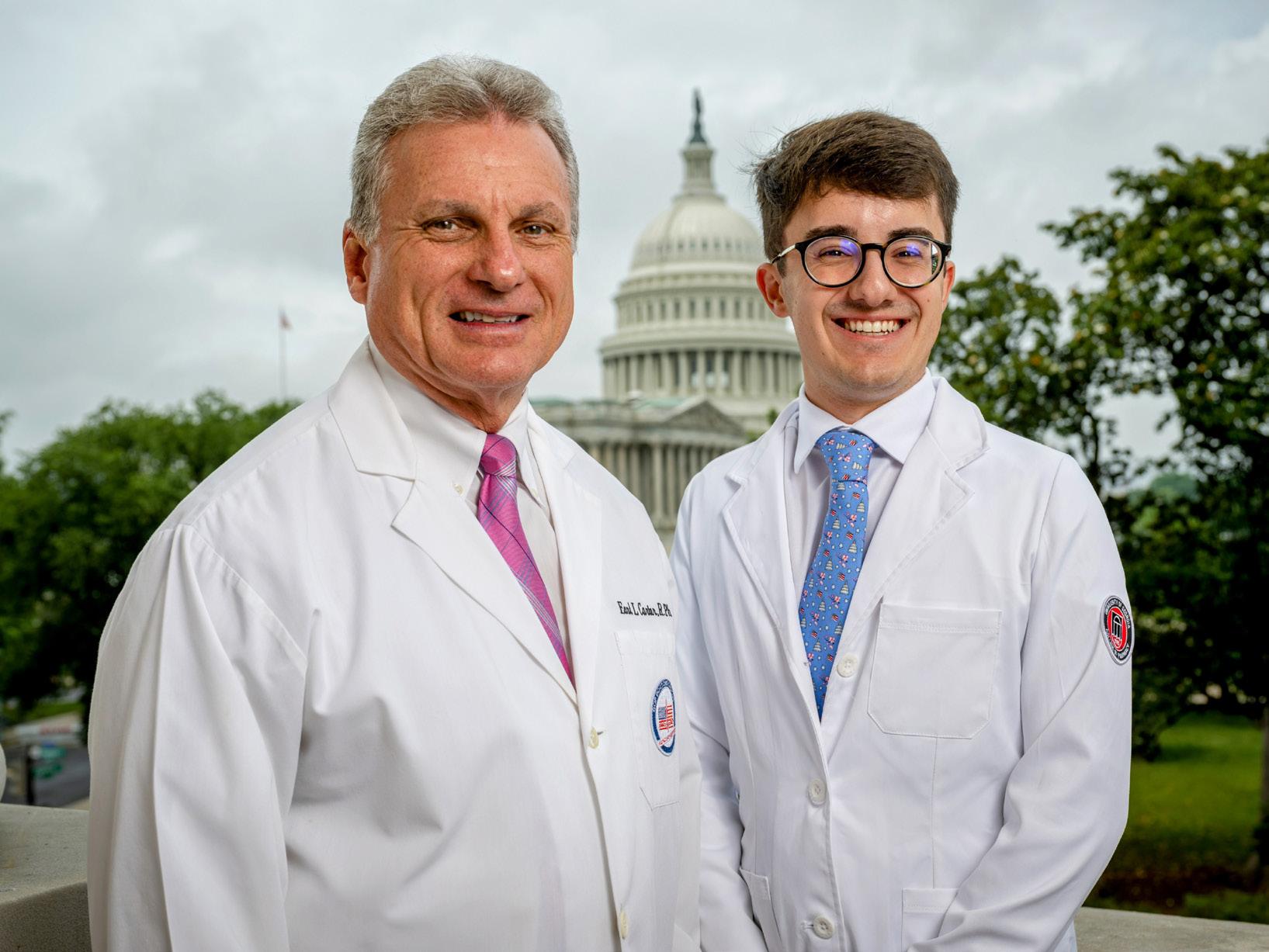
UGA SCRIPT | ANNUAL REPORT 34
Top left: On the balcony of the Cannon House Office Building, Bryan Gomez and Rep. Buddy Carter—one of only two pharmacists in Congress—show off their pharmacy pride.
Bottom left: Roswell Cole meets Senator John Tester (D-MT), who is championing PBM and rural pharmacy issues in the Senate.
PEOPLE
Bottom right: Roswell Cole and Senator Marsha Blackburn (R-TN).
pharmacy careers are something I’m starting to learn a lot about.” A current Executive Resident with APhA, Dr. Patel is continuing to explore association management after being heavily involved in regional leadership with the Student National Pharmaceutical Association (SNPhA) throughout pharmacy school. In his new role, he works with the Board of Pharmacy Specialties, learning about project management, continuing education for pharmacists, and the logistics and operations behind making a certification agency run.
“I’m still figuring out what career I might want in the long-term, but I couldn’t be happier to be in D.C. for the next year. Opportunities are everywhere; the networking culture is strong; I’m learning about new pharmacy organizations and pressing policy topics every day; and I’m also constantly meeting new faces. It’s the perfect place for me right now,” Patel said with a satisfied grin. “Oh! And my community is never far,” he added with a wink.
And he’s right. When PharmDawgs can—and do—work all around the country, it’s intriguing how serendipity seems to keep the college connected and close. “When I was in school, I was friends and a fellow class officer with Sarah,” Patel added. “It’s funny how, despite moving nearly 600 miles from Athens after graduation, we’ve both ended up in the same city, just three miles away from each other. I guess that’s just what happens when a city needs pills and policy,” Parth joked. “You get highly skilled, versatile, UGA-trained pharmacists—who are making a difference—everywhere.”
The DC area is home to approximately 90 PharmDawgs working in various pharmacy-related fields including:
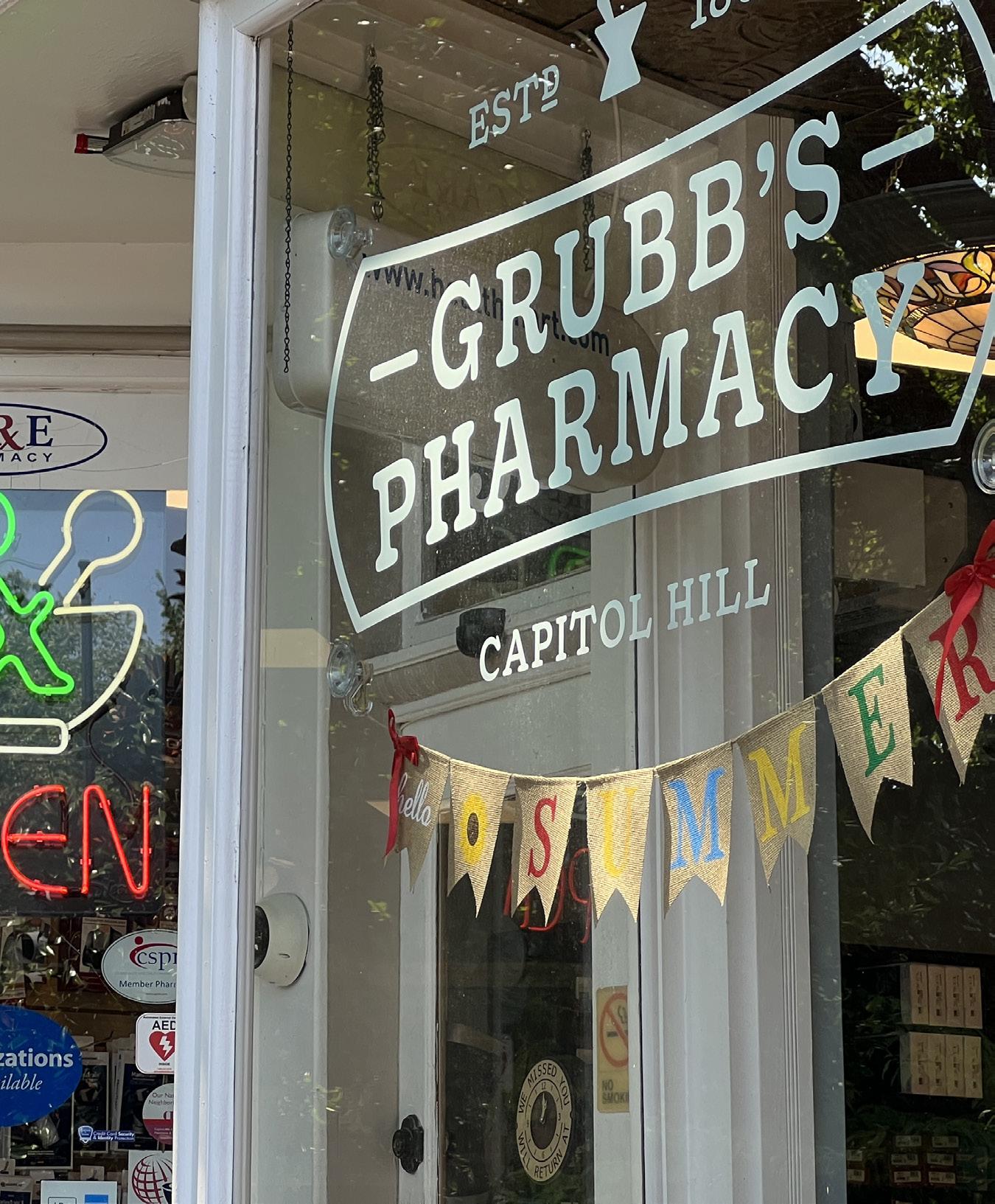
John Coburn, BSPH ‘68, FDA - Sr. Regulatory Advisor
Elizabeth Echols, PharmD ‘23, NACDS - Executive Fellow
Alexa Mader, PharmD ‘18, Sibley Memorial HospitalClinical Trials Investigational Pharmacist
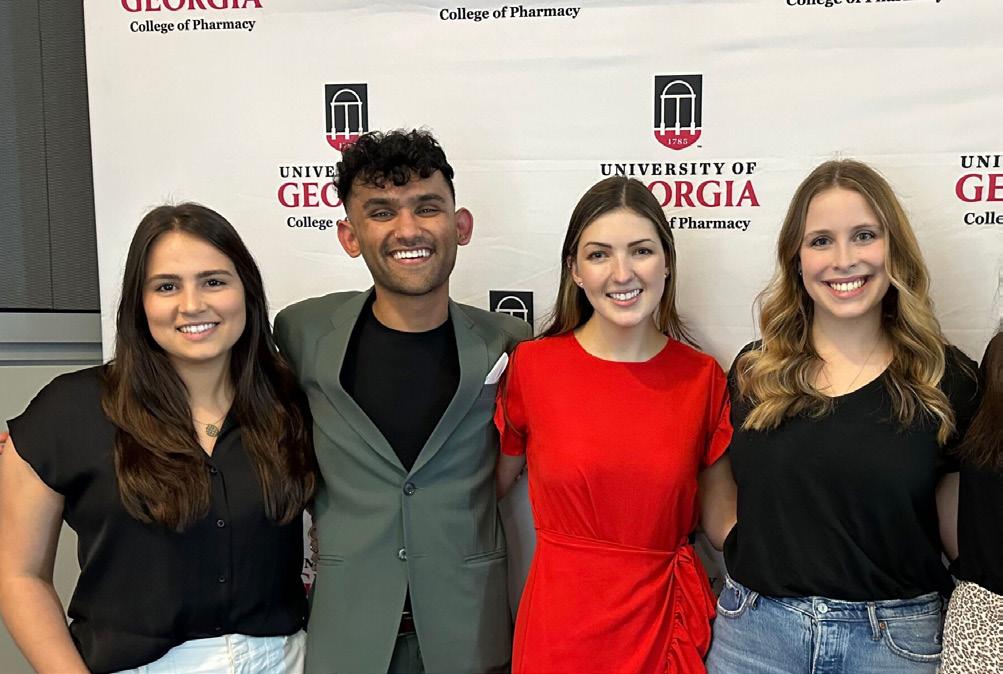
Carlie Traylor, PharmD ‘14, NCPA - Associate Director of Strategic Initiatives

UGA SCRIPT | ANNUAL REPORT 35
Top right: Oliver Valdez - Pharmacy Quality Alliance Executive Fellow, Dr. Kyra Leonard ‘23- Pharmacy Quality Alliance Executive Fellow, Tonisha Gaitor - Pharmacy Quality Alliance Executive Intern, Micah Cost - Pharmacy Quality Alliance Chief Executive Officer
PEOPLE
Bottom right: Dr. Parth Patel ‘23 and Dr. Sarah Adam Bignault ‘23 (center)
LEADING WITH PURPOSE
DSAC’s Vision for Inclusive Excellence
Within the UGA College of Pharmacy, there is a dedicated community of student leaders joined under the banner of the Dean’s Student Advisory Council (DSAC). As the governing body of approved student organizations within the College of Pharmacy, DSAC assures that unity and cooperation are at the forefront of their endeavors. Through their collaborative efforts, DSAC creates a vibrant community in which students from all walks of life can find their place at the college.
The council is guided by its overarching mission to serve as a liaison between the diverse extracurricular interests of the student body and the faculty, staff, and surrounding UGA community. Currently, DSAC is composed of leaders from 22 student organizations boasting a variety of student interests, including the recently founded Asian Pharmacist Student Organization. Each organization is served, on average, by two faculty advisors from the college.
DSAC takes pride in keeping students and faculty updated with the latest organization events, meetings, and fundraising opportunities on a weekly basis. Trey Fulford, a P3 from Valdosta, Ga., who serves as the current chair of DSAC, shared insight into how the organization works to engage students. “DSAC coordinates with a wide variety of student organizations representing a diverse set of interests, including religious affiliations, minority populations, and even specific disease states. By holding collaborative events between these organizations and the surrounding community, DSAC is intent on maintaining the open atmosphere within the College of Pharmacy.”
Fulford’s executive team includes Mark Arthen, a P3 from Kennesaw, who serves as the vice chair, and Tiffany Long, a P3 from Jonesboro, who is DSAC’s secretary.
Additionally, the leaders of DSAC play a crucial role in bridging the gap between the diverse interests of the student body and the academic community. One of DSAC’s primary objectives this year is to serve as a resource for the Dean and other key leaders to enhance the College of Pharmacy’s programs and the pharmacy profession as a whole. In addition, the organization will act as a mediator of disputes and address conflicts between DSAC organizations and external entities with a focus on resolution and understanding.
By bridging the gap between students and faculty, embracing diversity, and fostering a sense of belonging, DSAC continues to be a driving force in the College of Pharmacy, empowering PharmDawgs to thrive and make a lasting impact on their academic and professional journey.
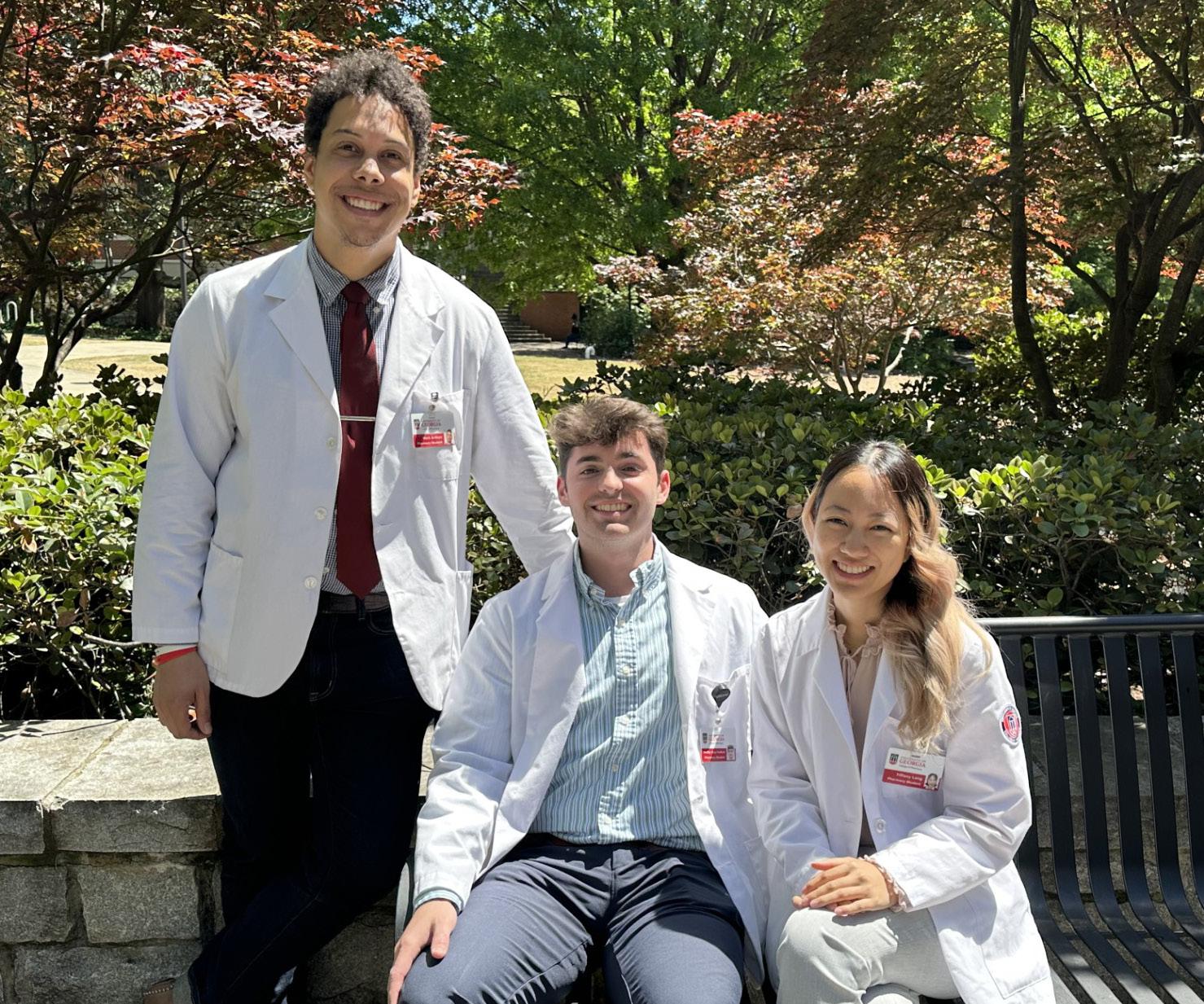
“We are excited to continue the professional and interactive role of DSAC this year and foster developing relationships between student leaders and members of the PharmDawg community,” Fulford added.
American Association of Pharmaceutical Scientists (AAPS), Academy of Managed Care Pharmacy (AMCP), Academy of Student Pharmacists (ASP), Asian Pharmacy Student Organization (ASPO), Black Student Pharmacist Organization (BSPO), Christian Pharmacists Fellowship International (CPFI), College of Psychiatric and Neurologic Pharmacists (CPNP), Georgia Society of Health-System Pharmacists (GSHP), Industry Pharmacists Organization (IPhO), Kappa Psi (KY), Lambda Kappa Sigma (LKS), National Community Pharmacists Association (NCPA), National Hispanic Pharmacists Association (NHPA), Pharmaceutical and Biomedical Student Organization (PBSO), Phi Delta Chi (PDC), Phi Lambda Sigma (PLS), Rho Chi Society (Rho Chi), RxPups Student Society of Pediatric Advocates (SSPA), Student College of Clinical Pharmacy (SCCP), Student Pharmacist Diabetes Organization (SPDO), Student National Pharmaceutical Association (SNPhA), Student Oncological Advocates in Pharmacy (SOAP)
UGA SCRIPT | ANNUAL REPORT 36
PEOPLE
From left to right: Mark Arthen, Trey Fulford, and Tiffany Long
DSAC ORGANIZATIONS
Development & Alumni Relations
The College of Pharmacy greatly values its alumni, retirees, and supporters throughout Georgia and beyond. The College engages in reaching its potential through philanthropic support and in supporting our alumni and friends to maintain lifelong connections to the University of Georgia and the College.

It’s not often you hear about a pharmacist providing expert commentary on a national stage. Once you realize it’s Dr. Philip Almeter ‘09, however, it makes perfect sense.
Almeter has encountered a few obstacles along life’s journey. Yet, he has been relentless in his pursuit of excellence in his profession. His proven leadership and administrative skills as Chief Pharmacy Officer at the University of Kentucky Healthcare in Lexington is leaving an indelible mark on the practice of pharmacy. As a shining example, Almeter was chosen to testify before a U.S. Senate Committee on the reasons behind drug price increases as well as discuss pharmaceutical supply chain and quality issues with the White House Office of Science and Technology Policy earlier this year.
There are other illustrations of his leadership acumen. Along with his UK Healthcare role, Almeter is an adjunct faculty member in the University of Kentucky College of Pharmacy; an active member of American Society of Health System Pharmacists; and the chair of the Kentucky Hospital Association’s Pharmacy Committee, just to name a few.
However, the path Almeter traveled to complete his training was a bit rocky. He started out as a chemistry major at Augusta University, despite being unsure about a professional goal. After a conversation with a friend, he began to consider pharmacy. To test the waters, he asked alumnus Barry Bryant ’81, owner of Barney’s Pharmacy in Augusta, for any kind of job in his business. His two weeks of persistent requests finally paid off; Bryant hired him as a cashier. The opportunity allowed him to learn more about the
field and UGA’s College of Pharmacy, especially from another alumnus and mentor, Dr. David Pope ’04. The Augusta native then set his sights on pharmacy school in Athens.
Despite completing all the prerequisites and being interviewed, Almeter was not accepted to UGA College of Pharmacy on his first application. Pivoting, he worked to complete his biology degree at Augusta University and applied again. His second attempt proved to be fruitful; after interviewing with Ken Duke ’77, retired CoP faculty member; Dr. Marjorie Shaw Phillips, (then) pharmacy manager for the Research and Residency Program at Augusta University Health and CoP adjunct faculty member; and Dr. Joe DiPiro, the current associate vice president for Health Sciences at Virginia Commonwealth and a former professor at the UGA College of Pharmacy, Almeter was admitted. “I am so glad they took a chance on me during my second round,” said Almeter. “When I run into these three, I like to remind them of the gratitude I have for allowing me admission into this career.”

On many fronts, Almeter’s first semester was memorable. He quickly became involved in student organizations, including Kappa Psi and the American Pharmacy Association - Academy of Student Pharmacists. He developed lasting friendships with fellow classmates, many of whom he stays in touch with today. Most importantly, he met the love of his life, Dr. Heidi Kirk ’09, one month after arriving in Athens.
However, the beginning of his second semester took an unexpected turn. While driving back from Augusta to Athens for the start of classes, Almeter’s car veered
UGA SCRIPT | ANNUAL REPORT 38
DR. PHILIP ALMETER IS ‘RELENTLESS’ IN PURSUIT OF EXCELLENCE
off the road and rolled several times and landed in a ditch. He spent over a week in ICU at (Piedmont) Athens Regional Medical Center with a severe head injury and was later transferred home for physical and occupational therapy. Remember reading the word “relentless” earlier in this story to describe Almeter? Despite being told by his neurosurgeon to take a year off, the young P1 student was eager to return to pharmacy school as quickly as possible. He met with Dr. George Francisco, the College’s former associate dean, who walked the recovering student to the UGA’s Registrar Office to help him re-enroll. Dr. Francisco also worked with each of Almeter’s instructors to develop a strategy to catch him up, as he was three weeks behind in his classes. Along with Francisco’s efforts, Kirk, his new-found love and now a constant source of support, kept a second binder of notes and provided him with transportation. The work of “Team Almeter” paid off. By spring break, the first-year student was back on track. “I am a living testament to the amazing power of the College of Pharmacy’s faculty,” he said. “They were all committed to my recovery and success.”
As time progressed, Almeter’s interest was piqued by the work of pharmacists in hospital and healthcare settings. He spent his fourth year at the College’s extended campus in Augusta, where among other rotations, he worked in the Medical ICU at Augusta University. Dr. Trisha Branan ’06, currently a CoP clinical associate professor, was his preceptor, and she urged him to pursue a residency. Following graduation, he accepted a PGY1 residency at the University of Virginia Health System, where he completed a management rotation. “I saw a side of pharmacy I had never been exposed to before,” he explained. “I liked the ability to support front-line staff.”
To keep Almeter at UVA, Dr. Gary Johnson, the director of pharmacy, created a PGY2 residency in health system pharmacy administration where Almeter would be their first resident. Following his residency, he continued at UVA, managing supply chain for acute care operations.
A year later, he was recruited by the University of Kentucky HealthCare to work on acute care on a larger scale, as well as supply chain and business development. He served in evolving management and pharmacy operations roles and eventually became Chief Pharmacy Officer, the role he serves in today. Coincidentally, he worked closely with current College of Pharmacy Dean Kelly Smith ’92, 93 during her leadership tenure at the UK College of Pharmacy. “I always enjoyed collaborating with Kelly during our shared time at UK,” said Almeter. “She always was a source of positive energy and considered a role model by our students and residents.”
When asked about the rewarding and challenging aspects of his profession, Almeter commented, “I don’t
do much direct patient care, and at times, I feel like I’m missing something. However, I get a lot of satisfaction from the support I provide the pharmacy staff and team members who serve on the frontlines of patient care.”
He offered words of advice to PharmDawg students who are trying to determine their career path. “Explore every avenue you can as a student. I was convinced I wanted to work in critical care, but after my experience in administration, I took off on a new trajectory. The fourth year of pharmacy school can have an incredible influence on your career direction. Discover what you can, glean from rotations, and find the right role models to learn from. UGA’s faculty represent such a diverse background in areas of pharmacy practice. I spent many hours meeting with faculty to get a better idea of what I should do. Building relationships with faculty and being able to bounce ideas off them allowed me to explore a larger number of career paths as a student. To this day I still re-engage with them as a source of support and friendship. To that end, I would like to give special thanks to Dr. Trisha Branan ’06, Ken Duke ‘77, Dr. Robin Southwood, Dr. Phillip Greenspan, Dr. Rusty May, Dr. Dianne May ‘88, ‘90, Flynn Warren ‘70, and the late Dr. Henry Cobb ‘69, ‘80.”
The best part of Almeter’s story is saved for last. During their fourth year of pharmacy school, Almeter and Kirk were married at the UGA Catholic Center. “Heidi is my (s)hero,” he said. “I am only successful because of her love and commitment. She and our four children are everything.”
Their children range in ages 7-13. Besides spending time with family, Almeter enjoys the outdoors, coaching his children’s soccer teams, and woodworking. Of course, his parting words for readers–“Go Dawgs!”
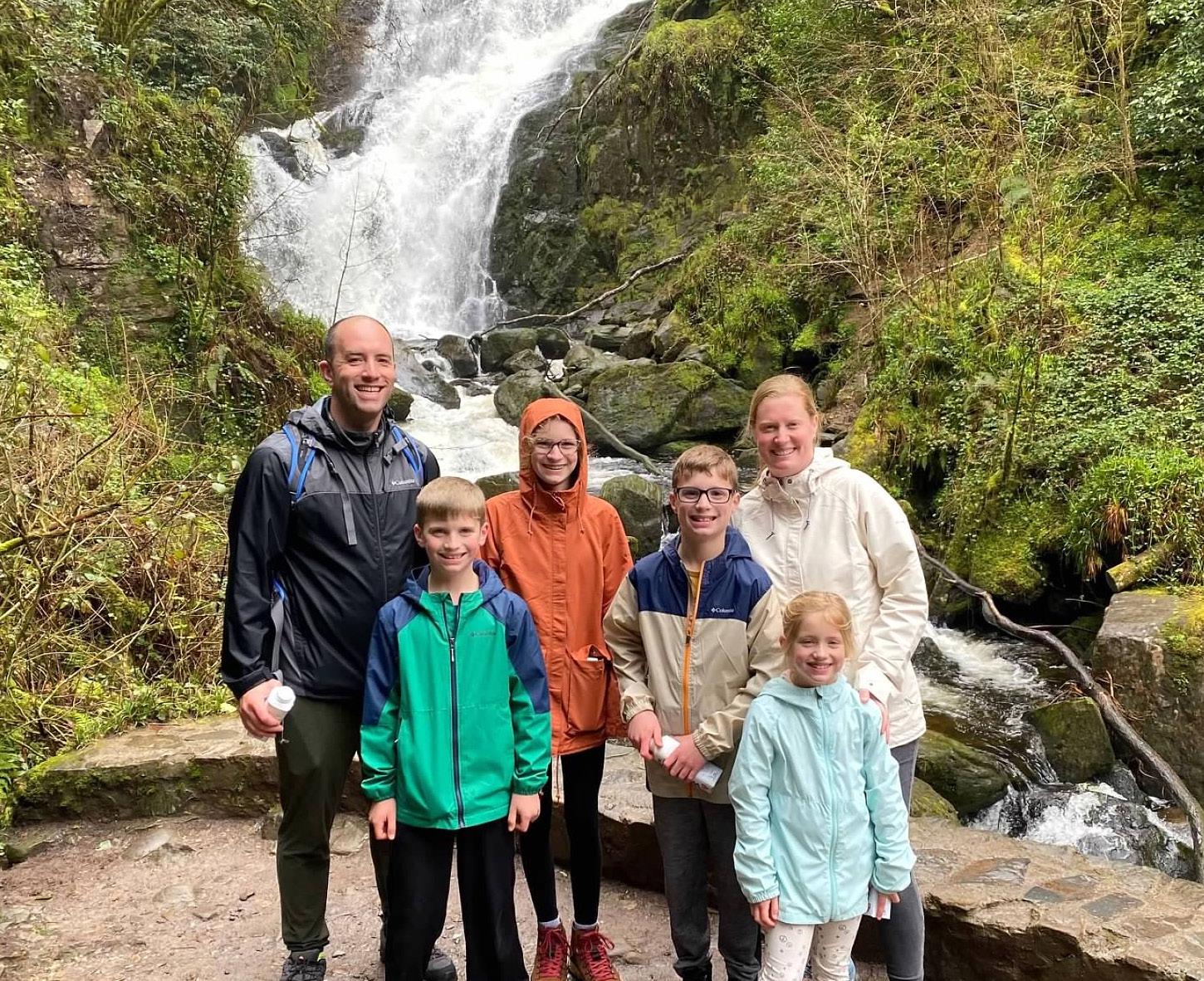
UGA SCRIPT | ANNUAL REPORT 39
DEVELOPMENT AND ALUMNI RELATIONS
From Struggles to Success Joe Ed Holt Gives Forward
Joe Ed Holt ‘92, a dedicated pharmacist and the recently elected president of the Georgia Pharmacy Association (GPhA), has a life story that has been a rollercoaster of struggles and successes. Yet, the moral of his tale is one he wants to share – the importance of giving forward.
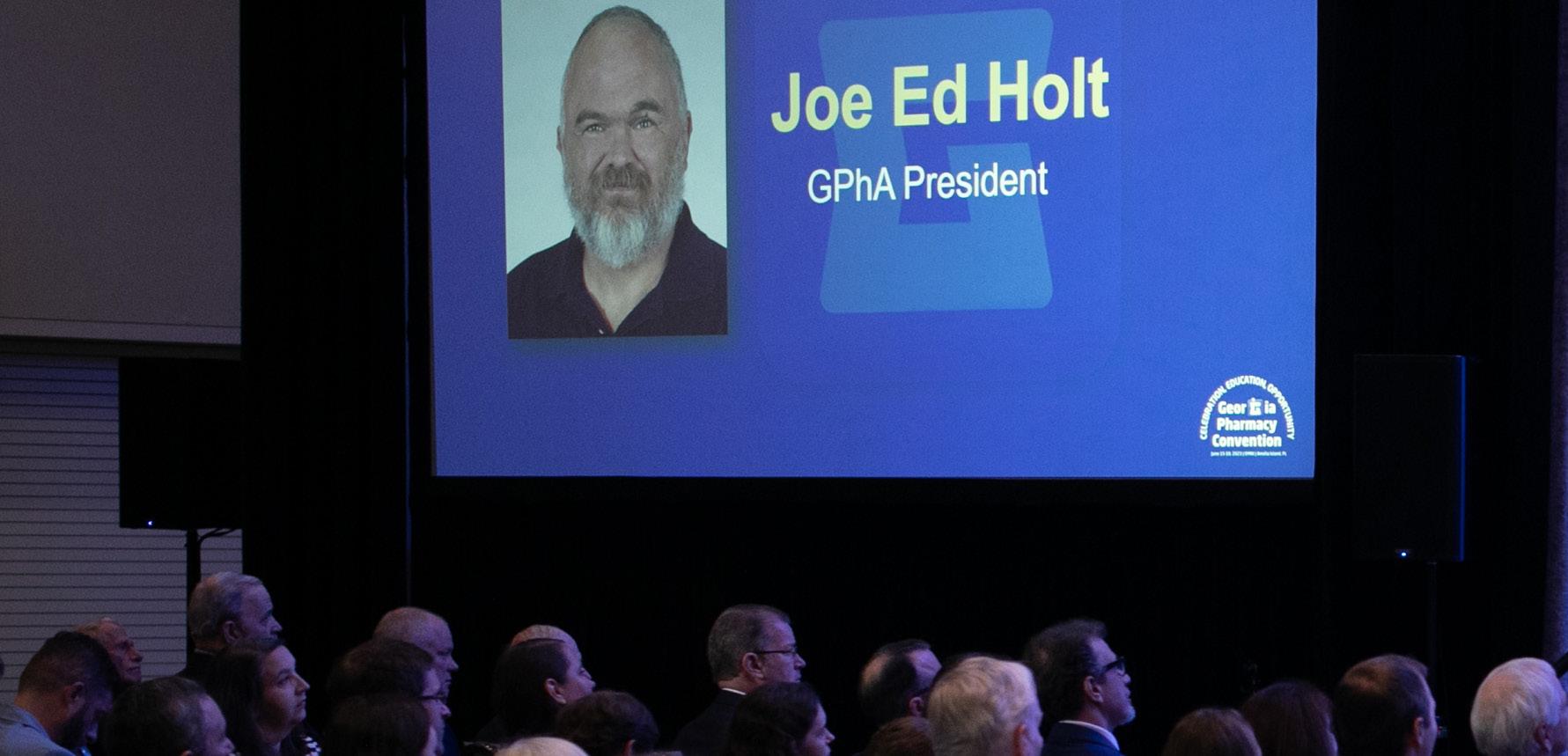
Hailing from what he calls “the metropolis” of Adel, Ga., Holt was inspired by his father, who transitioned from being a pharmacist to a physician. “I admired the way my dad always put patients first,” reflected Holt. “He was the last of his kind who routinely made house calls, and he took care of those he knew couldn’t pay. Even though I respected him greatly for what he did, I always wished I had more time with him. I decided at an early age that I wanted to do something in healthcare, but I also wanted a life away from the job. My dad always talked about pharmacists in the highest regard, and I determined that being one was my calling.”
Holt looked up to local pharmacists, such as Charles Moore ‘73, Van Rowan ‘57, Ralph Griffis ‘61, and Johnny Flowers ‘59, not only for their expertise but also for their genuine dedication to the community. “The community pharmacists who served our small town were great examples of the profession,” said Holt. “Not only were they great pharmacists, but they were great men who were heroes in my eyes because of how they cared for people. I knew I wanted to be like them.”
Choosing to attend the UGA College of Pharmacy was a natural decision for Holt, as his father had attended the same institution. “I grew up listening to stories of his time at UGA,” he said. “I knew at an early age it was UGA or bust for me!” During his studies, Holt developed a keen interest in mental health and neuropharmacology and became involved in various organizations, such as Kappa Psi and the student chapter of the American Pharmacists Association. Holt had nothing but praise for several faculty
members who became mentors during his time at UGA. “Joe Bill Dickerson ‘56 latched onto me when I first got there and was always available when I needed help. Ken Duke ‘77 was a great friend and role model, as was Flynn Warren ‘70,” he shared fondly.
However, his journey became rocky at UGA. “One of the uphill battles in my story is my recovery from addiction,” he said. “My disease really started to rear its ugly head while I was in pharmacy school. I was young and away from home for the first time. I really wanted to be accepted, and I thought alcohol was the key to being a part of the group. Flynn was one of the first people to recognize that I had a problem and really pushed me to go to treatment while I was in school. Of course, like all great addicts, I did not think I had a problem. I will always be grateful to him, though, for his insistence. He planted a seed that would eventually lead me to do the right thing and get help when I was ready.”
Holt’s career path took many unexpected turns. “To quote the great bard, Jerry Garcia, ‘What a long, strange trip it’s been’,” Holt mused. After graduation, he ventured into community pharmacy, working at Barnes Drugs in Valdosta, Ga., Rite Aid in Adel, and Harvey’s Supermarket Pharmacy in Nashville, Ga. But his battle with alcohol addiction continued, and it started to affect his work. In desperation, he turned to hydrocodone. “I thought I would have more control over it. In no time, it had total control over me,” Holt said. On October 8, 2001, Holt was terminated from his job for stealing. “At home, pondering a life without drugs, I attempted suicide by overdose. This led me to being hospitalized in a local mental health facility.”
That’s when fate stepped in. “While I was in the hospital, (the late) Dr. Jim Bartling, who was a past president of the Georgia Pharmacy Association and a leader in GPhA’s PharmAssist (now PharmWell) program, came into my life and offered me help,
UGA SCRIPT | ANNUAL REPORT 40
assistance, and direction about my next steps towards recovery,” he said. “I eventually agreed to treatment and spent four months at Talbott Recovery Campus.” During his stay, he was introduced to Dr. Merrill Norton, a CoP clinical associate professor emeritus, who became his “recovery guru. ” Holt surrendered his pharmacy license upon entry to Talbott; he was eventually reinstated in October 2002.
Embracing a new path, Holt found his calling as a clinical consultant pharmacist with PruittHealth in Valdosta, a long-term skilled nursing and rehabilitation facility. “To see residents’ lives positively impacted by recommendations that I’ve made is one of the most rewarding aspects of my pharmacy career,” he commented. Holt served as a consultant for three years, and was later promoted to clinical manager for South Georgia and North Florida at PruittHealth. (Coincidentally, the founder of PruittHealth, the late Neil Little Pruitt, Sr. was a 1957 graduate of the College of Pharmacy, and the current Chair and CEO, Neil Little Pruitt, Jr. serves on the University System of Georgia Board of Regents, among other key state and national positions.)
the Georgia Pharmacy Association, which has a national reputation of being on the forefront of fighting for the pharmacists in the state and is the only state pharmacy organization that represents all practice settings. GPhA has led the charge for pharmacist and technician administered immunizations, anti-steering legislation, fair dispensing fees, and so much more. The second area is investing in students. Pharmacy school is a lot more expensive than when I first graced its halls, and students are encumbered with huge student debt that often limits where they can work when they graduate since they have to take the jobs that are higher paying. Helping fund scholarships or making gifts to the UGA College of Pharmacy will help offset the debt that these students are assuming and will allow them to practice in whatever setting they choose.”
Holt currently supports the UGA College of Pharmacy’s Enhancement Fund.
“As we look at the future of what pharmacy will one day be, I feel that it is up to us to make sure the profession stays strong and vibrant,” Holt concluded. “Any investment, even a small one, for a student is an investment into the future of the profession. Pharmacy has been very good to me, and I want to make sure that it continues to thrive.”

Holt’s experiences led him to adopt the value of giving forward. “There were so many people who helped me while I was struggling,” he explained. “The greatest way I can honor these individuals is to dedicate myself to ‘giving forward’ or helping others in need.”
He explained, “There are two areas that I see as positive investments in the profession. First, is membership in
Ken Duke, former clinical faculty member in Athens and assistant dean at the extended campus in Savannah, summed up his former student’s contributions. “Joe Ed was a compassionate student, always ‘all in’ in anything he pursued. It’s great to see his passion and abilities benefiting his patients, while sharing his leadership and energies to serve the profession.”
Holt’s journey and legacy will always be one of resilience, mentorship, and giving forward. As he continues to touch lives and make a difference, his story is a testament to the power of compassion and determination.
UGA SCRIPT | ANNUAL REPORT 41
“As we look at the future of what pharmacy will one day be, I feel that it is up to us to make sure the profession stays strong and vibrant.”
Alumni Accolades
The College of Pharmacy welcomed several alumni back to Athens for lunch with the P1 students at New Student Orientation. These committed PharmDawgs introduced themselves to the Class of 2027 and imparted wisdom on beginning their pharmacy journeys.
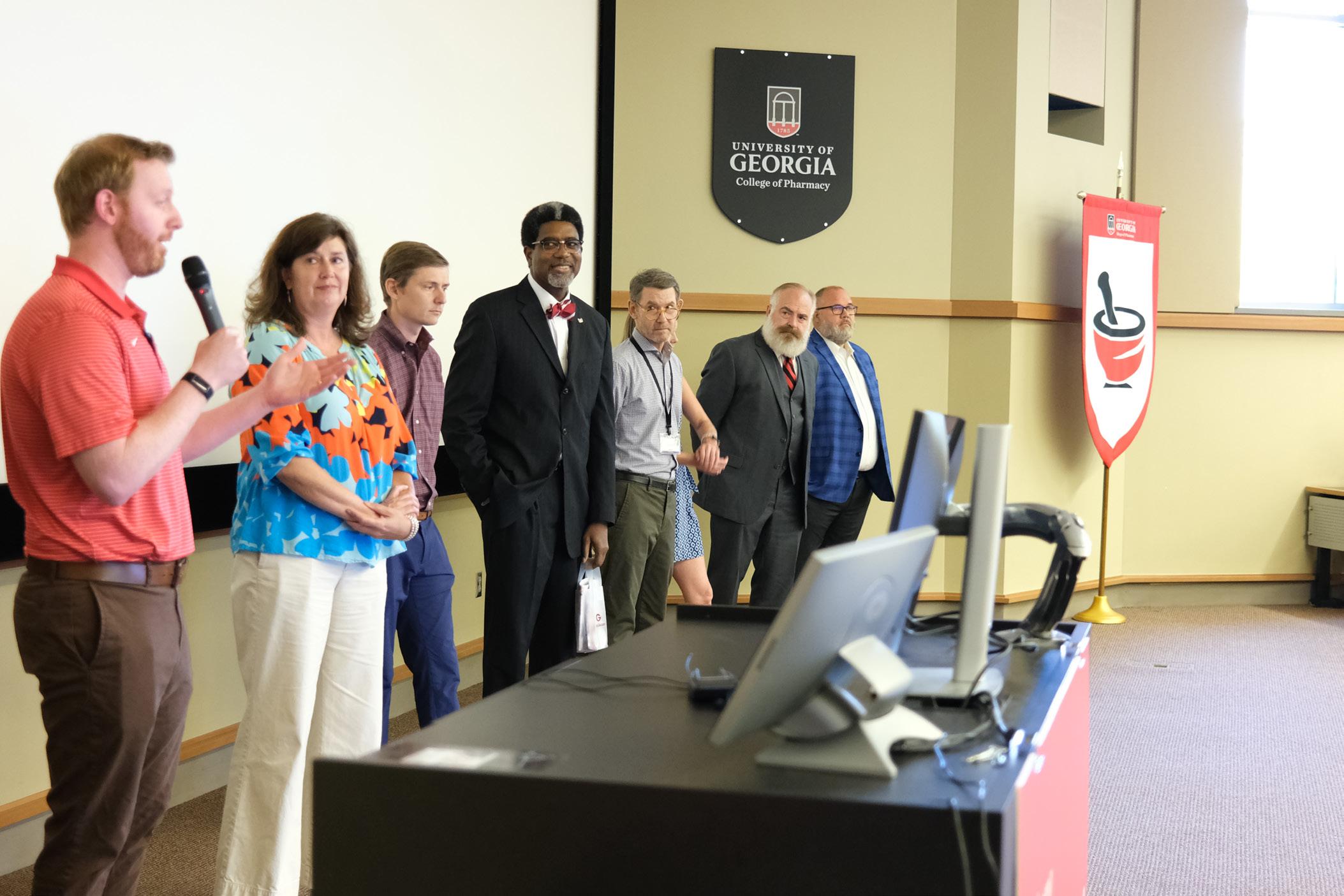
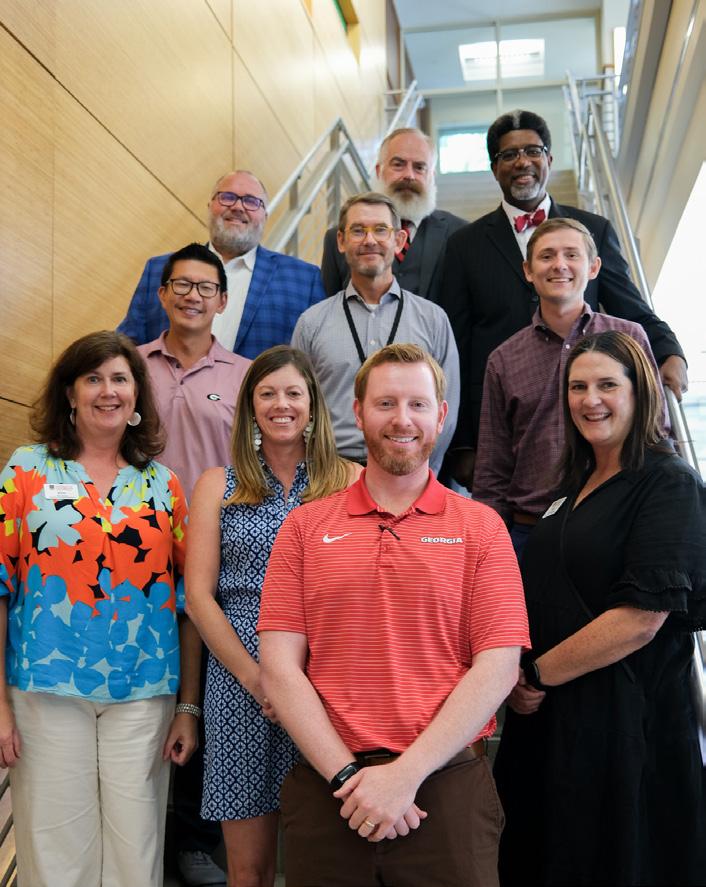
A special thanks to all for attending: Ansley Booker ’13, John Drew ’93, ’95, William Huang ’04, Harry Jozefczyk ’16, Andre Mackey ’88, Lindy McFarlin ’10, Judd Pierce ’03, and Brad Upchurch ’90.
UGA Pharmacy is proud of the more than 7,000 alumni who provide support, leadership, and mentorship to our students. Because of their generous gifts of time, talent, service, and funds, the College is able to prepare future pharmacists and pharmaceutical scientists for careers in caring for the health and wellbeing of others.

UGA SCRIPT | ANNUAL REPORT 42 ALUMNI ACCOLADES
For inclusion in future issues of UGA Script, please send a brief summary and photo(s) using this easy-to-complete form.
ALUMNI ACCOLADES
Mahlon Davidson, RPh ‘82 has been appointed Interim CEO of the Georgia Pharmacy Association. A native of Camilla, Ga., Davidson is a past president of GPhA, an organization for which he has been actively involved throughout his career. In the words of Joe Ed Holt, a 1992 alumnus of the College and the current president of this professional organization,
“Mahlon has an extensive history with GPhA, serving with class and style on just about every committee and as association president from 2021-2022. There are not many people out there who love GPhA as much as Mahlon. He will do a great job!”
A community pharmacist for 41 years and counting, Davidson is affiliated with Kroger Pharmacy, serving the company in the Conyers/ Covington area for more than 24 years.
Dr. Kayleigh Marx ‘12 recently was recognized as a 40 Under 40 in Cancer awardee for her outstanding work as a Clinical Pharmacy Specialist for Leukemia at the University of Texas MD Anderson Cancer Center.
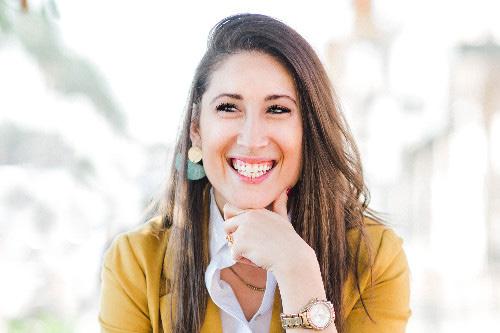
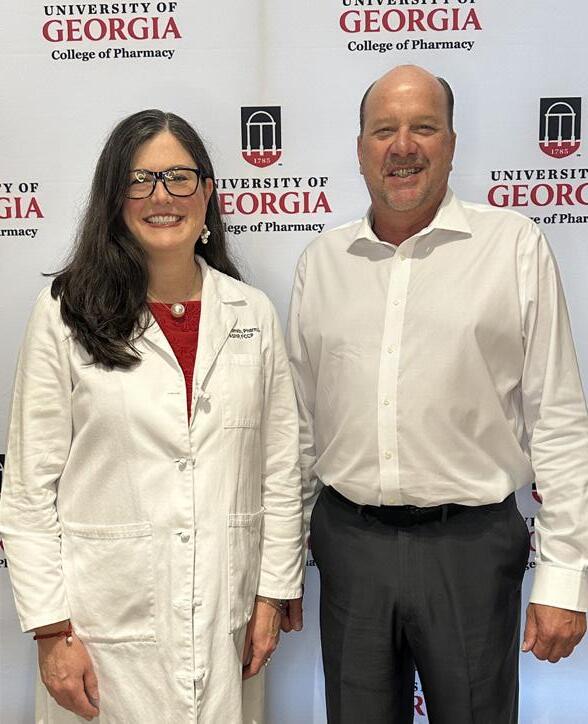
40 Under 40 in Cancer is an initiative that identifies and recognizes the contributions being made in the field of cancer by rising stars and emerging leaders under the age of 40. Finalists and awardees are selected by a panel of reviewers from diverse roles in oncology.

As an award-winning teacher, a talented clinician, and an accomplished scholar in applied and practice-based research,
Dr. Pamela Moye ’05 recently was named Chair of the Department of Pharmacy Practice at Mercer University College of Pharmacy. She remarked,

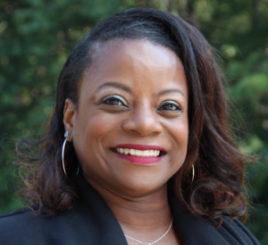
“My passion for teaching is deeply rooted in my love for empowering others with knowledge. As a teacher, I have the responsibility to serve my students, the university, and the field of pharmacy. I believe the most effective teachers have an extraordinary ability to combine an active learning approach with a stimulating learning environment.”
Though she graduated, Dr. Tierra Jackson ‘23 is still receiving awards for her success as a student. She was the recipient of the American Society of Health-System Pharmacists Student Leadership Award as well as the Student National Pharmaceutical Association Ramona McCarthy Hawkins Leadership Award at both organizations’ conferences this summer. The ASHP award recognizes up to 12 students each year who have an interest in health-system pharmacy practice and demonstrated leadership abilities. SNPhA’s Hawkins Award is named for Ramona McCarthy Hawkins, RPh, whose achievements in the pharmacy profession helped pave the way for minority professionals, particularly women. Dr. Jackson is continuing her professional journey with The Ohio State University Wexner Medical Center as a PGY1/PGY2 in Health Administration and Leadership.
UGA SCRIPT | ANNUAL REPORT 43
ALUMNI ACCOLADES
Alumni and faculty were recognized on the state level at professional conferences this summer, including the Georgia Pharmacy Association (GPhA), pictured right, and the Georgia Society of Health-System Pharmacists (GSHP), pictured below.
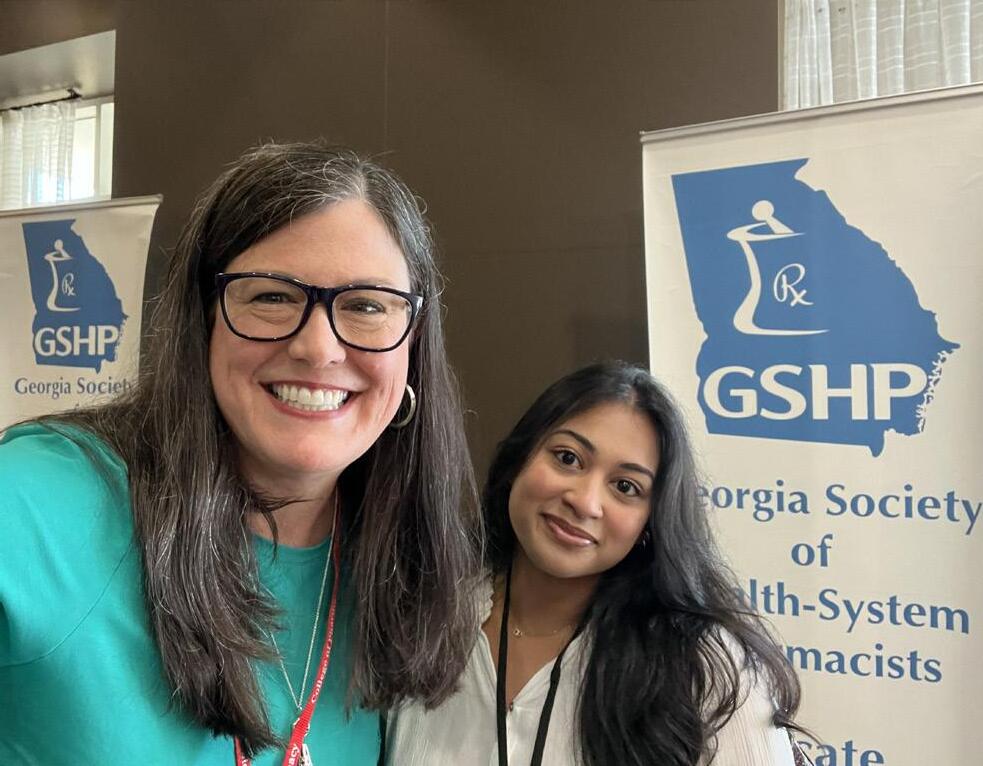
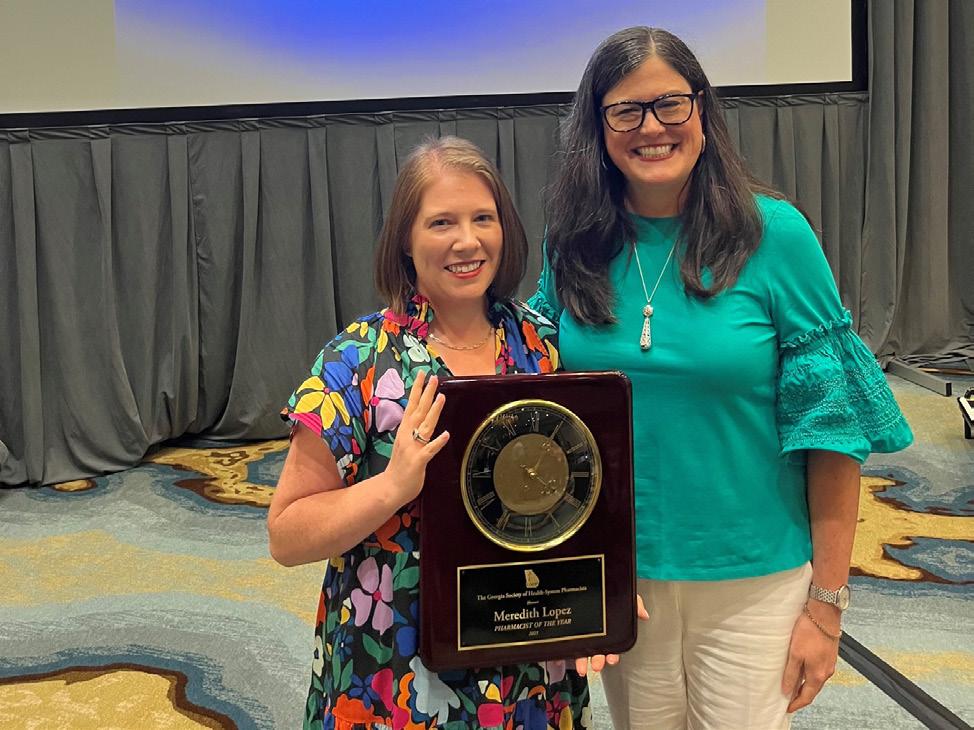
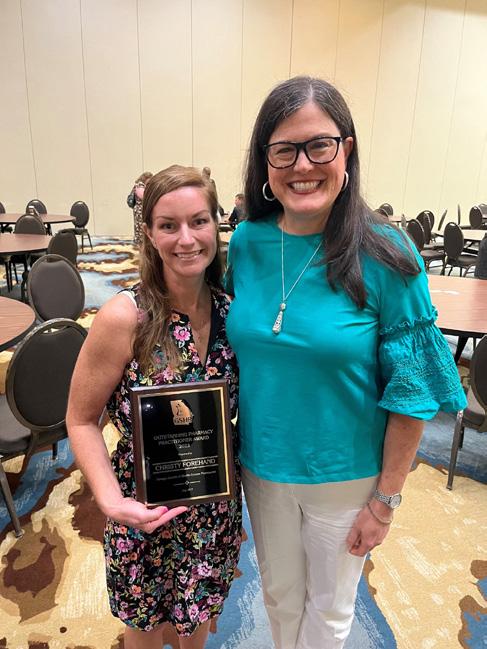

UGA Pharmacy Alumni Have a Presence at the American Society of Health-System Pharmacists Leadership Table.

Dr. Anthony Scott ’10, Director of Pharmacy Services at Emory University Hospital in Atlanta, serves as Director-at-Large of the ASHP Section of Pharmacy Practice Leaders.
Dr. Justin Moore ‘18, Clinical Pharmacist at Northwestern Medicine in Chicago, Ill., is the new chair of the ASHP New Practitioners Forum Executive Committee, and just penned a welcome message to the new practitioners Newslink.
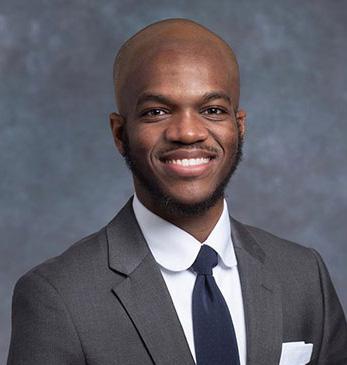
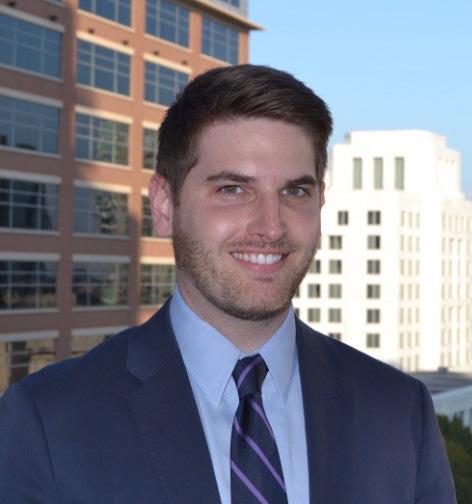
Dr. Alfred Awuah ‘21, Medication Safety Officer at UC Davis Health in Sacramento, Cali., is the co-chair of Moore’s committee. Speaking of Dr. Awuah, he recently was featured in an ASHP spotlight and spoke on an ASHP podcast, “Little L’s, Big impact: The Importance of Leading from Behind.”
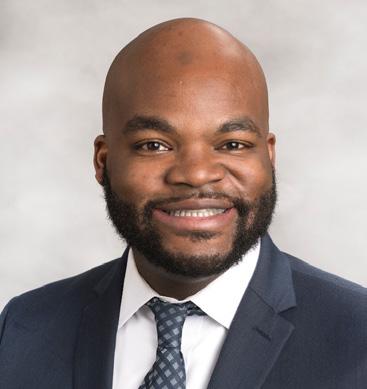
UGA SCRIPT | ANNUAL REPORT 44
Clockwise: Meredith Lopez ‘14 and Dean Smith, Anthony Hawkins ‘12, Saira Mirza ‘23, Christy Forehand ‘10
GPhA Awards and RecognitionsJune 14-18, 2023
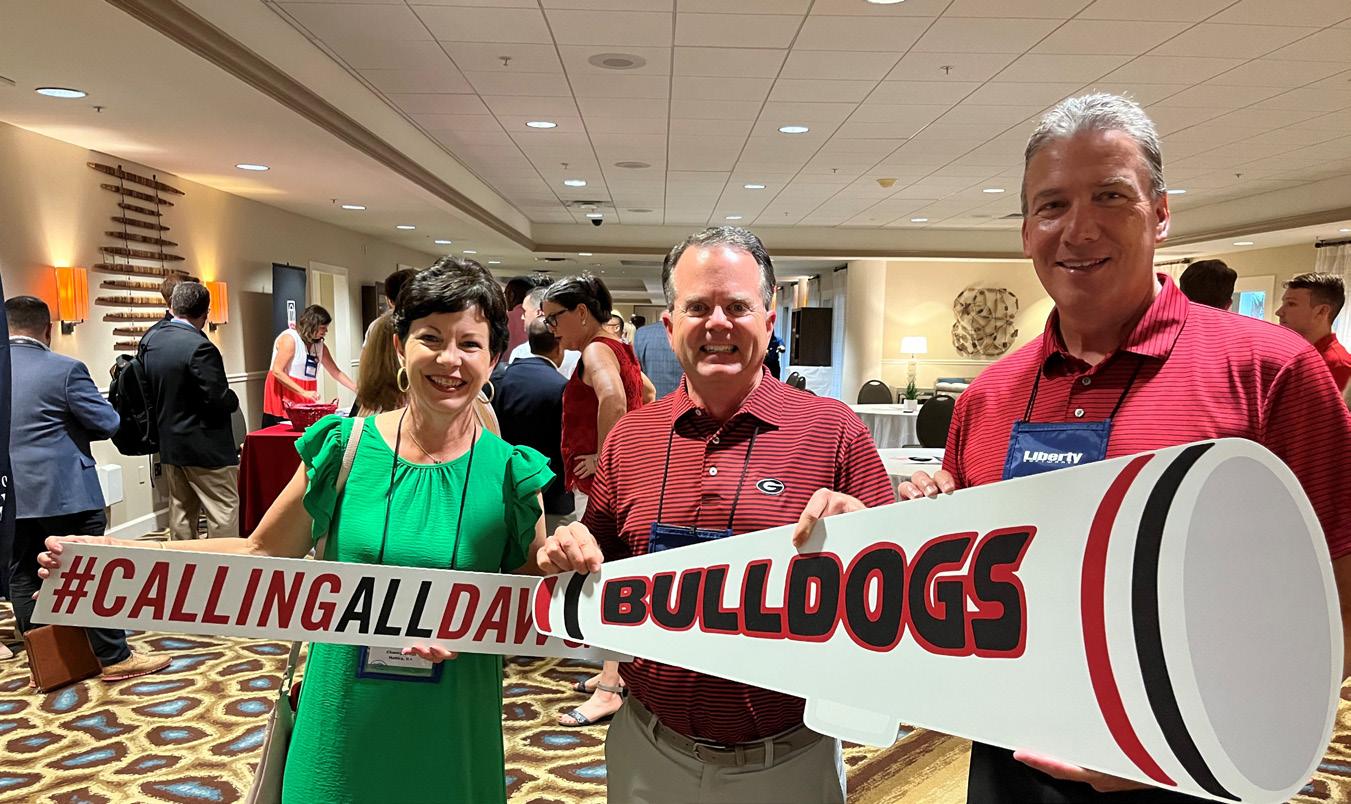
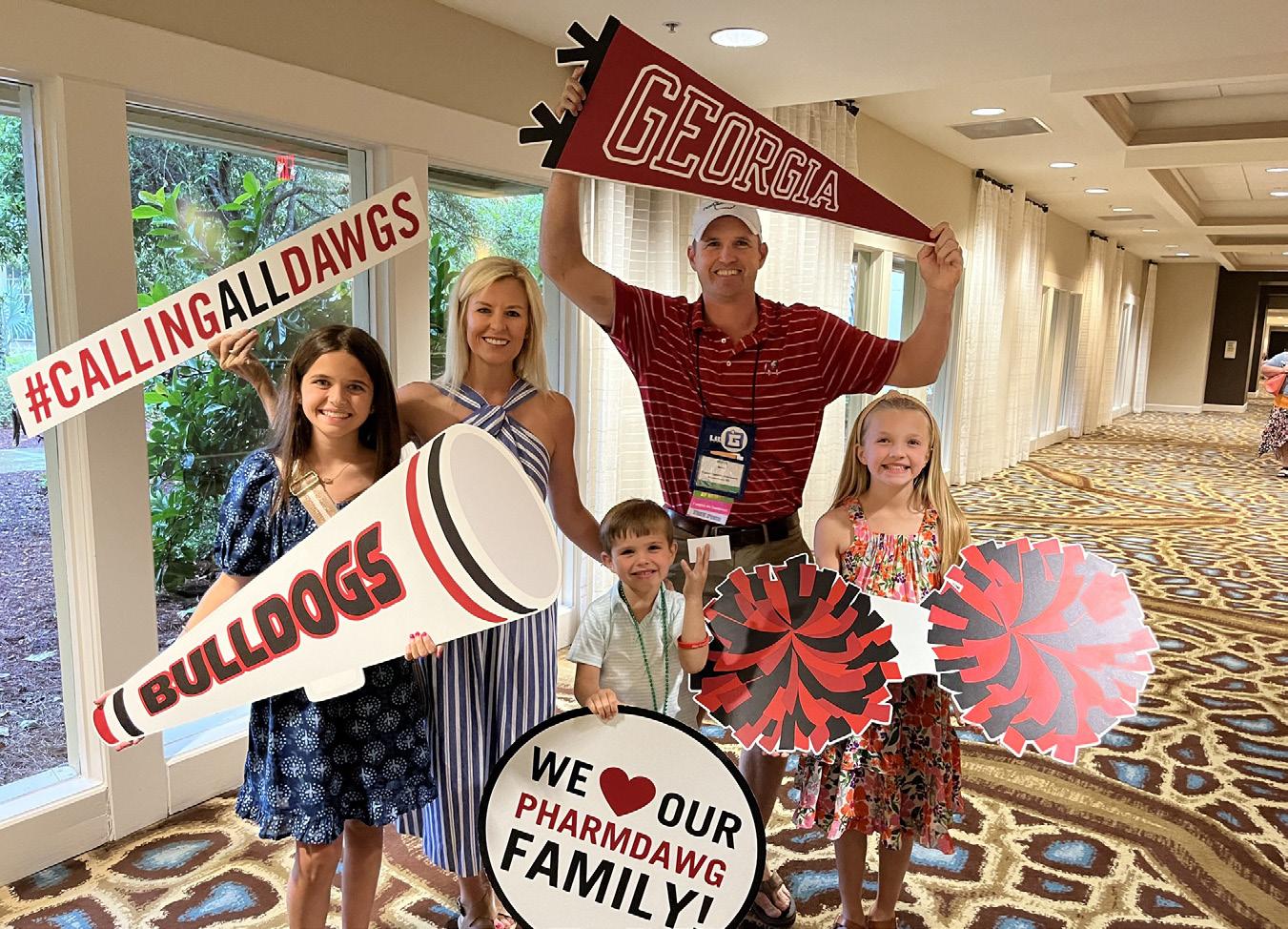
Joe Ed Holt ‘92
Inducted GPhA President, McKesson Leadership Award
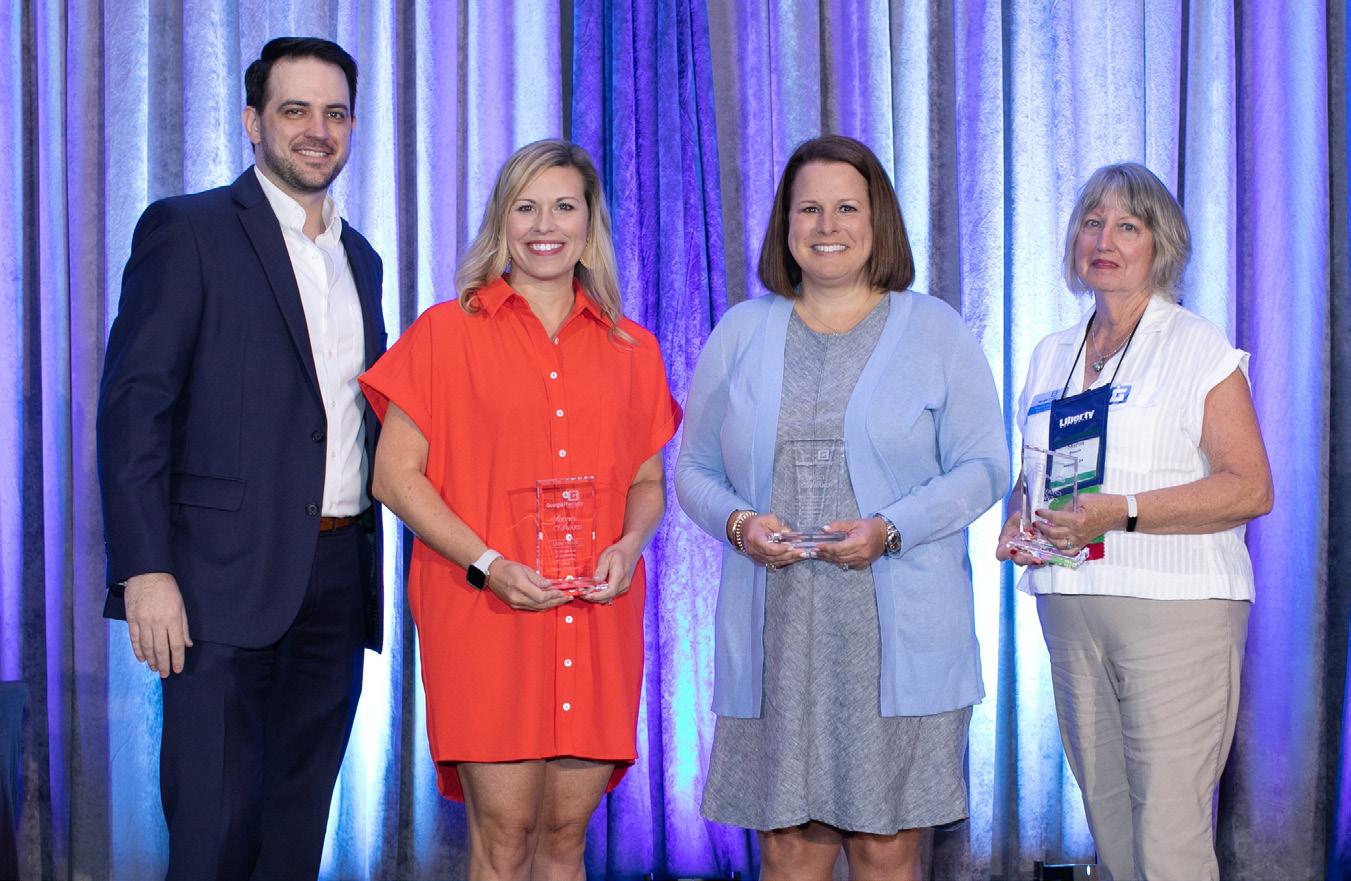
Ben Ross ‘08 Inducted GPhA President-Elect
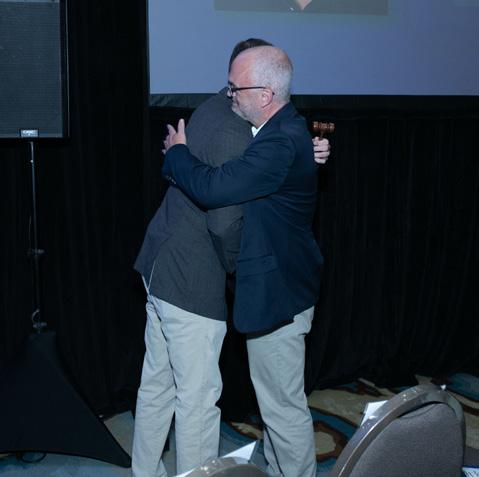
Hugh Chancy ‘88 President’s Award
Ashley Hannings Chinchilla ‘11 Faculty Member of the Year
Sharon Deason ‘75
Lindsey Welch ’08
Georgia Pharmacy Foundation Service
John Anderson, Sr. ‘67
Larry L. Braden Meritorious Service
GSHP Awards and RecognitionsJuly 7-9, 2023
Meredith Lopez ‘14 Pharmacist of the Year
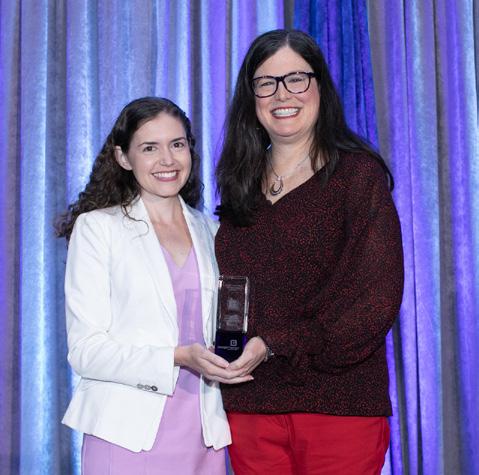
Kate Jerguson ‘95 25 Year Practitioner Recognition
Christy Forehand ‘10
Outstanding Practitioner
Anthony Hawkins, ‘12 Outstanding Pharmacy Mentor
Saira Mirza ‘23
Outstanding Pharmacy Student
Elected to Board of Directors: Maria Thurston ‘10
Academy of Clinical and Health-System Pharmacists Representative
Izabela Welch ‘00 At-Large Seat
Warren Koehler ‘99 Region 11 President
UGA SCRIPT | ANNUAL REPORT 45
From top: Thomas Sherrer, BBA ’10, Lindsey Welch ’08, Liza Chapman, and Sharon Deason ’75; Ashley Hannings Chinchilla ‘11 and Dean Smith; Ben Ross ’08 and family; Jonathan Sinyard ‘09 and Joe Ed Holt ‘92; Tina Chancy ‘88, Hugh Chancy ‘88, and Chuck Page ‘86
Scholarships Provide ‘Reassurance’ for Student Recipients
For P2 Jill Foster and P3 Megan Hooper, their scholarships from the Doris Pease Endowment Fund at the College of Pharmacy have defined not only their academic success but their future endeavors as well.
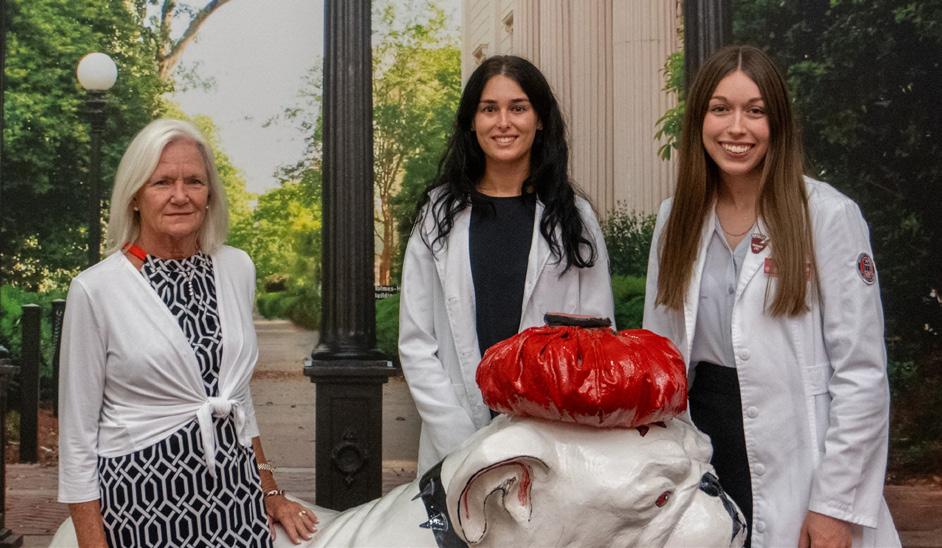
“The support of the Doris C. Pease Endowment Fund provides my family and me with peace of mind when it comes to paying for pharmacy school,” said Foster, who is from Tarpon Springs, Fla. and is president-elect of the UGA student chapter of the Georgia Society of Health System-Pharmacists and a member of the student chapter of the American Society of Health System-Pharmacists. “This generosity allows me to focus on the education I am receiving, the classes I am taking, and becoming a great pharmacist.”
Echoed Hooper, who is from Harrison, Ak. and is the vice president of the student chapter of the American Association of Psychiatric Pharmacists, the vice president of finance for the student chapter of the American Pharmacy Association, philanthropy chair of the student chapter of Lambda Kappa Sigma, and a member of the student chapter of the Georgia Society of Health System-Pharmacists, “I have been lucky to be a recipient of this scholarship, not only for this year, but for last year as well. The extra financial support has been a blessing, as I am solely responsible for all costs associated with pharmacy school.”
vehemently to further their education. “It was extremely important to Bob that financial constraints never be the reason why a young person couldn’t pursue a college degree,” she said. In 2017, Bob and Lynn worked with the College of Pharmacy Development and Alumni Relations Office to establish the Doris Pease Endowment Fund for students in need to support tuition costs, travel to professional meetings, and any other expenses incurred during their studies.
The first female graduate of the School of Pharmacy at the University of Virginia (now a part of Virginia Commonwealth University), Doris C. Pease was a long-time community pharmacist in Hartwell, Ga. Despite her Virginia roots and education, she had a passion for the Bulldog Nation. She passed away in 2015. Her son, Bob Pease and his wife, Lynn, shared Doris’s affinity for UGA. When it came time to honor her legacy, the couple opted for students at the College of Pharmacy to be the beneficiaries of their generosity.
According to Lynn, Bob was as passionate about education as he was the Bulldogs. It will forever be a mystery as to how many individuals he supported financially and encouraged
Sadly, and unexpectantly, Bob passed away May 30, 2021. Lynn, who is committed to perpetuating Doris’s and now Bob’s legacy, added, “Bob’s charitable acts were boundless, and I am honored that I can continue to support future pharmacists through this endowment.”
Hooper, who plans to complete a PGY1 and PGY2 residency in psychiatric or geriatric pharmacy when she graduates, commented, “I was so touched to read the story about how this scholarship came to fruition. The generosity from everyone involved is appreciated more than I can say. I only hope that one day I can pay this gift forward.”

Added fellow student Foster, who plans to specialize in pharmacy emergency medicine, “I am thankful for this gift, which will assure my future endeavors.”
UGA’s College of Pharmacy offers diverse scholarships to students (including merit-based, need-based, and careerfocused) annually to enrolled students who meet or exceed eligibility criteria.

To learn how to invest in the future of pharmacy and pharmaceutical sciences by creating an endowed scholarship, contact Kate O’Reilly, Senior Director of Development, at 706380-8930 or krl@uga.edu.
A more detailed story about the Pease family gift was published in the fall 2022 issue of UGA Script. Read the story here: https://script.rx.uga.edu/article/bob-pease/.
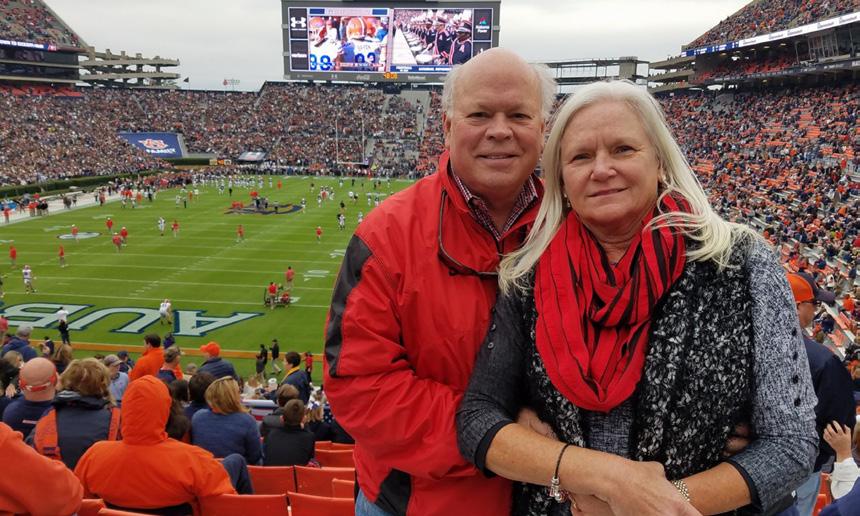
For more information about scholarships
Contact: Gloria Strait, gstrait@uga.edu
36% increase from 2022-2023 20% increase from 2022-2023
72 Recipients of graduating class
Average: $1,500 Amounts ranging from $1,000-$5,000
Average: $1,833 Amounts ranging from $1,000-$5,000 INCOMING STUDENTS CURRENT STUDENTS Total Scholarships Awarded: $328,000
UGA SCRIPT | ANNUAL REPORT
49% 70% PharmD Scholarships 2023-2024 Total Scholarship Dollars Awarded: $456,500 245 TOTAL SCHOLARSHIP RECIPIENTS
173 Recipients out of 249 applicants received funds Presented by the Office of Student Affairs: Total Scholarships Awarded: $128,500
Left to right: Lynn Pease, Jill Foster, and Megan Hooper
DEVELOPMENT AND ALUMNI RELATIONS
Bob and Lynn Pease
SAVE THE DATE: NOVEMBER 4, 2023
JOIN US FOR FUN, FOOD, & FAMILY-FRIENDLY GAMES AS WE CELEBRATE THE 2023 HOMECOMING TAILGATE & CLASS REUNIONS FOR GRADUATION YEARS ENDING IN 3 & 8!
The game day celebration begins three hours prior to kickoff in the College of Pharmacy Rite Aid Courtyard.
Register today at https://gail.uga. edu/events/phar/2023-homecomingtailgate-class-reunions or the QR code here.


UGA SCRIPT | ANNUAL REPORT 47
UGA College of Pharmacy

250 W. Green Street
Athens, Georgia 30602
A Culture of Connection
For Kirby Smart, Coach of UGA’s Football Team, Bulldog victory lies within “connections.” As proven by the two-time National Champions, connection creates a foundation for success and a culture of teamwork. At the College of Pharmacy, our students, faculty, staff, alumni, preceptors, donors, and supporters echo this sentiment and work diligently to create and maintain a connection culture.
Pictured is Dean Kelly Smith, with the back-to-back trophies.
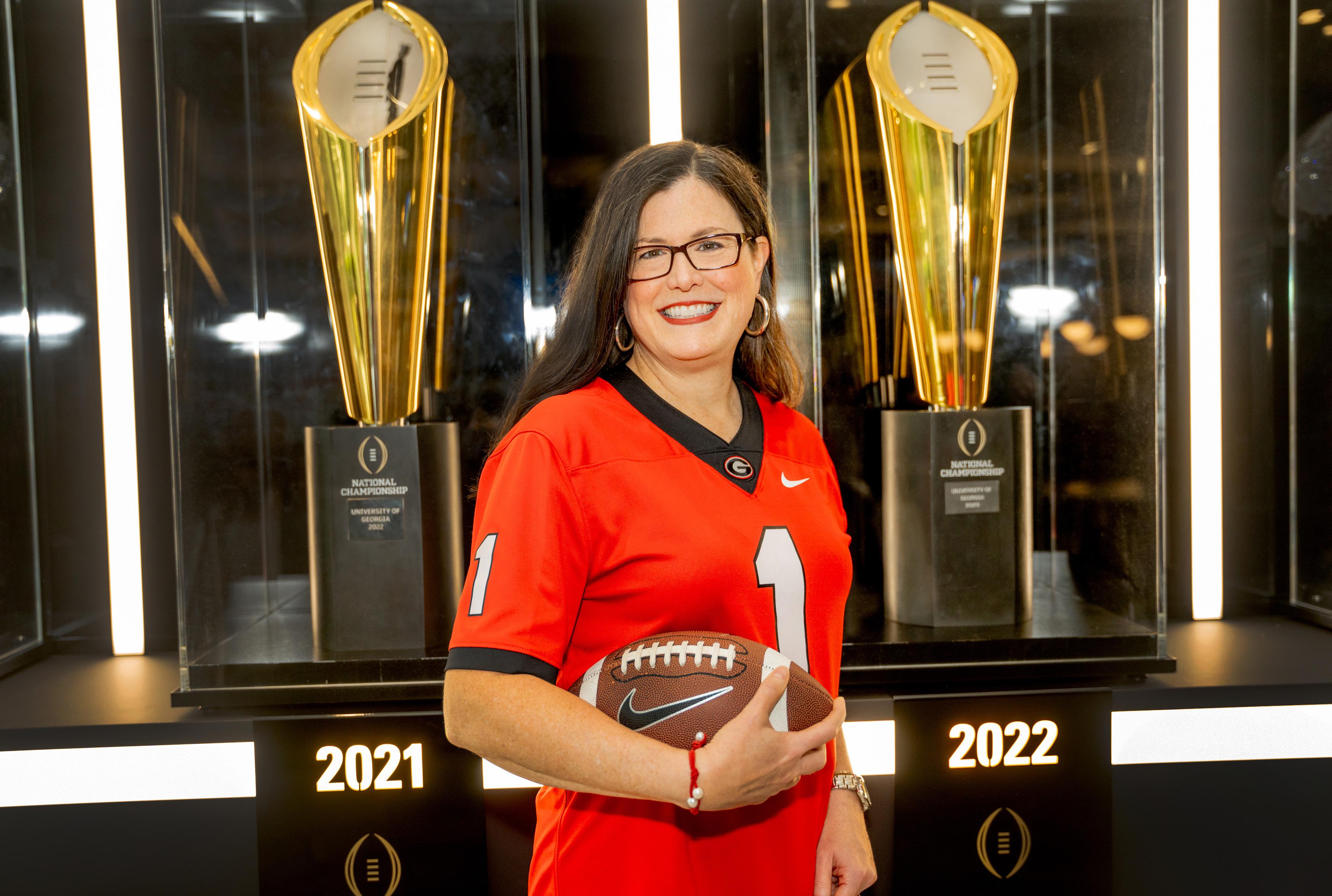








 Kelly M. Smith, PharmD, FASHP, FCCP, ‘92, ‘93 Dean UGA College of Pharmacy
Kelly M. Smith, PharmD, FASHP, FCCP, ‘92, ‘93 Dean UGA College of Pharmacy








 Left to right: Wei-Chih Lo, Michael Spieker, Dr. David Crich, Dr. Santanu Jana, Dr. Niteshlal Kasdekar, and Dr. Shuay Abdullayev.
Left to right: Wei-Chih Lo, Michael Spieker, Dr. David Crich, Dr. Santanu Jana, Dr. Niteshlal Kasdekar, and Dr. Shuay Abdullayev.





























































































